Welcome to the jungle of sound, where fun and games are set to a beat only the Eighties could conjure. This decade stands as one of the most wonderfully bizarre periods in music history. It was an era of unapologetic excess, and the rise of iconic bands like INXS. Think big – big hair, big drums, and shoulder pads that could rival skyscrapers. And the stars? Massive doesn’t even begin to cover it: Prince, Madonna, Michael Jackson, Bruce Springsteen, Janet Jackson, Sade, Cher – names that still resonate today.
New sounds and rhythms exploded from every corner. Hip-hop seized its place as the voice of young America, glam metal vibrated the Sunset Strip, and New Romantic synth-pop took over MTV. Thriller became more than an album; it became a cultural phenomenon. Music got louder, bolder, and gloriously messier. You want to know where you are? You’re smack-dab in the middle of the Eighties, baby.
Let’s dive deep into the sonic landscape of this insane decade with a countdown of the 200 Great 80s Songs. This isn’t just a list of chart-toppers; it’s a mixtape of deep cuts, fan favorites, and everything in between. Prepare for a genre-bending journey through pop classics, rock anthems, rap pioneers, soul divas, New Wave gems, disco throwbacks, country ballads, punk explosions, dance-floor fillers, smooth ballads, and even a few karaoke tracks best left unsung (unless you’re aiming to clear the room). We’re talking about all-time legends mingling with one-hit wonders, and raw, rebellious voices that burst onto the scene from nowhere. Yes, there’s cheese, and yes, there’s sleaze. It’s Axl meeting Slash, Salt meeting Pepa, Echo meeting the Bunnymen. It’s Frankie going to Hollywood, Public Enemy bringing the noise, and Madonna bringing the… well, you know. Discover Chicago house, Detroit techno, Miami freestyle, D.C. go-go. Explore ska, goth, reggae, acid house. Just remember, only one song per artist, or Prince would dominate this entire list.
Some of these great 80s songs have become timeless, echoing at weddings, parties, clubs, and karaoke nights worldwide. Others might send shivers down your spine for different reasons. Many are songs you remember vividly; some you’ve tried hard to erase from your memory. But each one is undeniably brilliant, a piece of the vibrant, perplexing Rubik’s Cube that is Eighties pop.
So, welcome to the Eighties. Insert this mixtape into your boombox, crank up the volume, and press play. Push it. Push it real good.
Biz Markie, ‘Just a Friend’
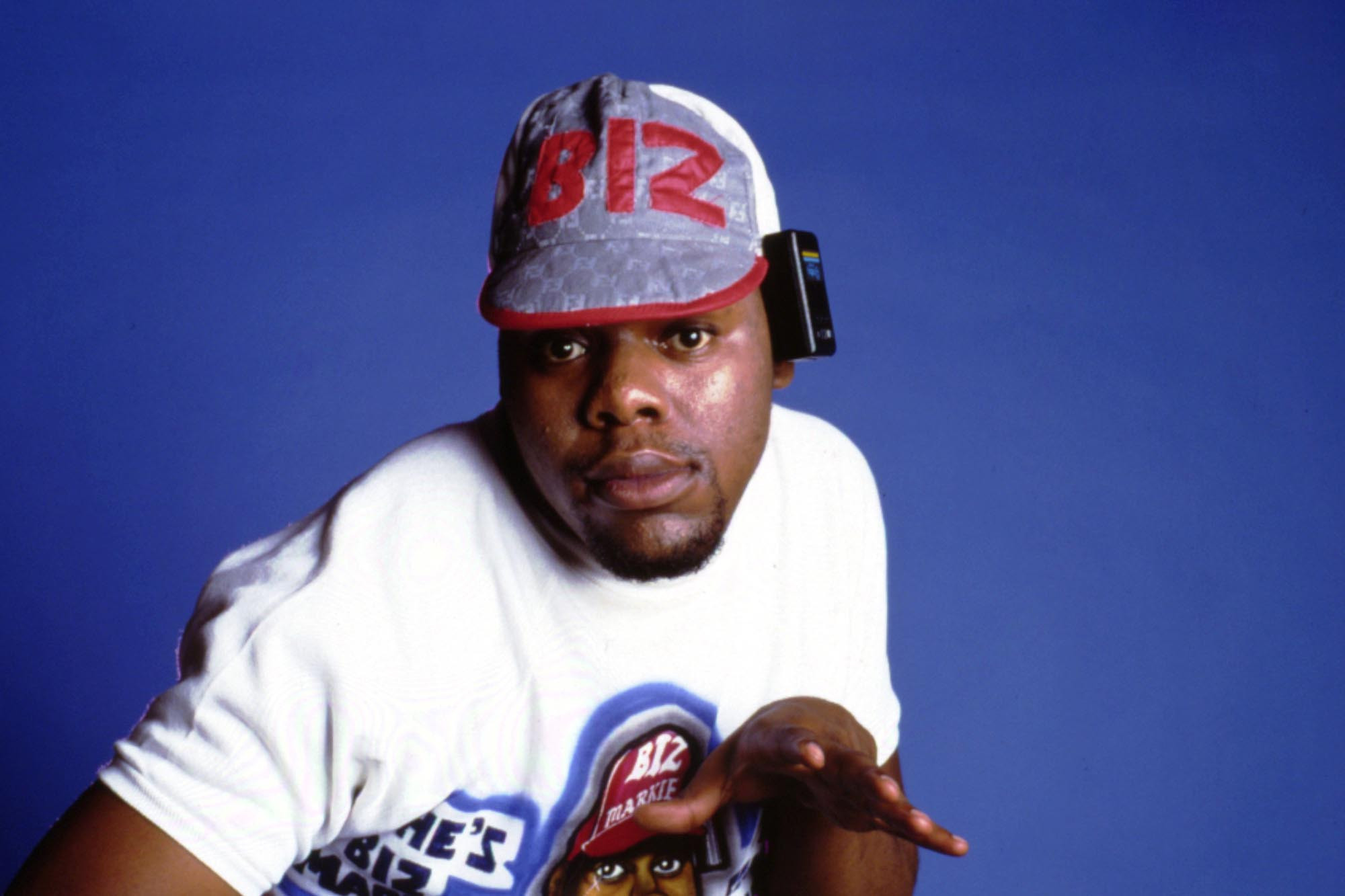 Rapper Biz Markie in New York City, 1988
Rapper Biz Markie in New York City, 1988
Image Credit: Michael Ochs Archives/Getty Images
Raise your lighters for the unforgettable Biz Markie, a true music icon of the Eighties and beyond. The Diabolical One. The Human Beatbox. The ultimate class clown of old-school hip-hop. “Just a Friend” is an enduring classic, guaranteed to ignite any party, especially when it’s time for the chorus: “Oh, baby yooou! You got what I neeeed!” Biz initially conceived it as a serious heartbreak anthem. “But it turned out funny,” he admitted. He tested it on friends Q-Tip and De La Soul, and “when I sang the hook, they couldn’t stop laughing — they bugged out. Then I knew it was gonna be a good record.” A perfect track, and the perfect way to kick off this celebration of great 80s songs.
Nena, ’99 Luftballons’
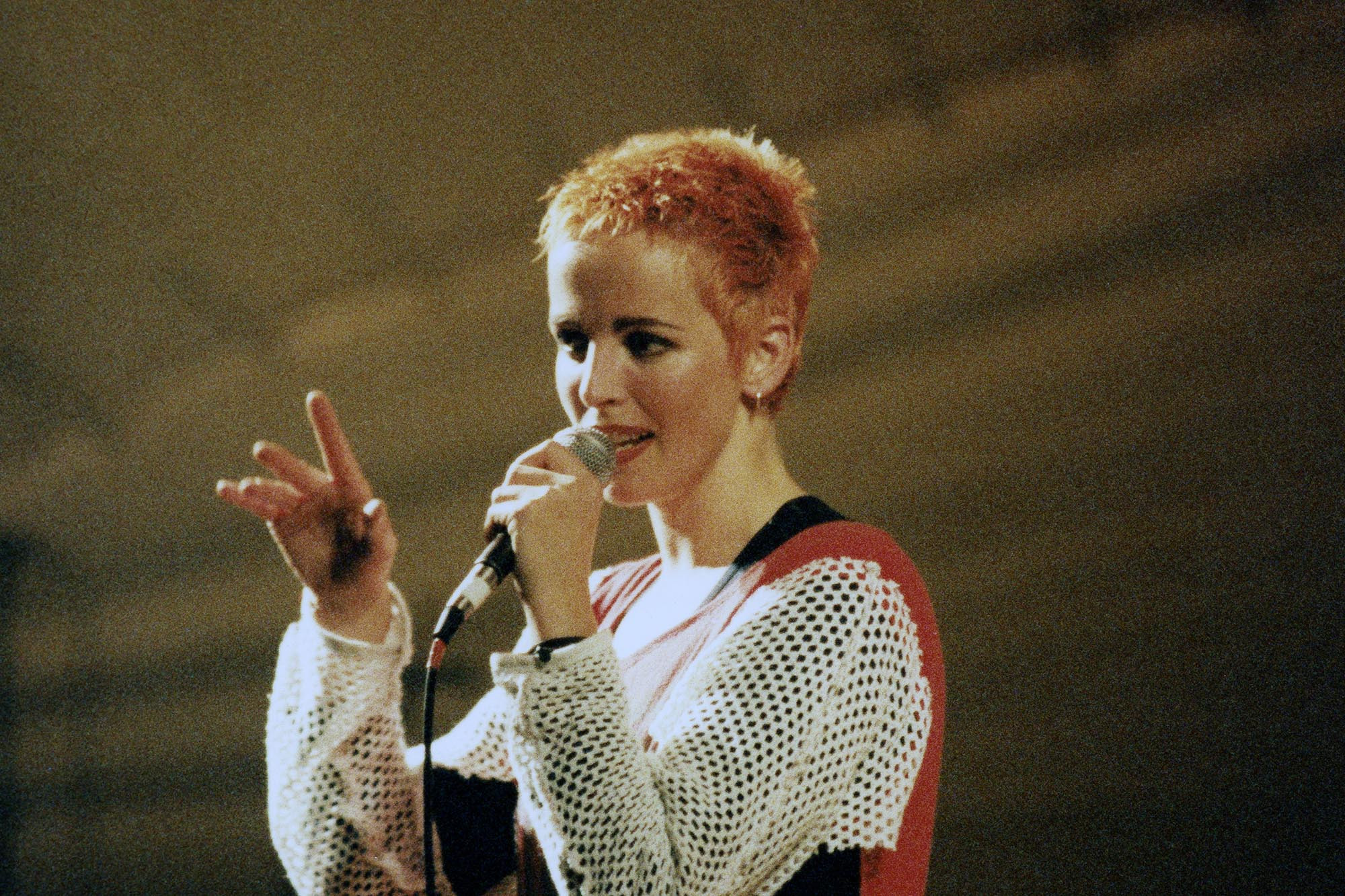 German singer Nena performing on stage
German singer Nena performing on stage
Image Credit: XAMAX/ullstein bild/Getty Images
A German vocalist sings about nuclear annihilation in an upbeat New Wave tune about the world’s end. Yet, beneath the surface, it’s a poignant teen romance, emerging during a time when apocalyptic themes dominated radio hits. The English rendition, “99 Red Balloons,” remains a karaoke staple. However, Nena’s German version carries an even sharper, cooler edge – especially her snarled delivery of “Kriegminister.” This song is a quintessential example of the great 80s songs that blended pop sensibilities with deeper, often darker, lyrical content.
My Bloody Valentine, ‘Feed Me With Your Kiss’
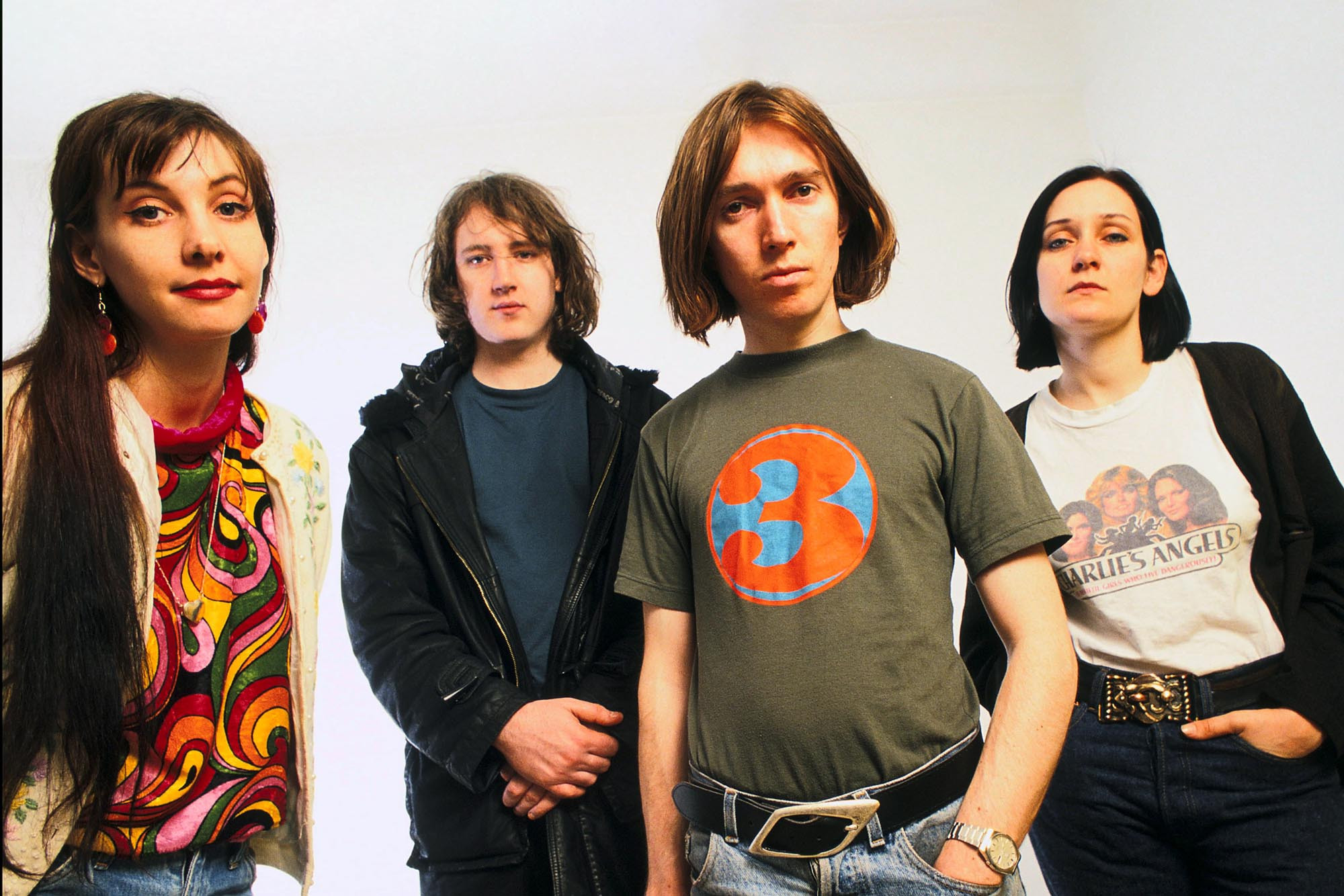 My Bloody Valentine band photo, 1992
My Bloody Valentine band photo, 1992
Image Credit: Eric CATARINA/STILLS/Gamma-Rapho/Getty Images
The birth of the shoegaze movement. My Bloody Valentine offered an early glimpse of their sonic power on their debut album, Isn’t Anything. Irish guitar innovator Kevin Shields’ tremolo overdrive and feedback-loop noise, Belinda Butcher’s ethereal vocals, and powerfully clumsy drumming combine to create a mind-blowing sound that feels like pure ecstasy. “Feed Me With Your Kiss” is a crucial track in understanding the landscape of great 80s songs that pushed sonic boundaries and experimented with texture and noise.
Bobby Brown, ‘My Prerogative’
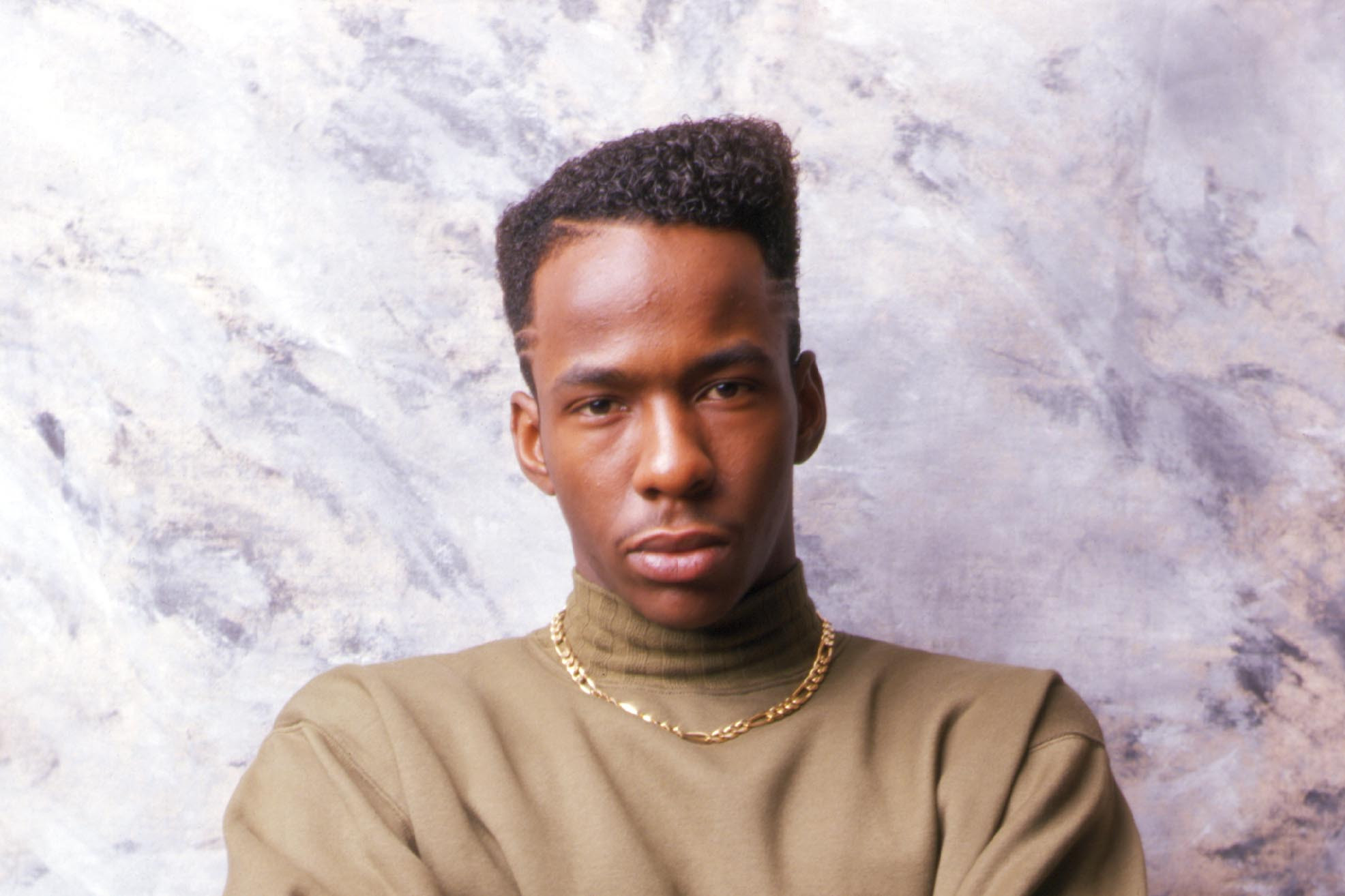 R&B singer Bobby Brown with Gumby haircut, 1988
R&B singer Bobby Brown with Gumby haircut, 1988
Image Credit: Michael Ochs Archives/Getty Images
The definitive sound of New Jack Swing. Bobby Brown airs out celebrity gossip with unapologetic attitude, as the young production genius Teddy Riley amps up a beat that would dominate radio for years. Brown’s gripes about fame were so relatable that Britney Spears adopted “My Prerogative” as the title for her 2004 greatest hits collection. This track showcases how great 80s songs could be both deeply personal and broadly influential, defining new subgenres and inspiring future artists.
The Fall, ‘New Big Prinz’
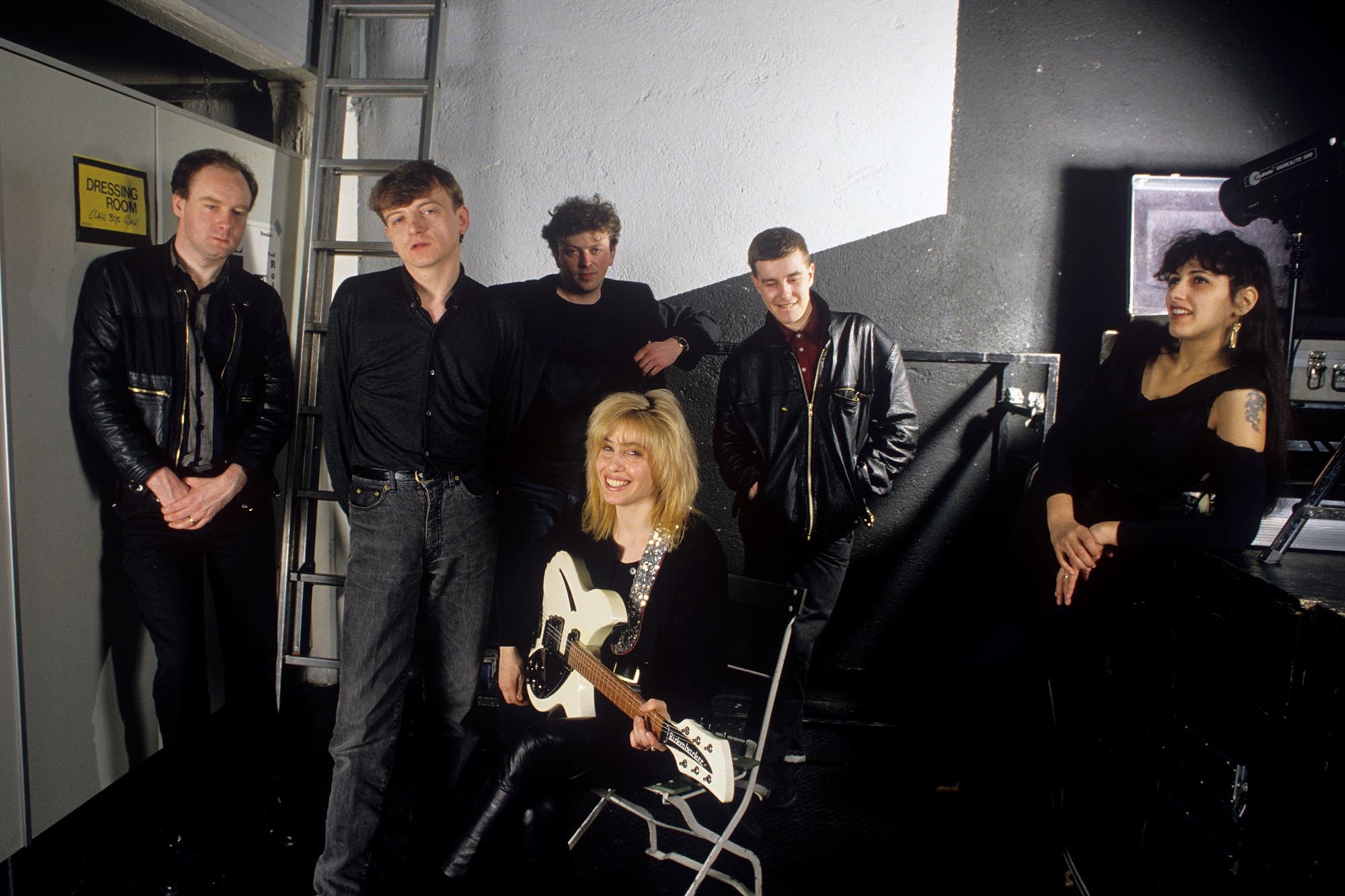 Mark E. Smith of The Fall performing in Munich, 1988
Mark E. Smith of The Fall performing in Munich, 1988
Image Credit: Fryderyk Gabowicz/picture alliance/Getty Images
The Fall churned out a remarkable stream of post-punk masterpieces throughout the 1980s, led by the enigmatic Mark E. Smith, the “Hip Priest,” a notoriously caustic Mancunian figure who relished in unsettling fans and bandmates alike. “People still cross the road from me; I’ve still got that,” he proudly declared near the end of his life. “I can clear a pub when I want to. It’s a talent.” “New Big Prinz” is a stomping track fueled by glam-rock guitars and hand claps, with Smith’s then-wife Brix Smith adding her pop sensibility. He snarls, “Check the record, check the record, check the guy’s track record! He is nuts!” This song exemplifies the raw, often abrasive energy found within many great 80s songs of the post-punk era.
The Bangles, ‘Hero Takes a Fall’
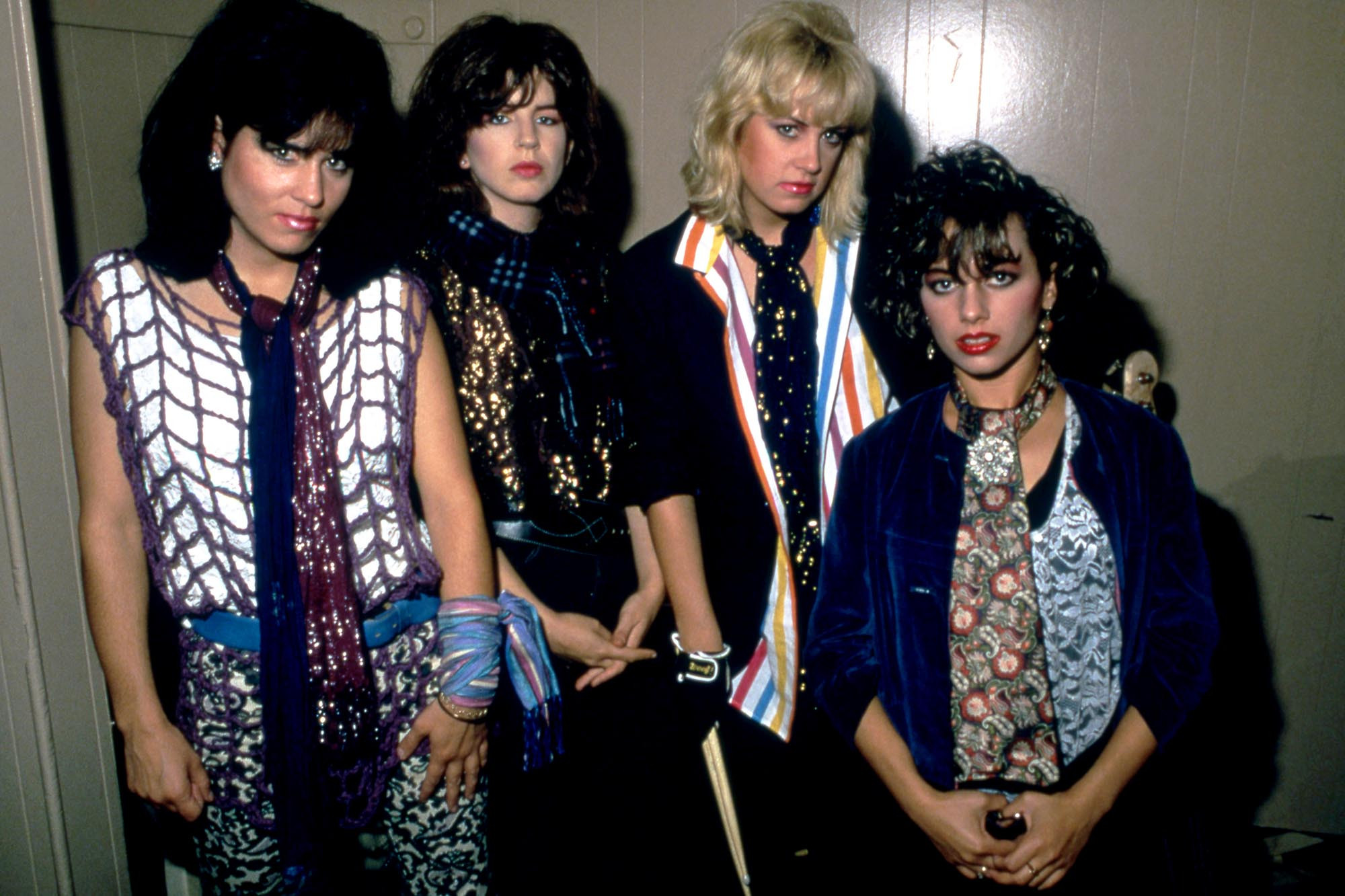 The Bangles group portrait, San Francisco, 1984
The Bangles group portrait, San Francisco, 1984
Image Credit: Randy Bachman/Getty Images
These Californian mod women brought a tough edge, blending sharp wit with Rubber Soul-esque harmonies and vintage Rickenbacker guitars. “Hero Takes a Fall” was the breakout hit from their 1984 debut, All Over the Place, during their L.A. rock & roll hipster phase, complete with a Sixties thrift-shop fashion aesthetic. This track caught Prince’s ear, leading him to pen “Manic Monday” for them. Susanna Hoffs and Vicki Peterson deliver scorching guitar work, laced with pointed critiques of male egos – hinting at Hoffs’ underlying fierceness. “Hero Takes a Fall” is a testament to the great 80s songs that empowered women in rock and pop, combining catchy melodies with insightful lyrics.
A-ha, ‘Take On Me’
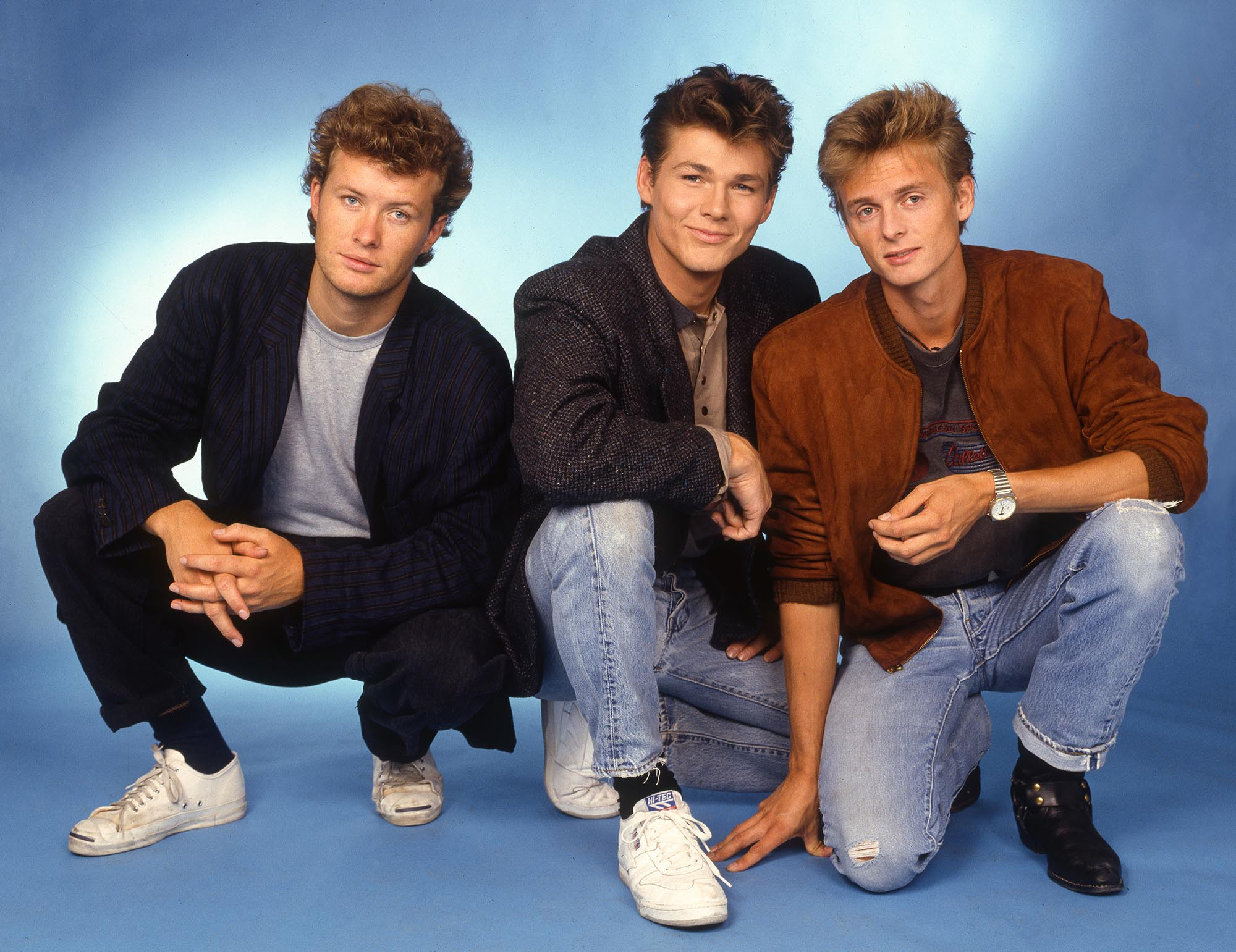 A-ha pop group portrait, 1985
A-ha pop group portrait, 1985
Image Credit: Tim Roney/Getty Images
This Norwegian pop trio captured America’s heart with their striking looks, innovative video, and above all, Morten Harket’s stratospheric falsetto. Harket can sustain that incredible high note for a staggering 18 seconds, a truly unreal feat. “Things you learn from the Norwegian tourist bureau” department: Harket holds the world record for the longest-held note in a pop song, clocking in at 20.2 seconds on his 2000 single “Summer Moved On,” surpassing Bill Withers’ “Lovely Day” record by two seconds. Bravo, Norway. “Take On Me” is undeniably one of the great 80s songs, not just for its musicality but also for its groundbreaking music video that defined the visual aesthetic of the era.
Debbie Deb, ‘Lookout Weekend’
Image Credit: Ron Galella Collection/Getty Images
A Miami party girl achieved a pioneering freestyle hit, thanks to producer Pretty Tony Butler’s powerful DMX beats and teenage Debbie Deb’s catchy chant, “Lookout weekend, ‘cause here I come/Because weekends were made for fun.” She transforms into a dance floor goddess (“Jumping music! Slick DJs! Fog machines and laser rays!”), entering a disco where every girl is ready to explode with energy. “Lookout Weekend” is a prime example of the great 80s songs that fueled the dance floors and club scenes, particularly within the emerging freestyle genre.
Leonard Cohen, ‘Tower of Song’
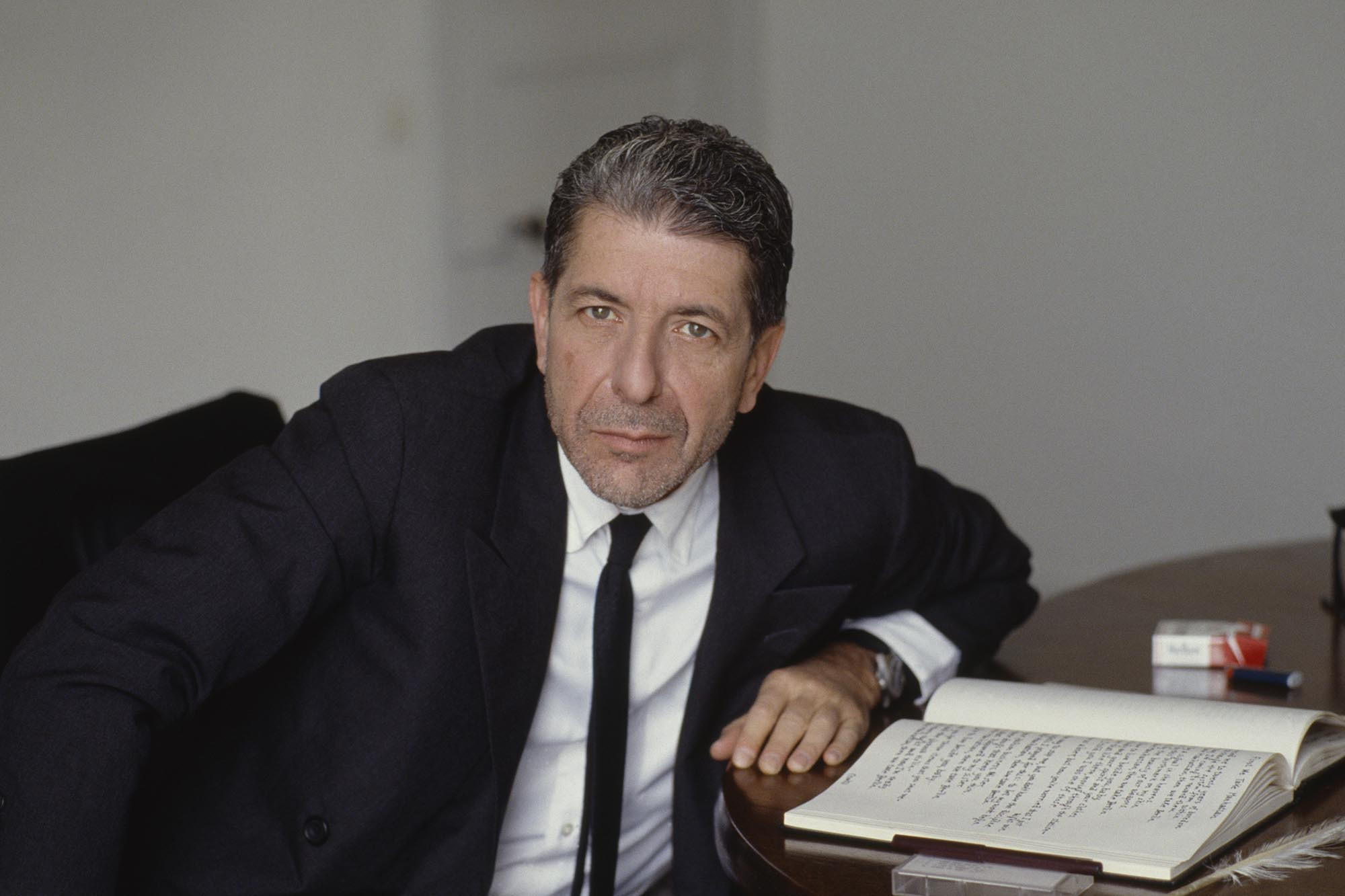 Leonard Cohen filming a music video
Leonard Cohen filming a music video
Image Credit: Eric Préau/Sygma/Getty Images
Leonard Cohen ascended to rock’s elder statesman, a 53-year-old Jewish-Canadian poet consumed by lust, murmuring about love, mortality, and the relentless torment of desire. Cohen’s 1988 album I’m Your Man propelled him to unprecedented fame after years of struggling to get his music released in the U.S. (Ironically, “Hallelujah” went largely unnoticed until years later.) “Tower of Song” is essentially his autobiography, especially in lines like, “I was born like this/I had no choice/I was born with the gift of a golden voice.” This song stands out amongst great 80s songs for its lyrical depth and Cohen’s distinctive, world-weary delivery, showcasing a different facet of the decade’s musical spectrum.
The Jungle Brothers, ‘Tribe Vibes’
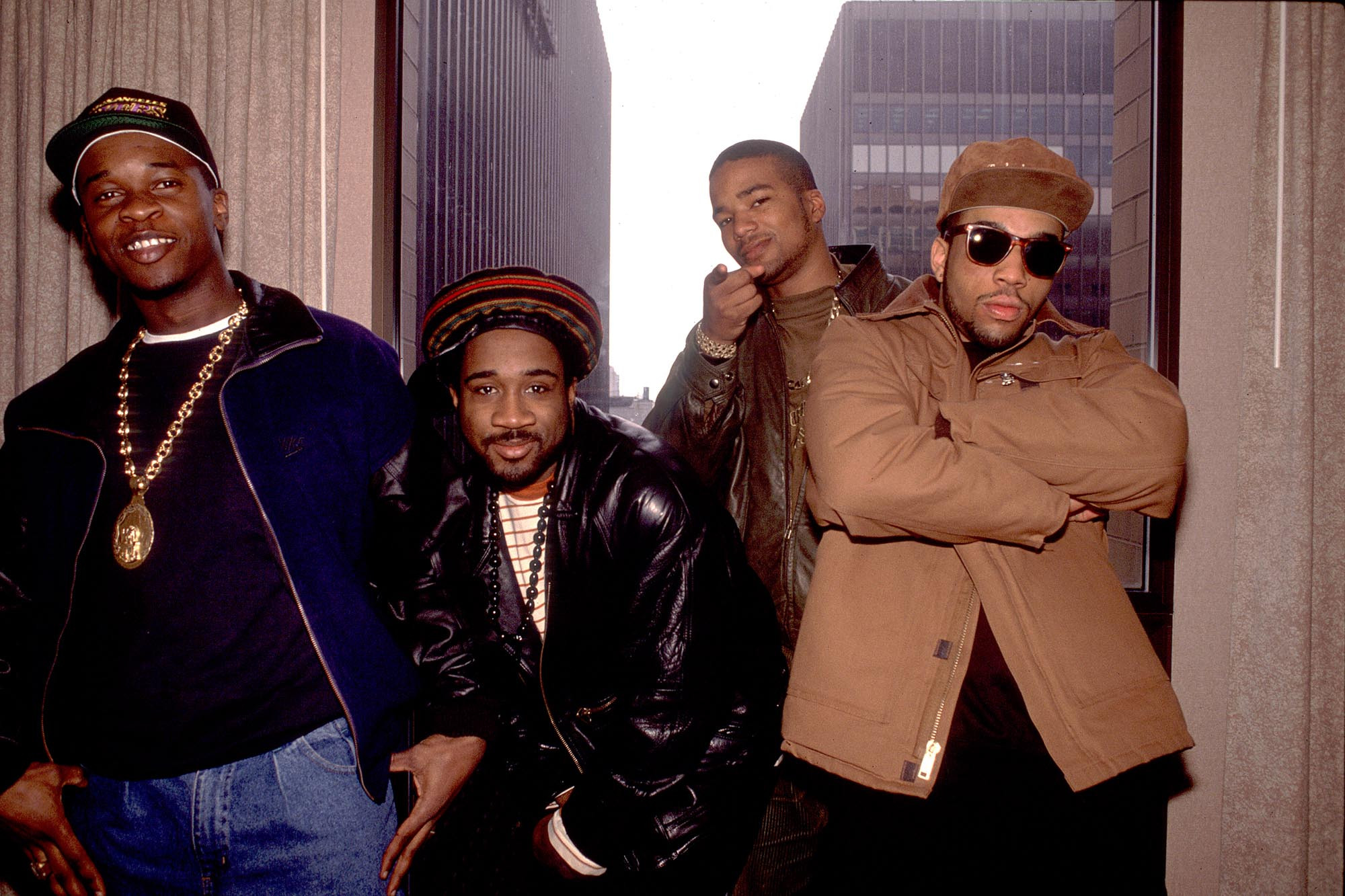 The Jungle Brothers portrait, Chicago, 1990
The Jungle Brothers portrait, Chicago, 1990
Image Credit: Paul Natkin/Getty Image
This Native Tongues anthem comes from the Jungle Brothers’ critically underrated second album, Done by the Forces of Nature. It’s a utopian call for unity within the fractured hip-hop community, filled with mystical visions of Afrocentric consciousness. As the JBs proclaim, “Work by day, ritual by night, the vibe holds the tribe, and it keeps it real tight.” But this tribe is inclusive, not exclusive, welcoming guitar solos sampled from the Bee Gees. The JBs shout out their Strong Island crew — “We all are thinking on the same plateau, A Tribe Called Quest and De La Soul” — over an incredibly hypnotic groove perfect for headphones. “Tribe Vibes” represents the great 80s songs that pushed hip-hop into new, more conscious and musically diverse territories.
Falco, ‘Rock Me Amadeus’
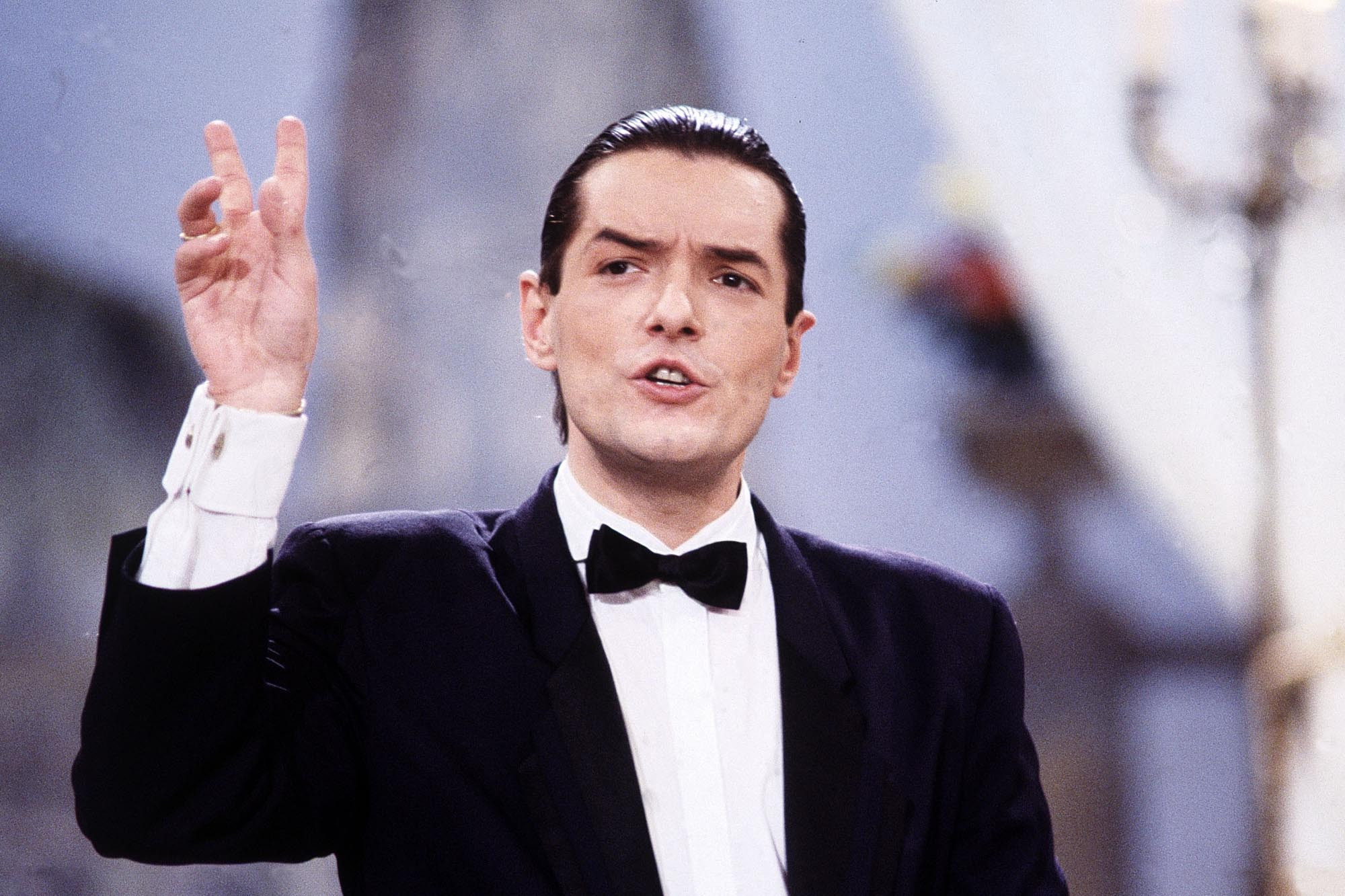 Falco performing live on television
Falco performing live on television
Image Credit: pa/United Archives/Getty Images
One of the most wonderfully absurd Number One hits, in an era where ridiculousness was a crucial pop virtue. Falco rapped in German about Mozart, in a valiant (if unsuccessful) attempt to bring powdered wigs back into fashion. (Their failure proves the Eighties had some standards.) He peppered in words like “superstar” and “punk” into the Teutonic lyrics, explaining, “If Mozart were alive today, he wouldn’t be making classical music; he’d be an international pop star. And I felt it was time to write a song about him.” (And if Mozart were alive, he definitely would have been writing songs about Falco.) American audiences favored the “Salieri Mix,” which included a handy Mozart timeline: “1784: Wolfgang Amadeus Mozart becomes a Freemason. 1791: Mozart composes The Magic Flute. On December 5th of that same year, Mozart dies. 1985: Austrian rock singer Falco records, ‘Rock Me Amadeus’!” “Rock Me Amadeus” is a quintessential example of great 80s songs that were both catchy and utterly unique, capturing the decade’s penchant for novelty and experimentation.
Mecca Normal, ‘I Walk Alone’
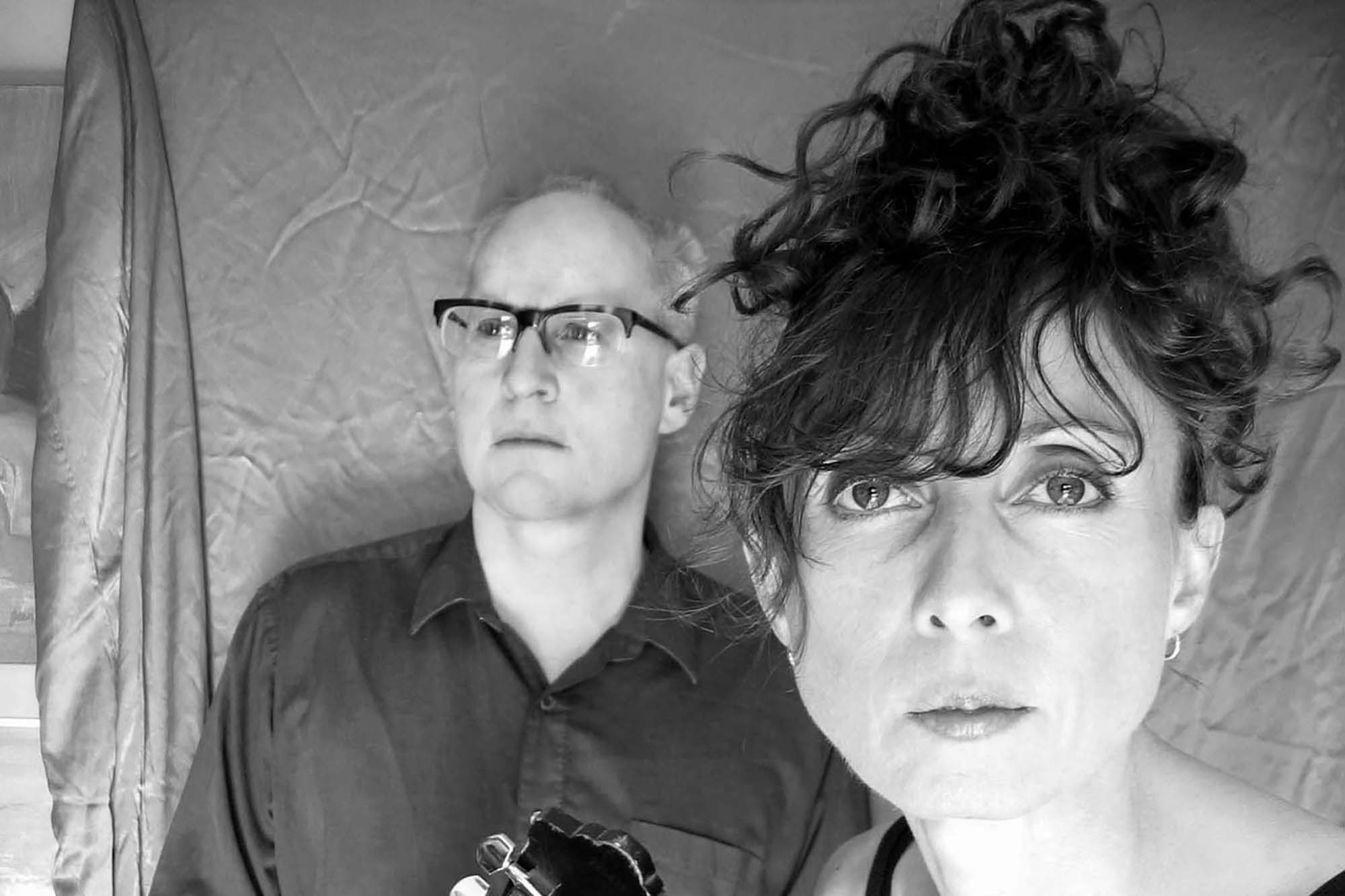 Mecca Normal band photo
Mecca Normal band photo
Image Credit: Jean Smith
An early proto-riot-grrrl explosive. The only sounds are punk poet Jean Smith’s voice and David Lester’s guitar, depicting a woman walking alone in a city, feeling like a target everywhere she goes. Each time she sings “I walk alone,” the impact deepens. This song was designed to alter your perception of the world around you — and for many listeners, it did and continues to do so. “I Walk Alone” is a powerful example of great 80s songs that used minimalist arrangements to convey profound social and personal messages, paving the way for later feminist punk movements.
John Anderson, ‘Wild and Blue’
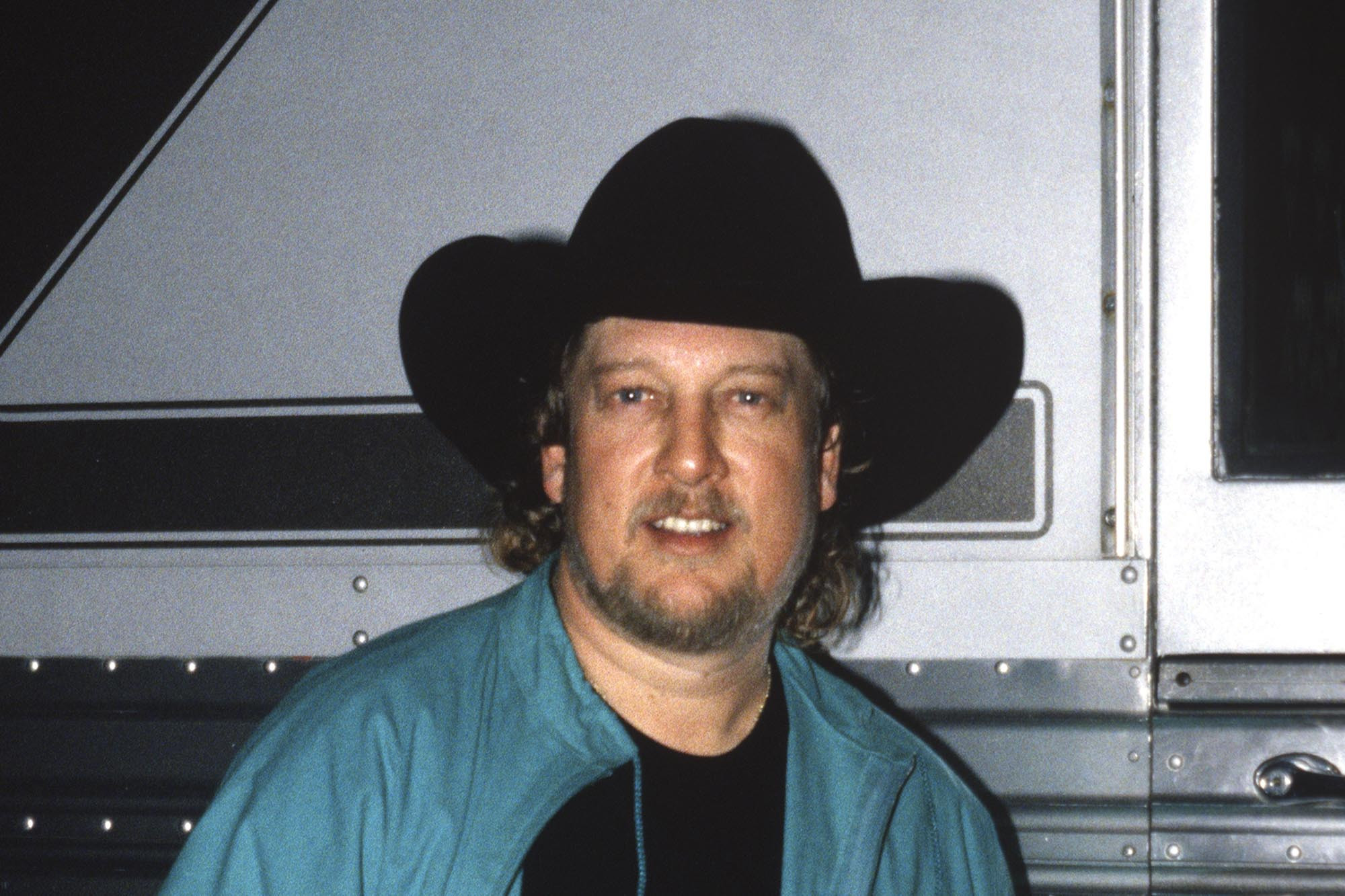 John Anderson posing in San Mateo, 1993
John Anderson posing in San Mateo, 1993
Image Credit: Tim Mosenfelder/Getty Images
John Anderson played a pivotal role in launching the New Traditionalist movement that rescued Eighties country radio. His voice is pure Florida backwoods in “Wild and Blue” — no pop frills, no crossover gloss, just fiddle, banjo, and backing vocals from his sister Donna. It’s a profoundly sad cheating song, especially when Anderson sings, “Somebody’s room on the far side of town/With your minds all made up and the shades all pulled down.” “Wild and Blue” represents the great 80s songs that kept traditional country music alive and relevant amidst the pop crossovers, emphasizing authentic storytelling and instrumentation.
Trouble Funk, ‘Drop the Bomb’
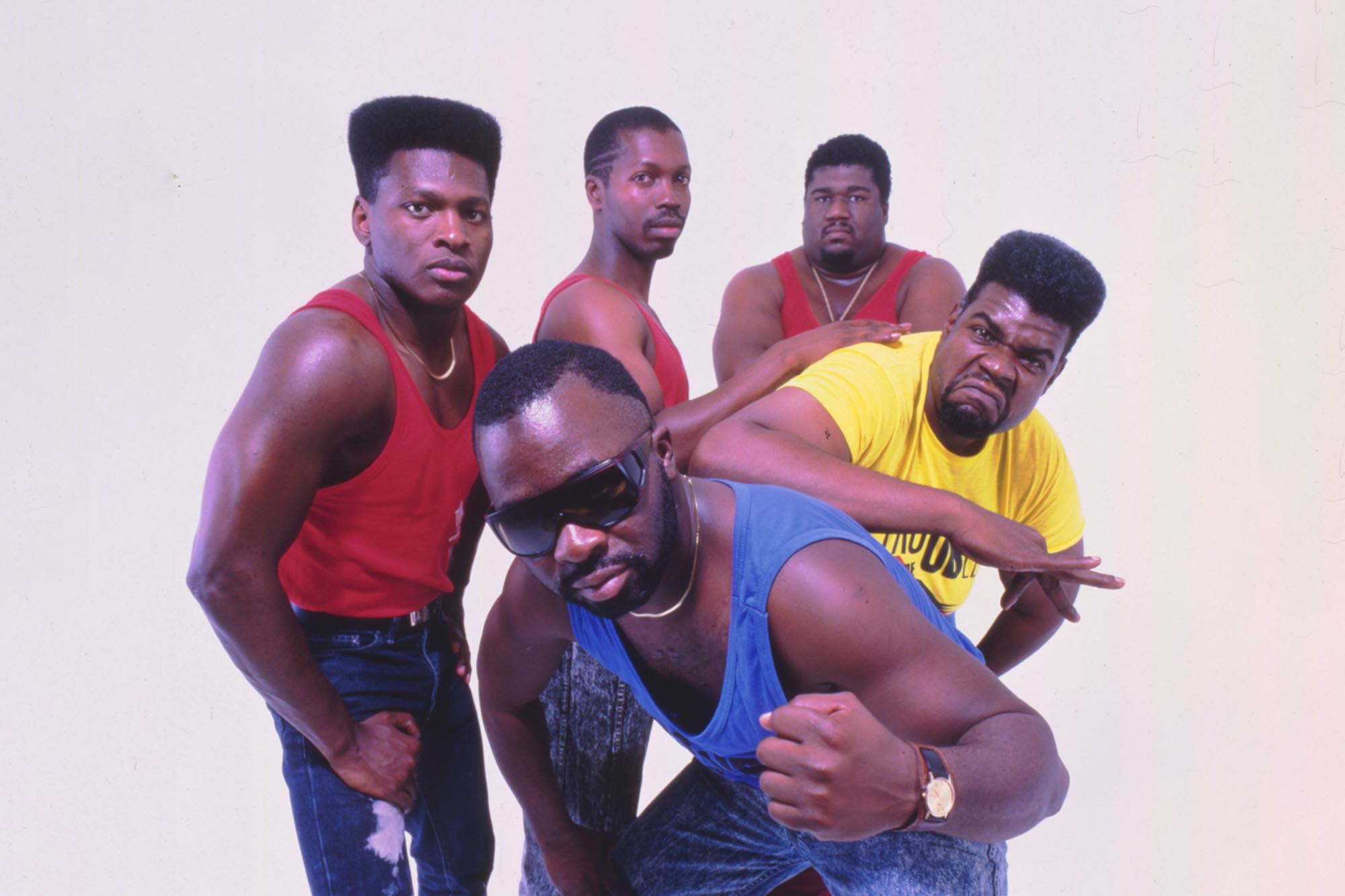 Trouble Funk band photo, circa 1970
Trouble Funk band photo, circa 1970
Image Credit: Michael Ochs Archives/Getty Images
The D.C. go-go scene produced some of the era’s most intensely heavy live-band funk, with legends like Rare Essence, E.U., and Chuck Brown’s Soul Searchers. Trouble Funk encapsulates it all in “Drop the Bomb”: congas, cowbell, cryptic party chants echoing in the shadow of the White House. Trouble Funk drops the bomb on the Technicolor Crew, the Westside Crew, the White Boy Crew, the Freak Crew, the Potomac Crew, keeping the energy high until dawn. “Drop the Bomb” is a definitive track in the go-go genre, highlighting the vibrant and percussive sound that made up a unique part of great 80s songs.
Toto, ‘Africa’
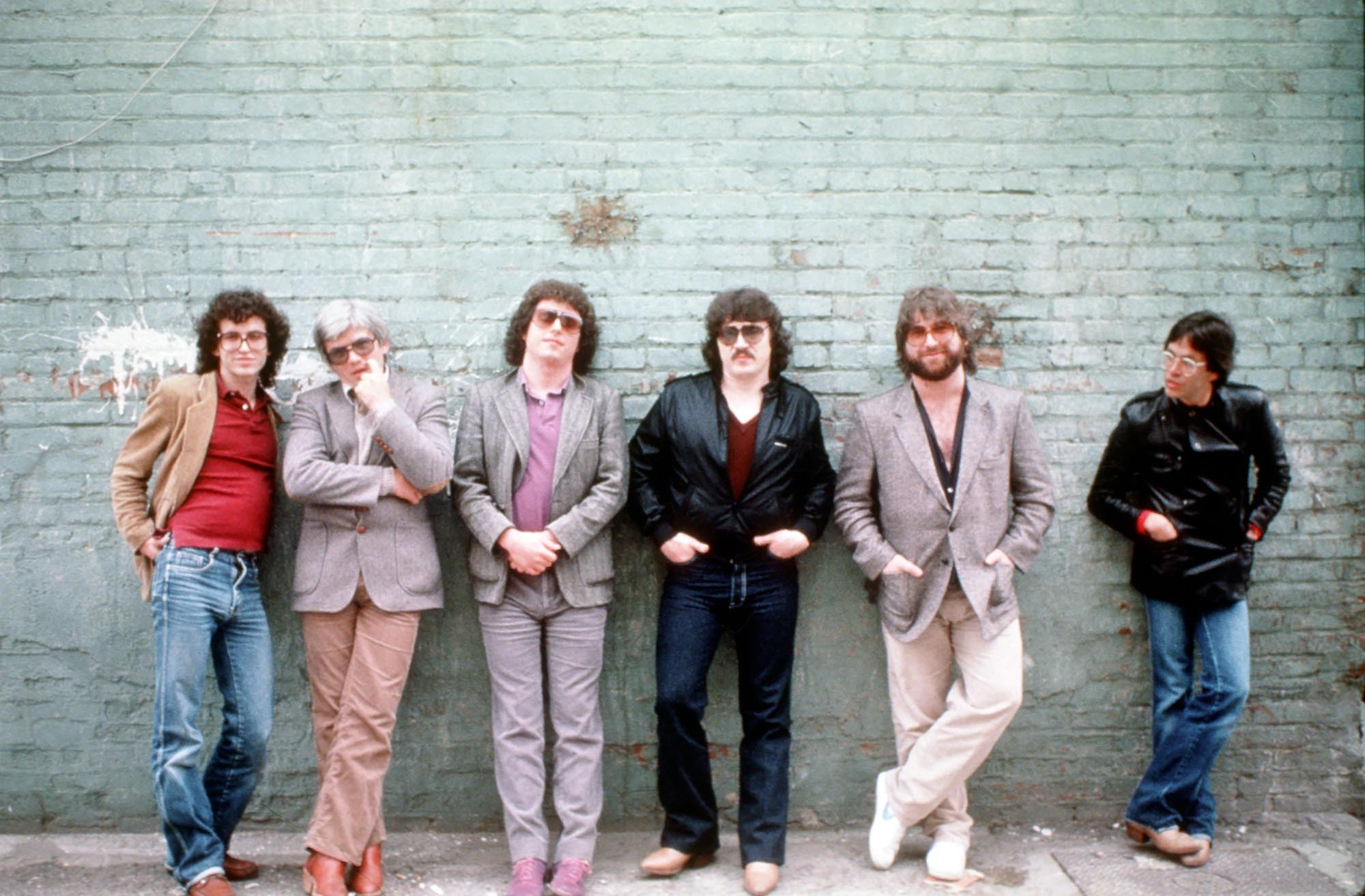 Toto band portrait, 1980s
Toto band portrait, 1980s
Image Credit: Michael Ochs Archives/Getty Images
Ever listen to this song and wonder, “Why do wild dogs cry out in the night? Are they sad? Do they need a hug? Were they already crying when Toto arrived? Is there a parallel universe where we’re all just wild dogs crying in someone else’s Toto song?” You’re not alone, my friend. “Africa” by Toto remains one of the most debated yet beloved great 80s songs, sparking endless interpretations and memes, but undeniably iconic for its distinct sound and enduring popularity.
INXS, ‘Never Tear Us Apart’
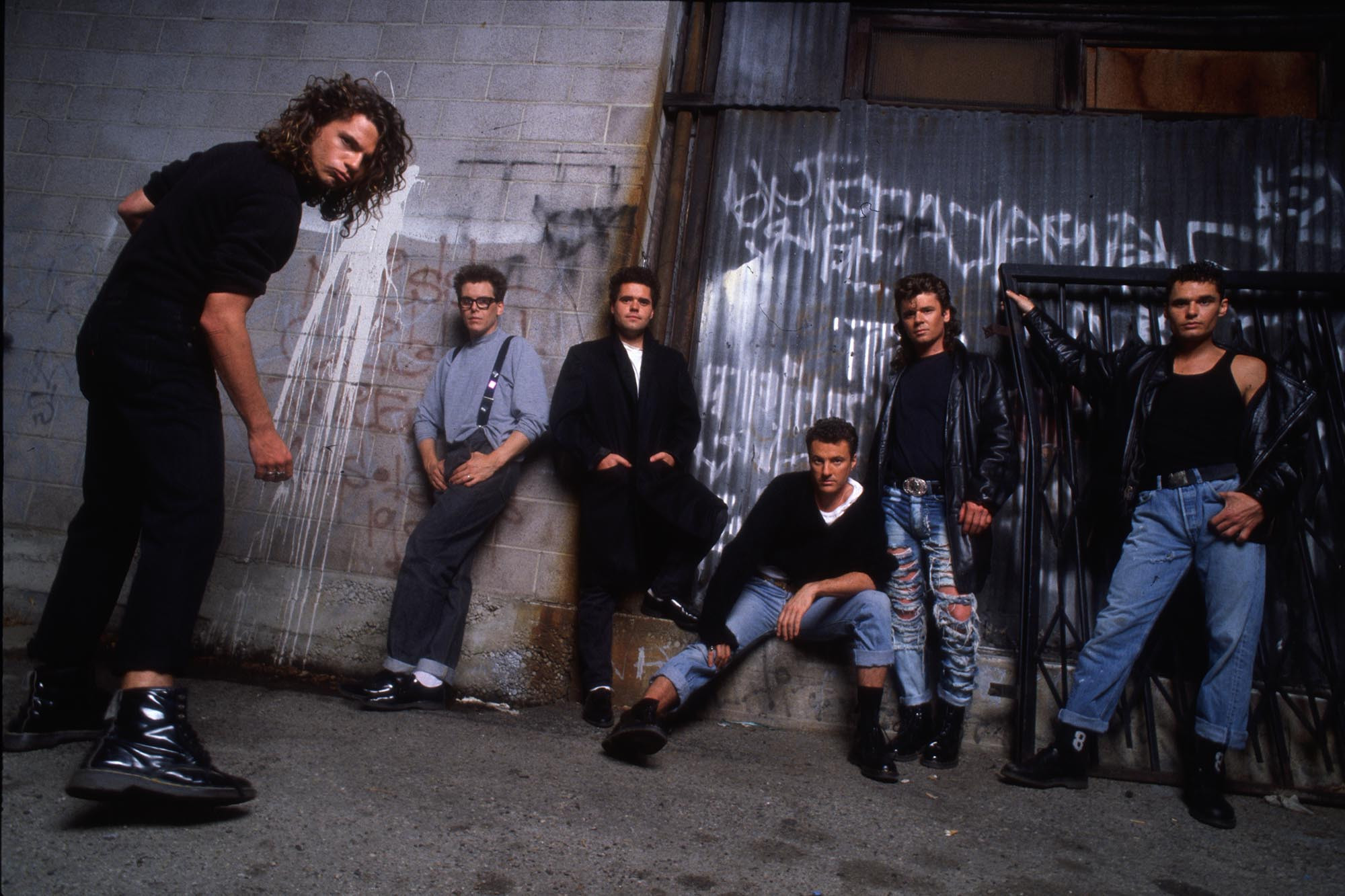 INXS band photo, 1980s
INXS band photo, 1980s
Image Credit: Lynn Goldsmith/Corbis/VCG via Getty Images
Michael Hutchence, one of the decade’s most magnetic frontmen, distills raw emotion into a passionate torch song that resonates deeply. As he told Rolling Stone, “We don’t fit into the real normal, cleaned-up, corporate rock thing.” “Never Tear Us Apart” features one of his most quintessential Hutch moments: “We all have wings, but some of us don’t know whyyyyy!” This song is a standout example of great 80s songs that blended rock energy with heartfelt vulnerability, solidifying INXS’s place in music history.
Joan Armatrading, ‘Me Myself I’
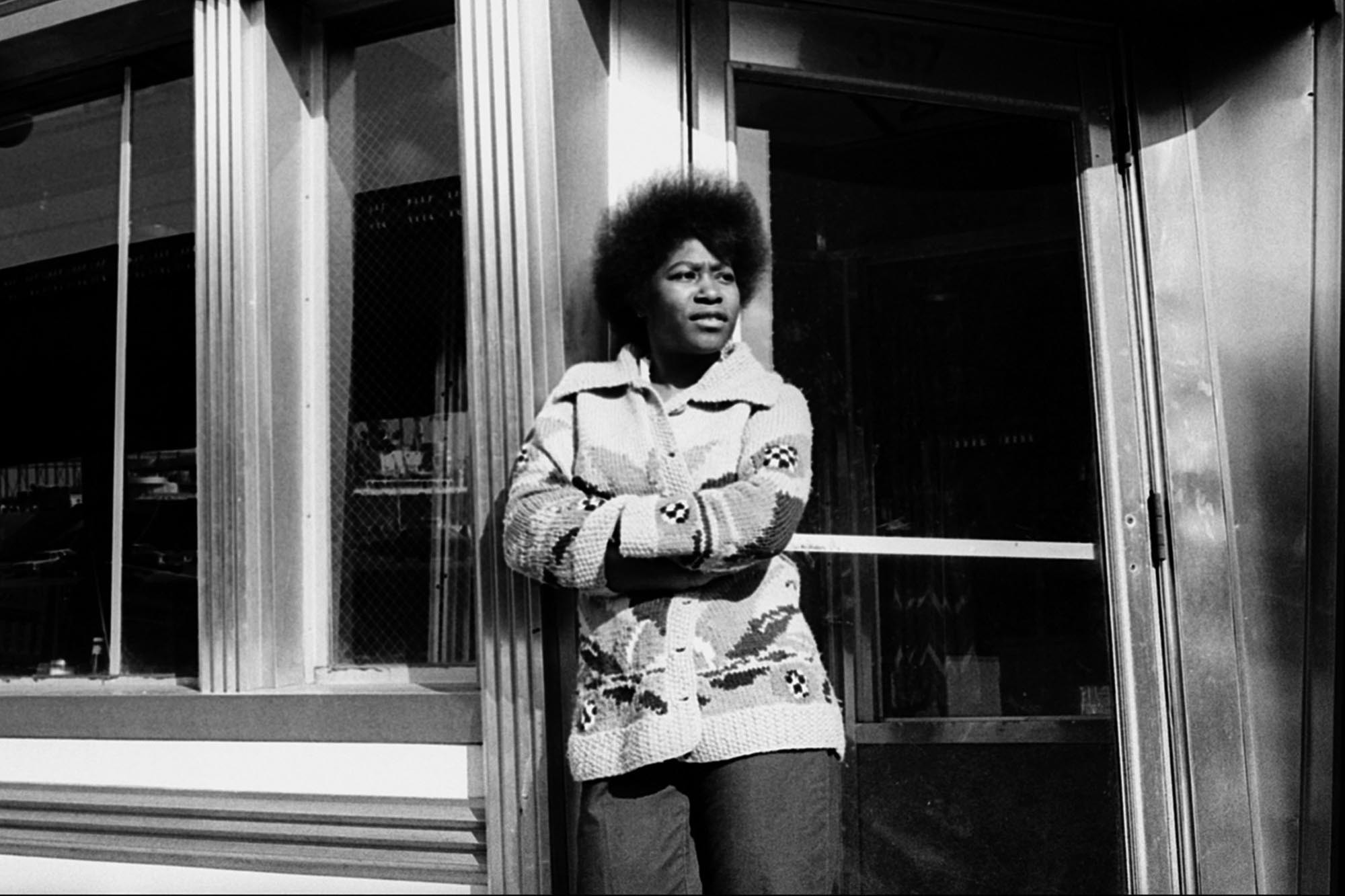 Joan Armatrading in New York, 1981
Joan Armatrading in New York, 1981
Image Credit: Allan Tannenbaum/Getty Images
Joan Armatrading, self-taught guitarist from a West Indian immigrant family in England, forged her unique path. “There wasn’t a female playing the way I played, or singing the songs that I sang,” she recounted in 2021. “And there certainly wasn’t a Black person doing it. So there was nothing for anybody to have a reference to.” “Me Myself I” celebrates the joy of solitude. “I wanna have a boyfriend and a girl for laughs,” she sings. “But only on Saturday/Six days to be alone.” This track is among the great 80s songs that championed individuality and self-reliance, breaking barriers and defying expectations.
‘Weird Al’ Yankovic, ‘Another One Rides the Bus’
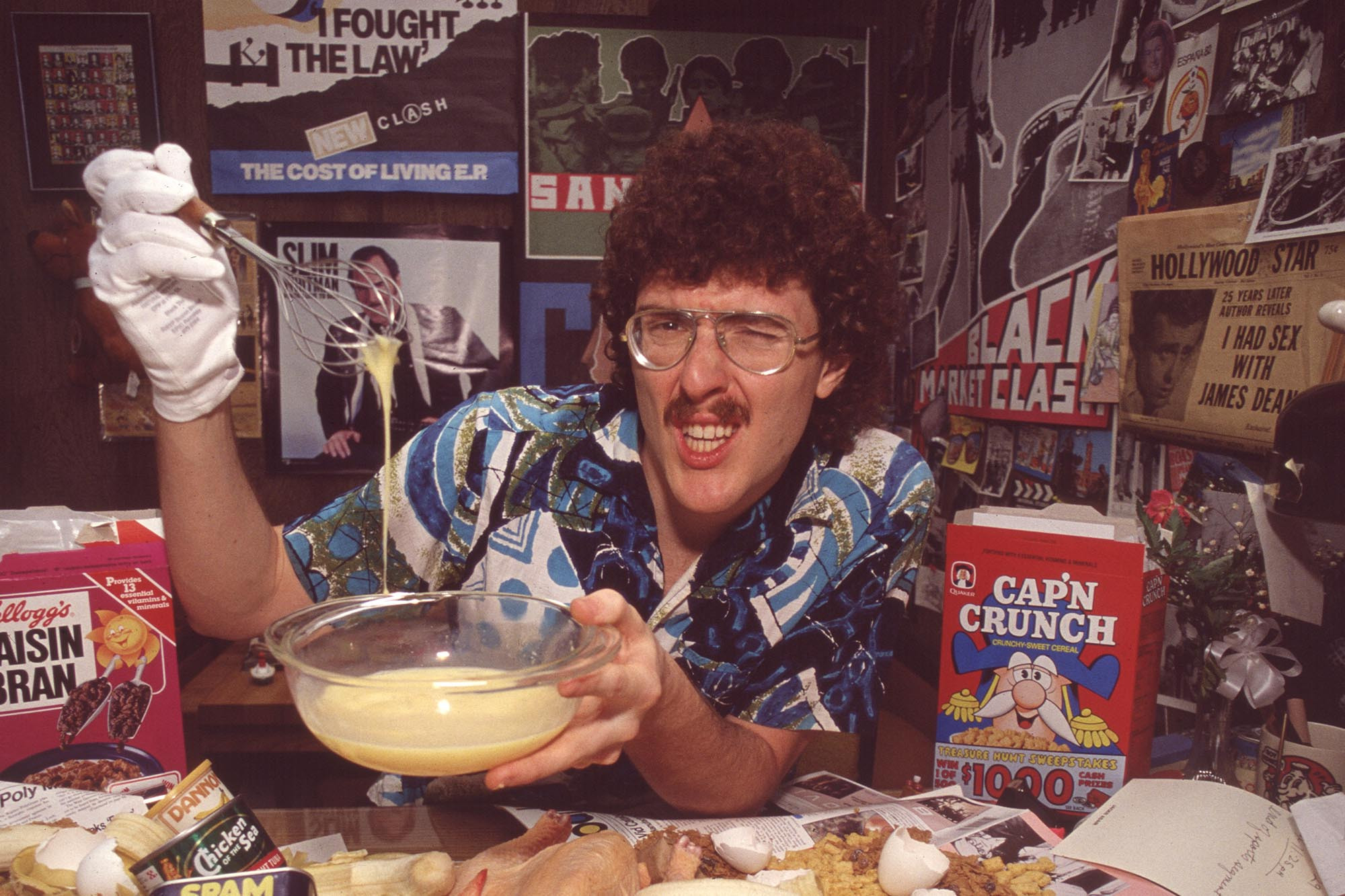 Weird Al Yankovic posing with food, 1984
Weird Al Yankovic posing with food, 1984
Image Credit: Bob Riha, Jr./Getty Images
“Riding in a bus down the boulevard and the place is pretty packed/Couldn’t find a seat so I had to stand with the perverts in the back.” “Weird Al” Yankovic altered the trajectory of accordion history with this song. He first gained fame on the Dr. Demento radio show with “My Bologna,” but many thought he’d be a novelty act, a one-hit wonder like Tom “T-Bone” Stankus, Freddie Blassie, or Barnes & Barnes. However, “Another One Rides the Bus” became his pivotal second hit, proving Yankovic’s endless well of comedic genius. It paved the way for “Yoda,” “It’s Still Billy Joel to Me,” “(I Lost On) Jeopardy,” “Chicken Pot Pie,” and perhaps his narrative masterpiece, “The Rye or the Kaiser (Theme From Rocky XIII).” Yankovic’s career has now surpassed almost every artist he’s parodied, demonstrating the lasting appeal of great 80s songs, even in comedic form.
Mahlathini and the Mahotella Queens, ‘Ngicabange Ngaqeda’
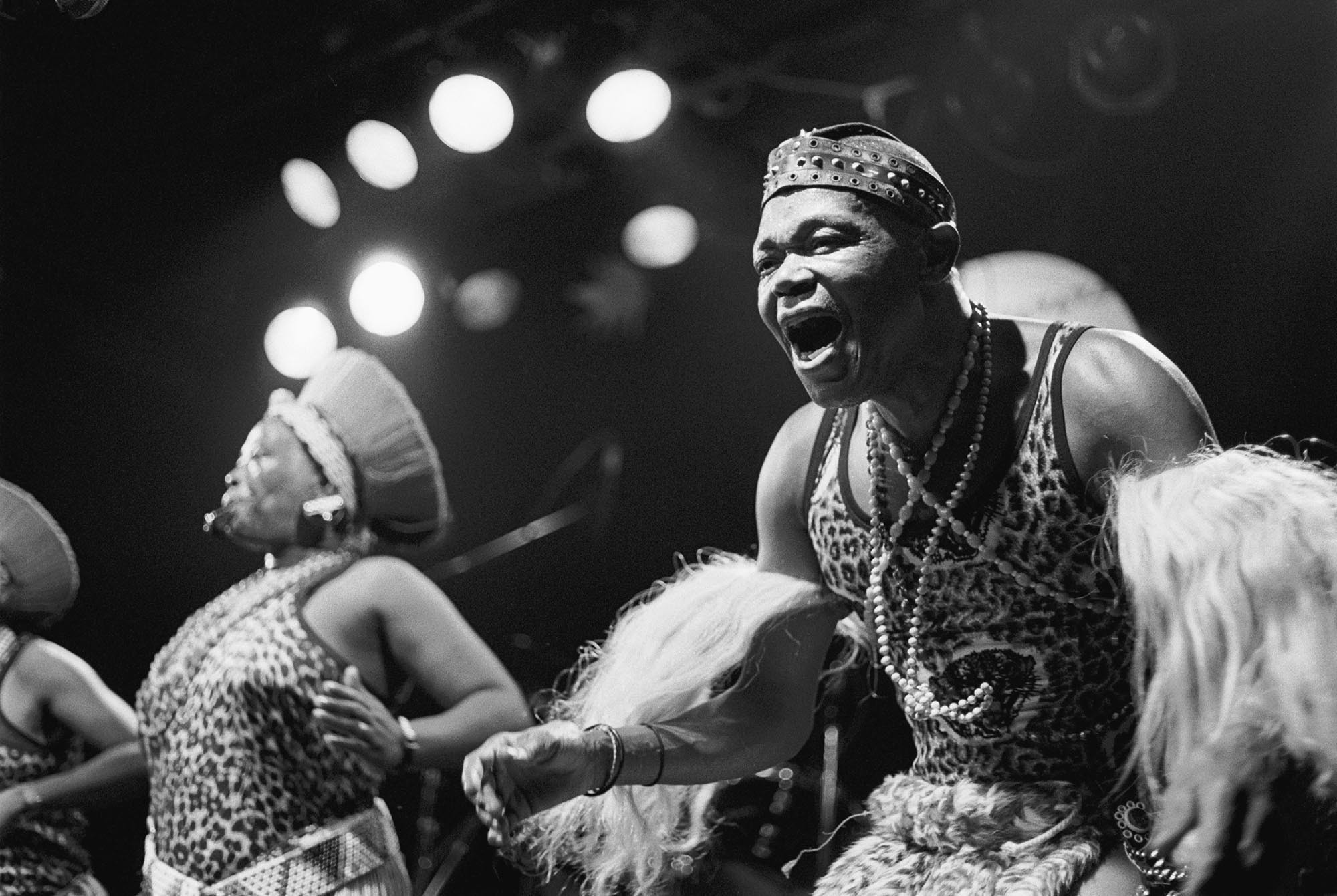 Mahlathini and the Mahotella Queens performing in Amsterdam, 1988
Mahlathini and the Mahotella Queens performing in Amsterdam, 1988
Image Credit: Frans Schellekens/Redferns/Getty Images
A classic of South African mbaqanga, from the compilation The Indestructible Beat of Soweto, which introduced global audiences to the beauty township artists created in defiance of apartheid’s brutality. Simon “Mahlathini” Nkabinde, “the Lion of Soweto,” known for his deep bass voice, collaborated with the Mahotella Queens. The Makgona Tshole Band were Johannesburg’s equivalent to Motown’s Funk Brothers or L.A.’s Wrecking Crew — the house band behind countless dance hits in the Sixties and Seventies. (Salute to bassist Joseph Makwela, Africa’s James Jamerson.) Before Paul Simon’s Graceland, these artists were crafting the rhythm of resistance. “Ngicabange Ngaqeda” is a powerful representation of great 80s songs that carried profound cultural and political weight, bringing global attention to South African music and struggles.
Spacemen 3, ‘That’s Just Fine’
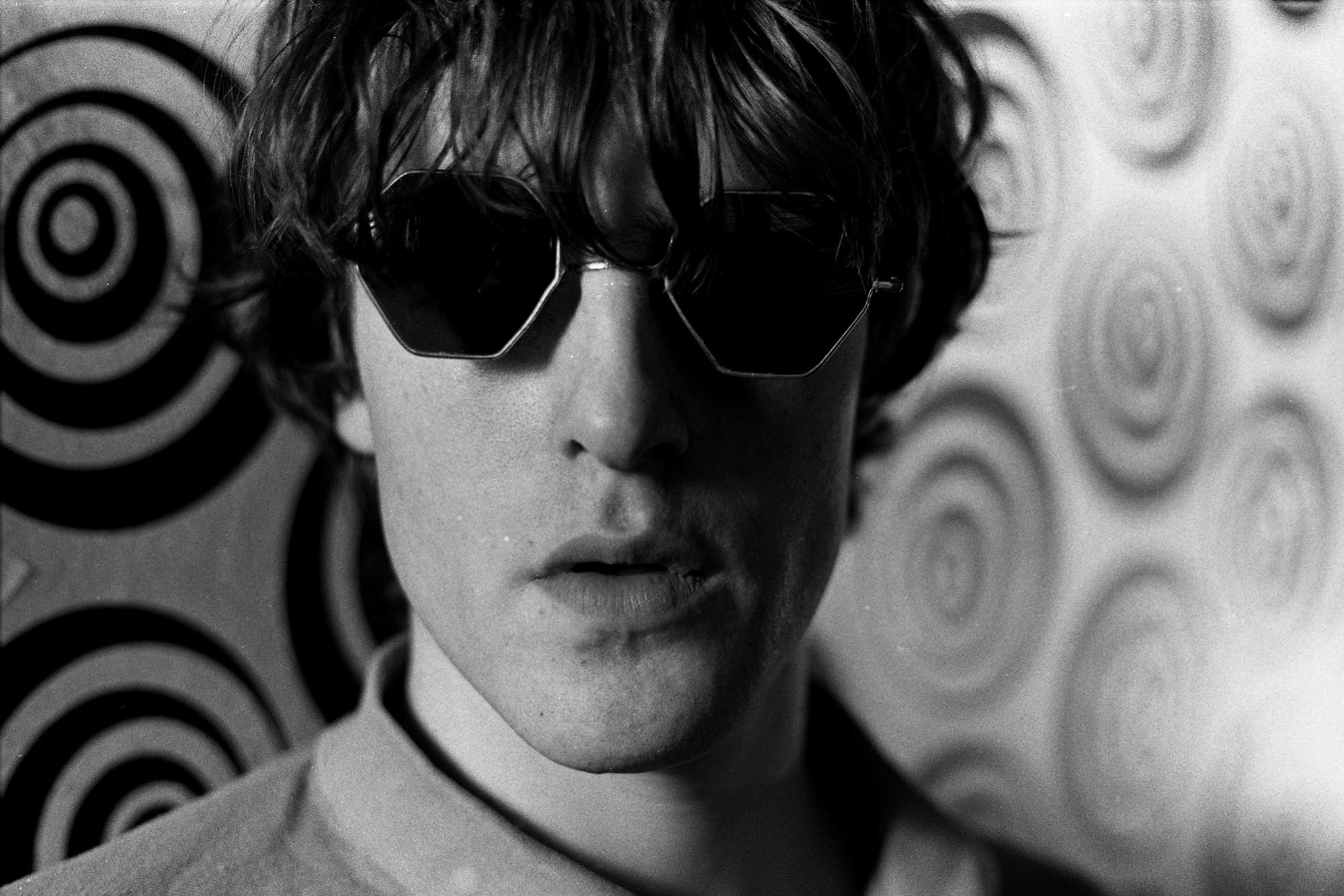 Jason Pierce of Spacemen 3, 1991
Jason Pierce of Spacemen 3, 1991
Image Credit: Martyn Goodacre/Getty Images
Depraved lysergic English boys in a psychedelic guitar trance, featured on a compilation titled Taking Drugs to Make Music to Take Drugs To. Sonic Boom and Jason “Bassman” Pierce construct a sprawling loop of feedback and echo, lost somewhere between the Velvet Underground and the Stooges, where essentially nothing happens except a stoned voice mumbling “that’s just fiiiine” or “blows my miiind” for five, six, seven minutes, humming a delicate melody reminiscent of Brian Wilson. It’s as romantic as “Surfer Girl,” in its own unique way. “That’s Just Fine” is an example of great 80s songs that explored the outer edges of psychedelia and drone, pushing the boundaries of genre and expectation.
Peter Schilling, ‘Major Tom (Coming Home)’
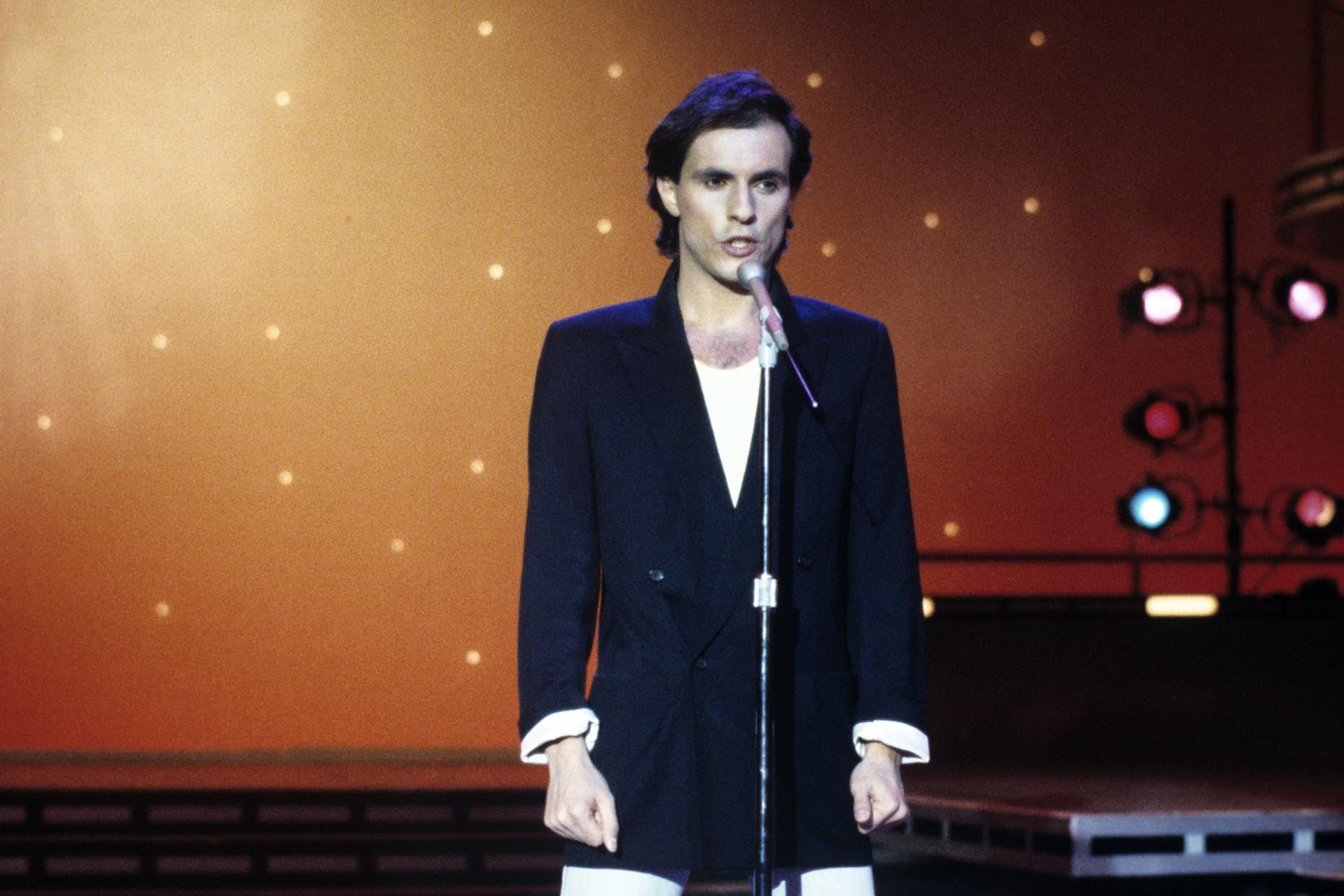 Peter Schilling on American Bandstand, 1983
Peter Schilling on American Bandstand, 1983
Image Credit: ABC Photo Archives/Disney General Entertainment Content/Getty Images
The saga of Major Tom continues. German one-hit-wonder Peter Schilling presents an unofficial sequel to David Bowie’s “Space Oddity” and “Ashes to Ashes,” following Major Tom adrift in his space capsule, lost in the cosmos. Yet, “Major Tom” became a synth-pop classic in its own right — impressive for musical fan fiction. This track is a prime example of great 80s songs that built upon existing musical narratives, creating something new and memorable within the synth-pop landscape.
Rush, ‘The Spirit of Radio’
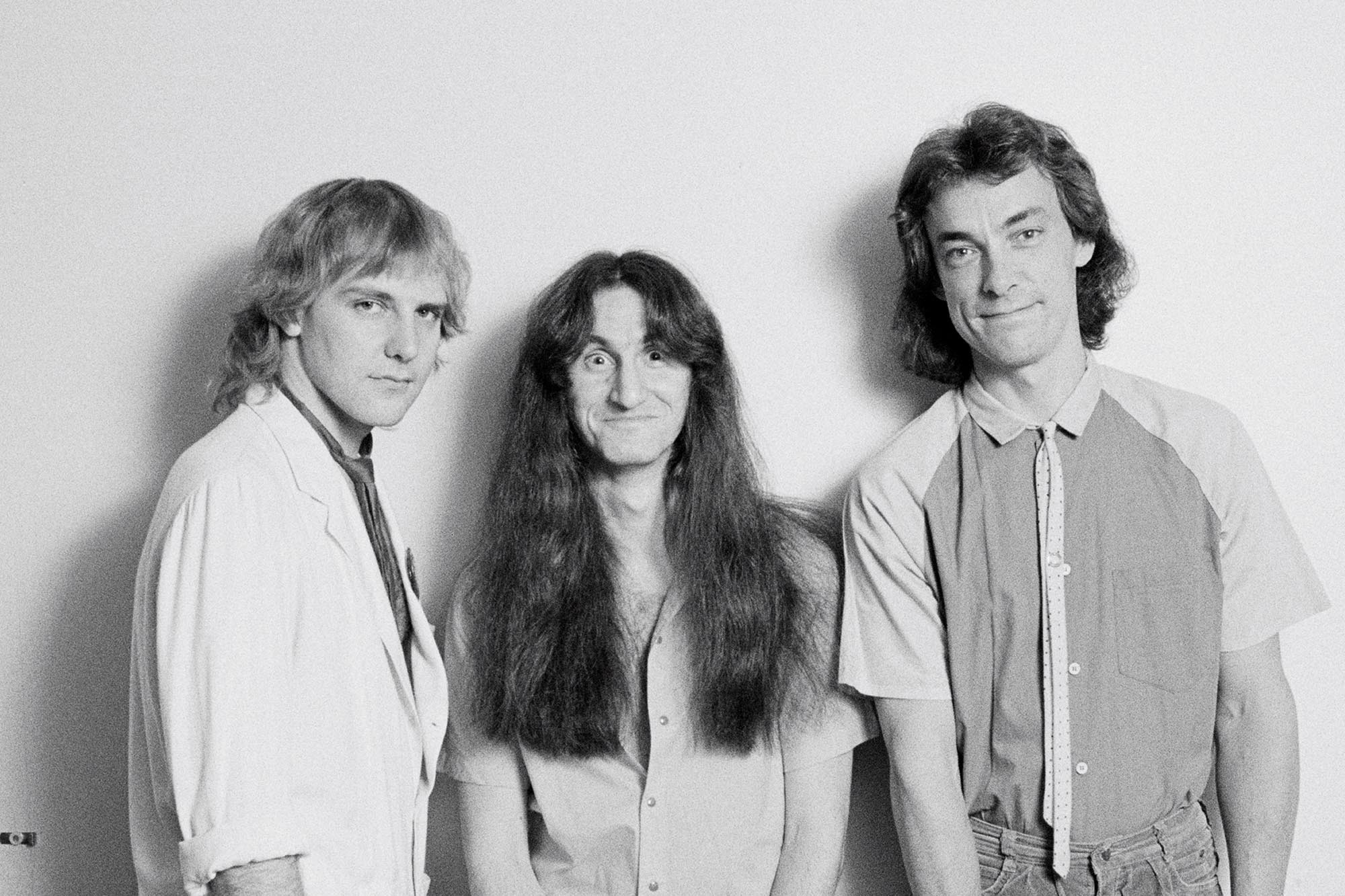 Rush band backstage, England, 1980
Rush band backstage, England, 1980
Image Credit: Fin Costello/Redferns/Getty Images
Rush tackles the radio industry, searching for authenticity amidst commercialism and compromise. It’s a typically insightful examination of pop music’s mechanics, attuned to the timeless essence of rhythm, complete with a reggae interlude. One of Geddy Lee’s most unforgettable radio moments: “It’s really just a question of your honesty/Yeah, your honesty!” “The Spirit of Radio” is a standout track among great 80s songs for its intelligent lyrics, complex musicianship, and commentary on the music industry itself.
Steel Pulse, ‘Chant a Psalm’
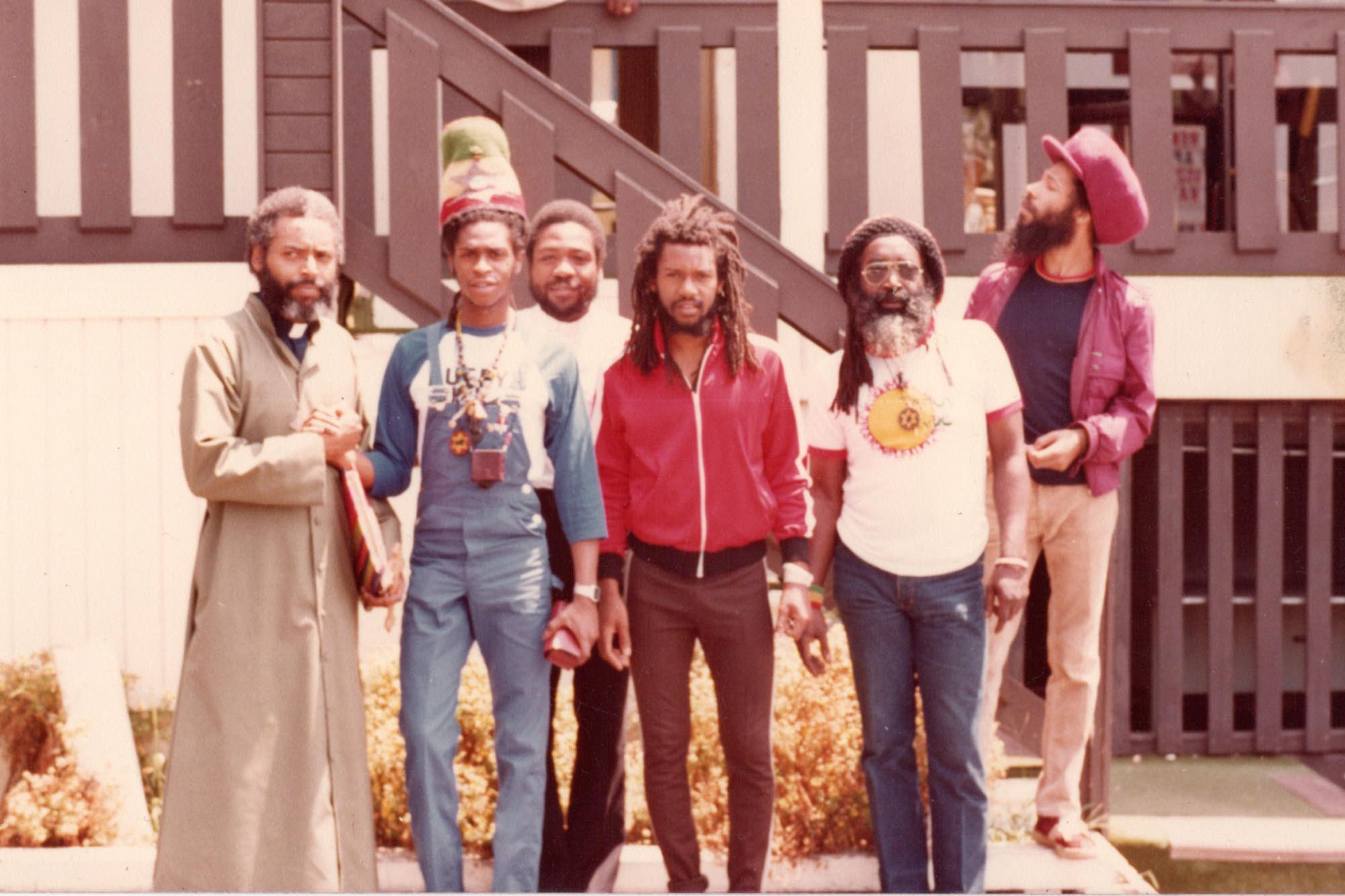 Steel Pulse band photo with Fr. Amde Hamilton, 1982
Steel Pulse band photo with Fr. Amde Hamilton, 1982
Image Credit: Shirley Hamilton/Amde Trust/Getty Images
“Good tidings I bring you,” David Hinds sings on “Chant a Psalm,” from Steel Pulse’s True Democracy. It was a message of hope during a period of personal and political turmoil for the UK reggae veterans from Birmingham. Hinds finds solace in biblical stories, invoking Moses, Daniel, Samson, and Solomon, urging believers to “Attract these angels in dreams and in your prayers.” “Chant a Psalm” is a powerful example of great 80s songs that used reggae to convey messages of faith, resilience, and social commentary.
Strafe, ‘Set It Off’
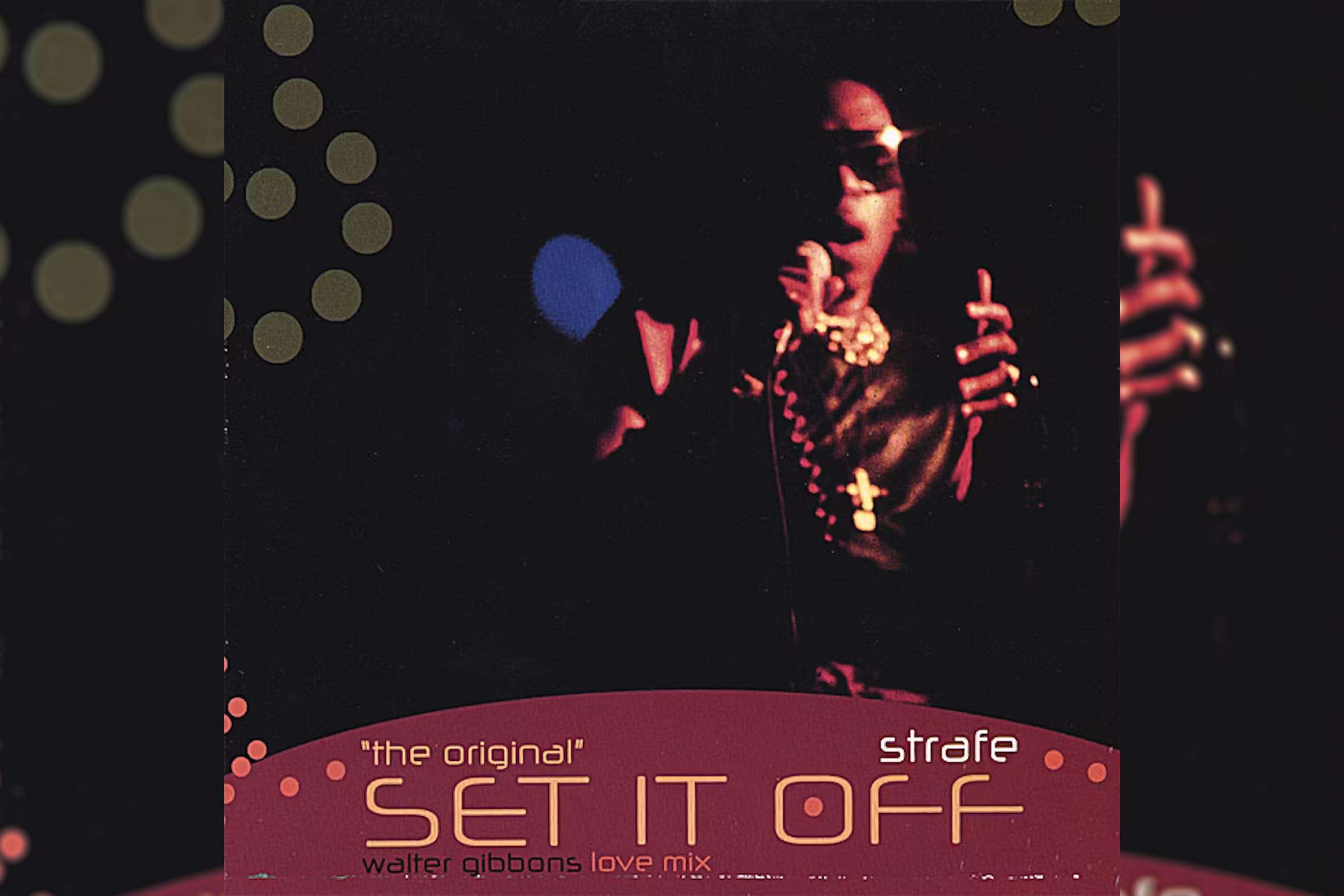 Strafe album art for Set It Off
Strafe album art for Set It Off
Image Credit: Unattributed
An NYC underground boombox anthem, with 808s pushed to their limits and the urgent question, “Y’all want this party started right? Y’all want this party started quickly?” Not a radio hit, but a track whose influence echoed in hits for decades to come. “Set It Off” is a crucial song in understanding the development of underground dance music in the 80s, contributing to the lineage of great 80s songs that shaped future genres.
The Police, ‘When the World Is Running Down’
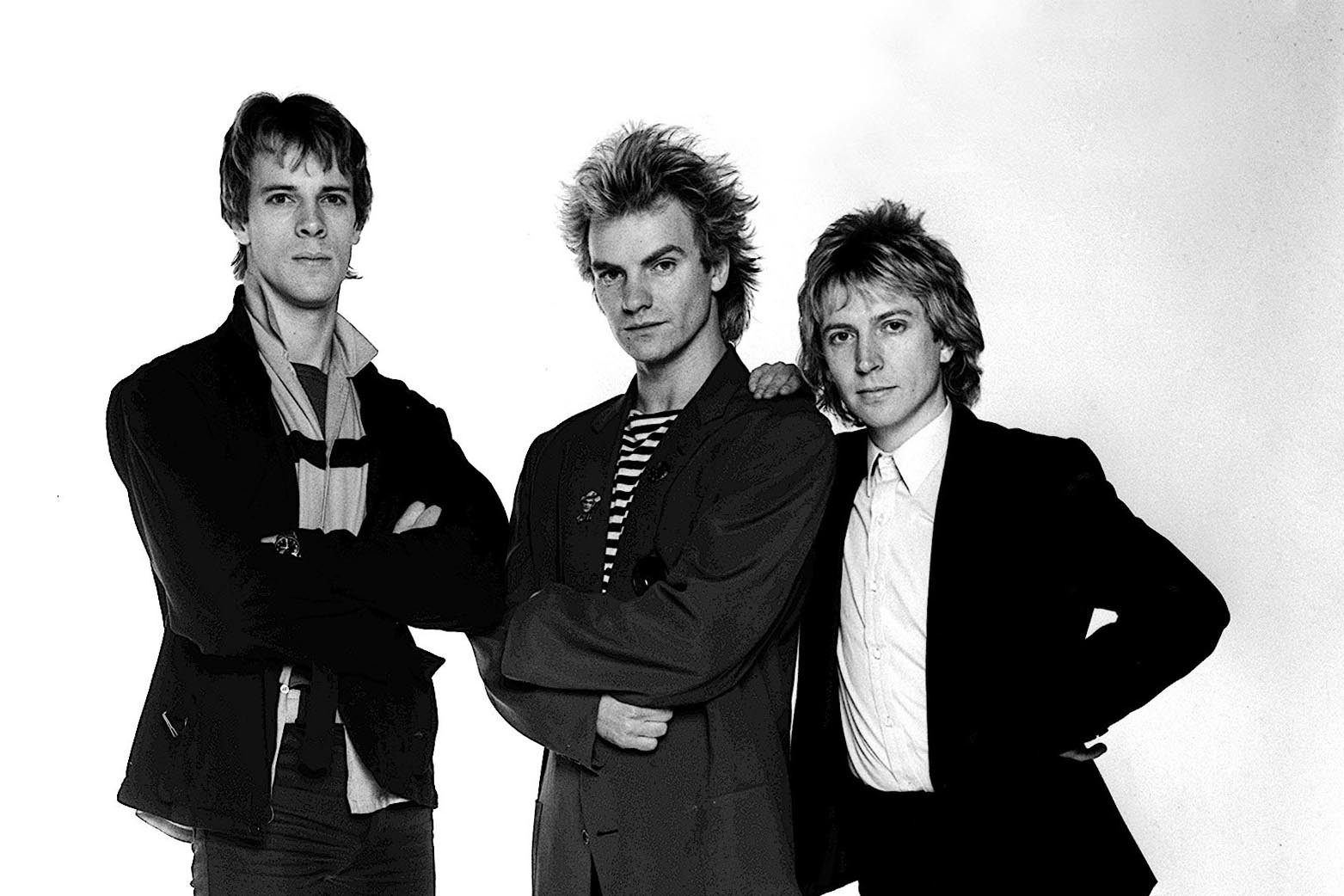 The Police in studio, 1980
The Police in studio, 1980
Image Credit: Gavin Kent/Mirrorpix/Getty Images
This bottle-blond trio scored countless iconic hits, yet even their deep cuts shone brightly, like this fan favorite from Zenyatta Mondatta. “It was a very difficult time,” Sting recalled. “There was a sense of urgency and quite a lot of drugs.” And it shows. It’s a captivating groove exploring the ennui of capitalist excess, as Sting sings about a jaded European recluse in his mansion, watching bootleg James Brown videos on his VCR, questioning why his expensive toys no longer bring joy. His only solace is the mantra: “When the world is running down, you make the best of what’s still around.” “When the World Is Running Down” is a testament to the depth of great 80s songs, proving that even album deep cuts could be insightful and musically compelling.
Oran ‘Juice’ Jones, ‘The Rain’
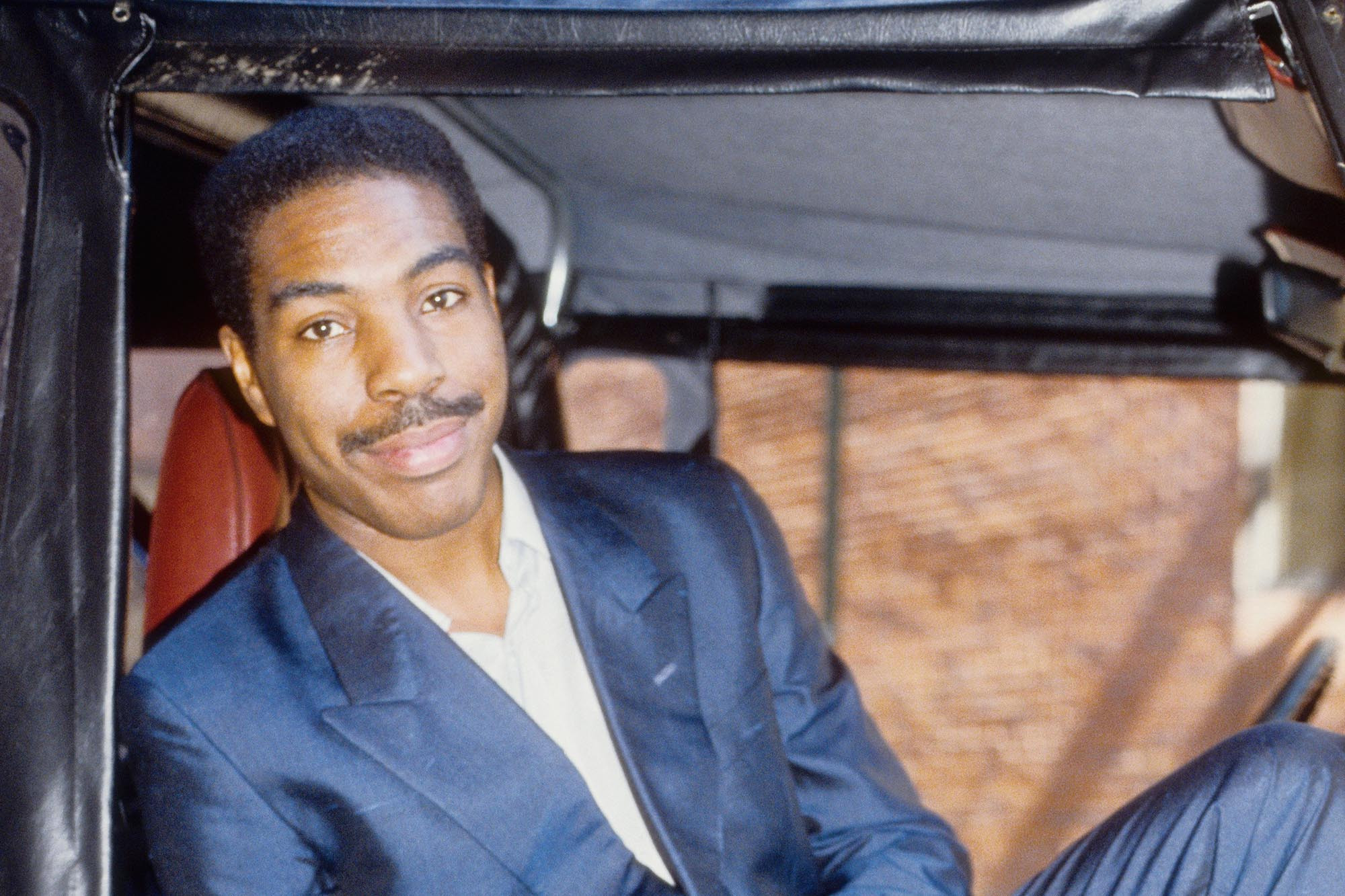 Oran "Juice" Jones portrait, 1987
Oran "Juice" Jones portrait, 1987
Image Credit: Michael Ochs Archive/Getty Images
Oran “Juice” Jones is not one for sentimentality. He delivers a smooth R&B ballad about catching his lady with another man, so by the time she gets home, her bags are packed. Then he unleashes a breakup monologue worthy of an Oscar. “What were you trying to prove? This was the Juice! I gave you things you couldn’t even pronounce!” Jones declares, “You gotta get on outta here with that alley-cat-coat-wearing, hush-puppy-shoe-wearing crumb cake I saw you with! ‘Cause you dismissed!” But his ultimate line is saved for the finale: “You without me like cornflake without the milk!” “The Rain” is a uniquely dramatic and humorous entry among great 80s songs, showcasing storytelling and spoken-word elements within R&B.
Bananarama, ‘Shy Boy’
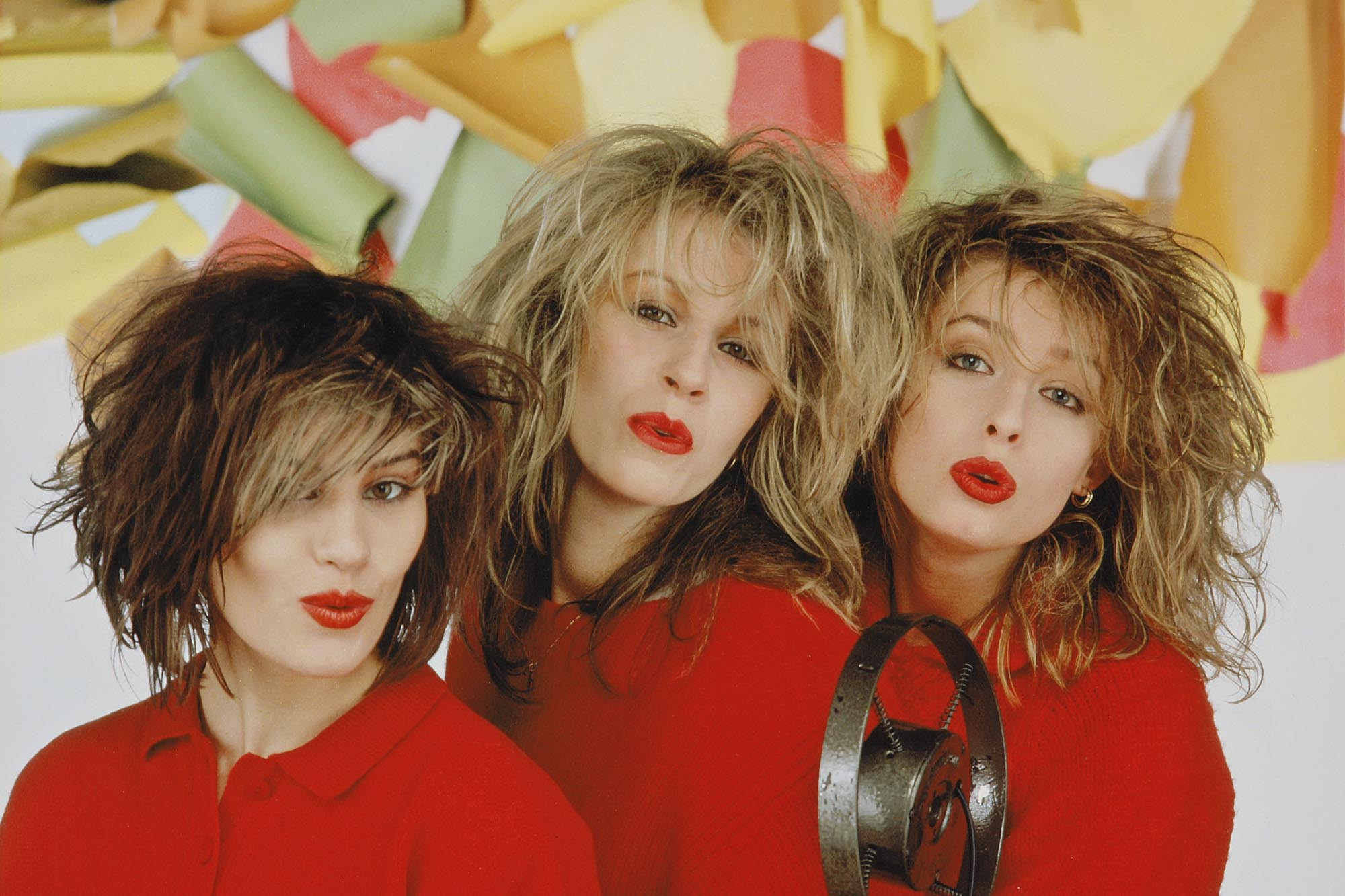 Bananarama group portrait, London, 1983
Bananarama group portrait, London, 1983
Image Credit: Mike Prior/Getty Images
Shy boys without Bananarama? Like cornflakes without milk. The girl gang of Siobhan Fahey, Sarah Dallin, and Keren Woodward had an incredible run, transitioning from post-punk shoop-shoopers (“Cruel Summer,” “Cheers Then”) to hi-NRG disco queens (“I Heard a Rumour,” “Robert De Niro’s Waiting”) without ever bothering to learn proper singing technique. “Shy Boy” is their most irresistible hit, highlighting their seductive, bored expressions and unison vocals, from their debut Deep Sea Skiving. It’s one of the few Bananarama songs that spare any thought for boys at all — besides Robert De Niro. “Shy Boy” is a perfect example of great 80s songs that were pure pop fun, defined by catchy hooks and a distinct girl-group charm.
Minor Threat, ‘Straight Edge’
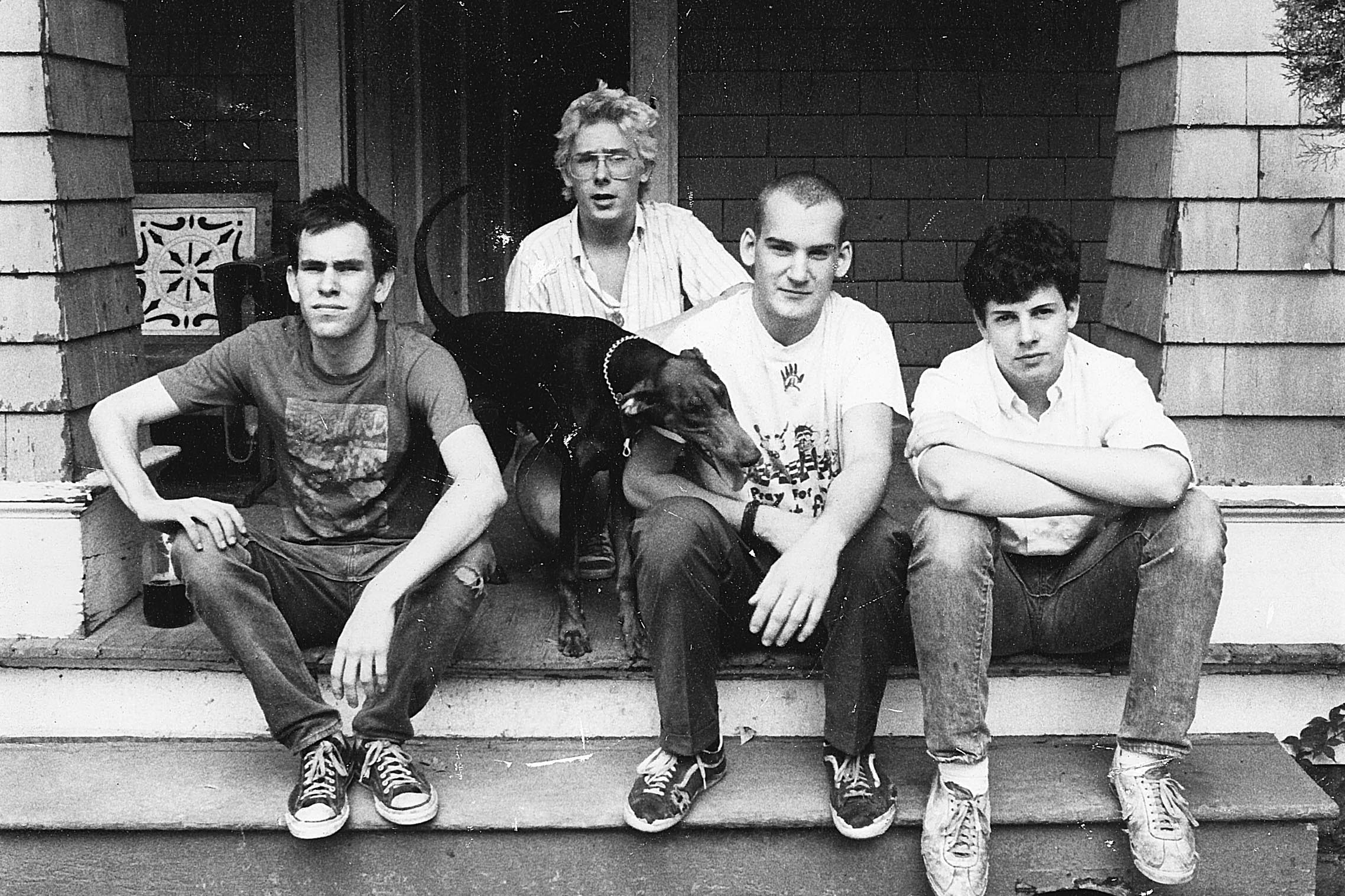 Minor Threat band photo, 1982
Minor Threat band photo, 1982
Image Credit: Rebecca Hammel
Hardcore at its most intense: just kids communicating with other kids, town after town, bypassing adult intermediaries, expressing raw emotions. D.C.’s Minor Threat’s “Straight Edge” isn’t about rules, it’s about taking ownership of your life, not letting it passively happen to you. The shortest song on this list, but 46 life-affirming seconds, especially when Ian MacKaye strains “something I just don’t neeeeed” until his voice cracks. “Straight Edge” is a defining anthem of hardcore punk and a powerful inclusion among great 80s songs for its brevity, intensity, and influential message.
The Raincoats, ‘No One’s Little Girl’
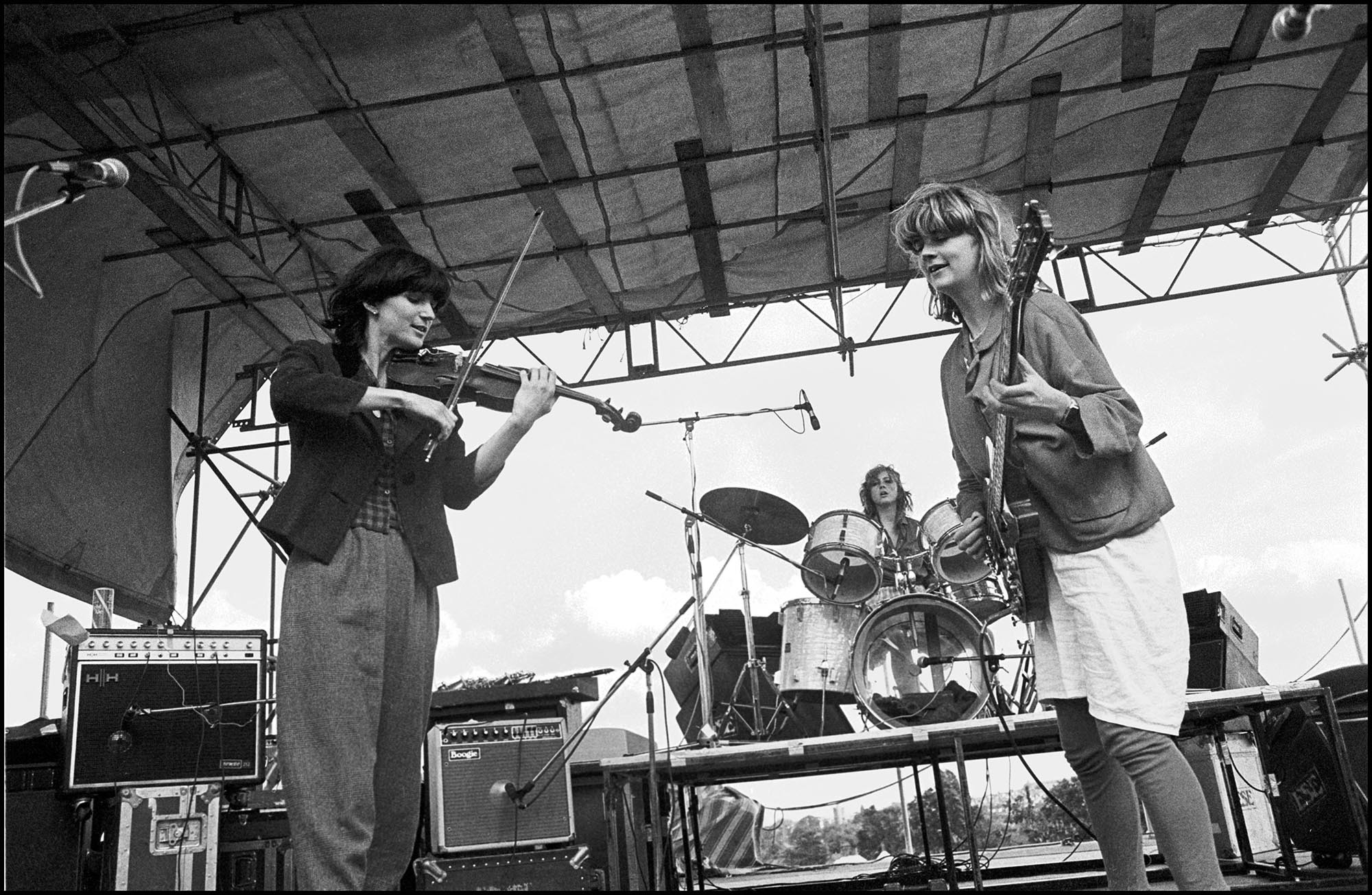 The Raincoats performing live in the 1980s
The Raincoats performing live in the 1980s
Image Credit: David Corio/Redferns/Getty Images
The Raincoats redefined punk rock in the early Eighties with art-school feminist aggression and a very London sense of dark humor. “No One’s Little Girl” is a manic groove, attacking misogynistic clichés in the style of their albums The Raincoats and Odyshape. Gina Birch chants “I never shall be in your family tree,” over Ana Da Silva’s guitar and Vicky Aspinall’s violin. This song represents the great 80s songs that challenged gender norms and pushed punk’s boundaries, incorporating art and feminist perspectives.
Ray Parker Jr., ‘I Still Can’t Get Over Lovin’ You’
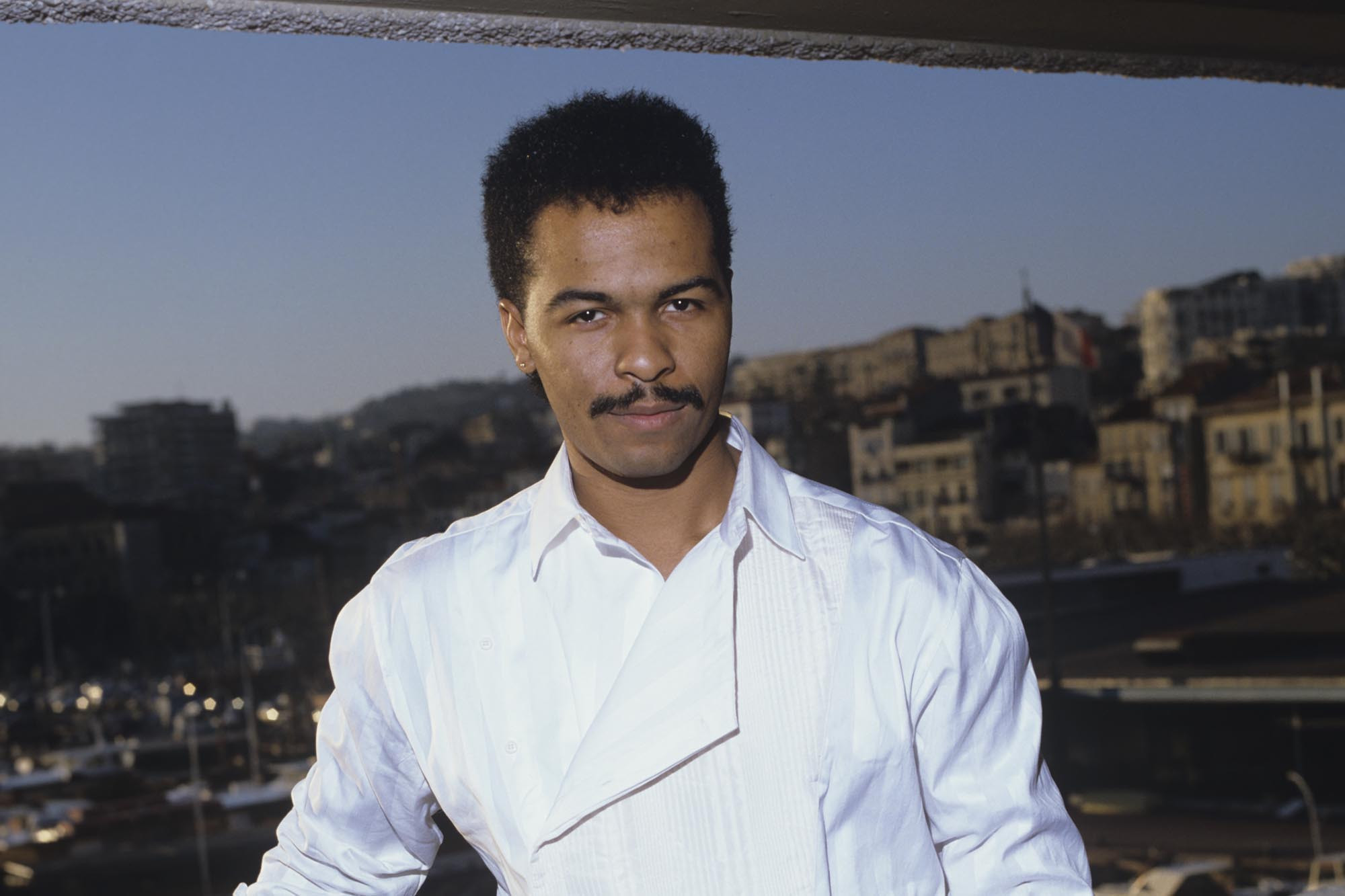 Ray Parker Jr. portrait, Cannes, 1985
Ray Parker Jr. portrait, Cannes, 1985
Image Credit: David Redfern/Redferns/Getty Images
Ray Parker Jr. remains one of the Eighties’ most criminally underrated pop auteurs, responsible for hits like “A Woman Needs Love,” “The People Next Door,” and “The Other Woman.” (“Ghostbusters” is … fine?) Parker began as a Motown prodigy — that’s his guitar solo on Stevie Wonder’s “Maybe Your Baby.” For “I Still Can’t Get Over Loving You,” he channels UK synth-pop into his own New Wave ballad, purring “I can’t turn you loose, though I know it’s self-abuse” — with a deeply sad ache. He even tips his hat to his Brit-pop inspiration at the end, slipping in the line “Every breath you take, I’ll be watching you, girl.” “I Still Can’t Get Over Loving You” is a testament to the versatility of great 80s songs, blending R&B with New Wave influences to create something uniquely poignant.
Girlschool, ‘Yeah Right’
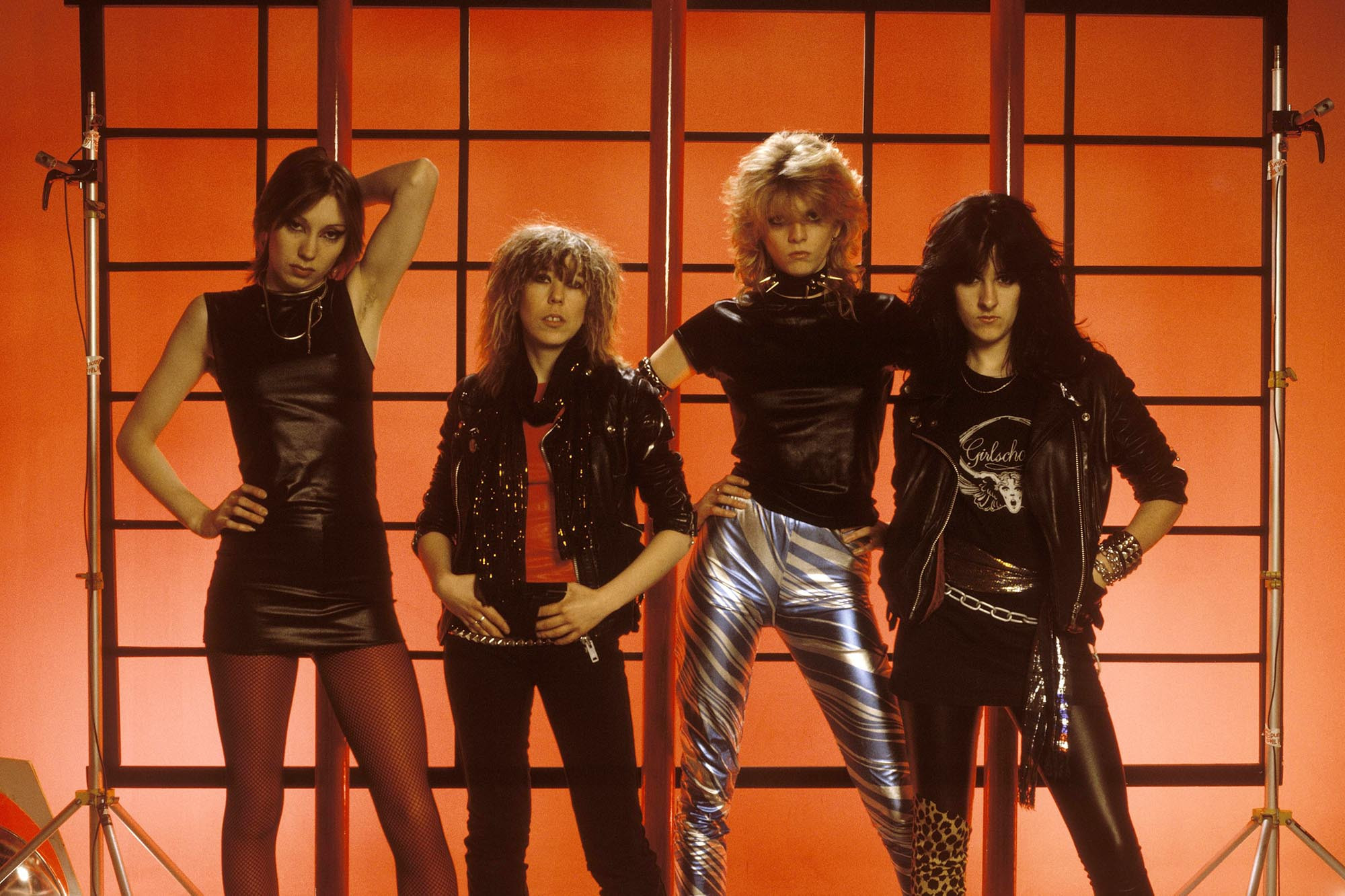 Girlschool band portrait, UK, 1983
Girlschool band portrait, UK, 1983
Image Credit: Fin Costello/Redferns/Getty Images
Feminist metal leather-clad girls from the UK, in full kill-your-parents mode. Girlschool created this anthem about every woman’s right to stay out all night and raise hell, with Kelly Johnson showcasing her blistering guitar riffs. They get a boost from their Motörhead buddies: Philthy Animal Taylor makes a drag cameo in the video as someone’s furious mother. “Yeah Right” is a powerful representation of great 80s songs that empowered women in heavy metal, challenging genre norms and celebrating female rebellion.
Ministry, ‘Revenge’
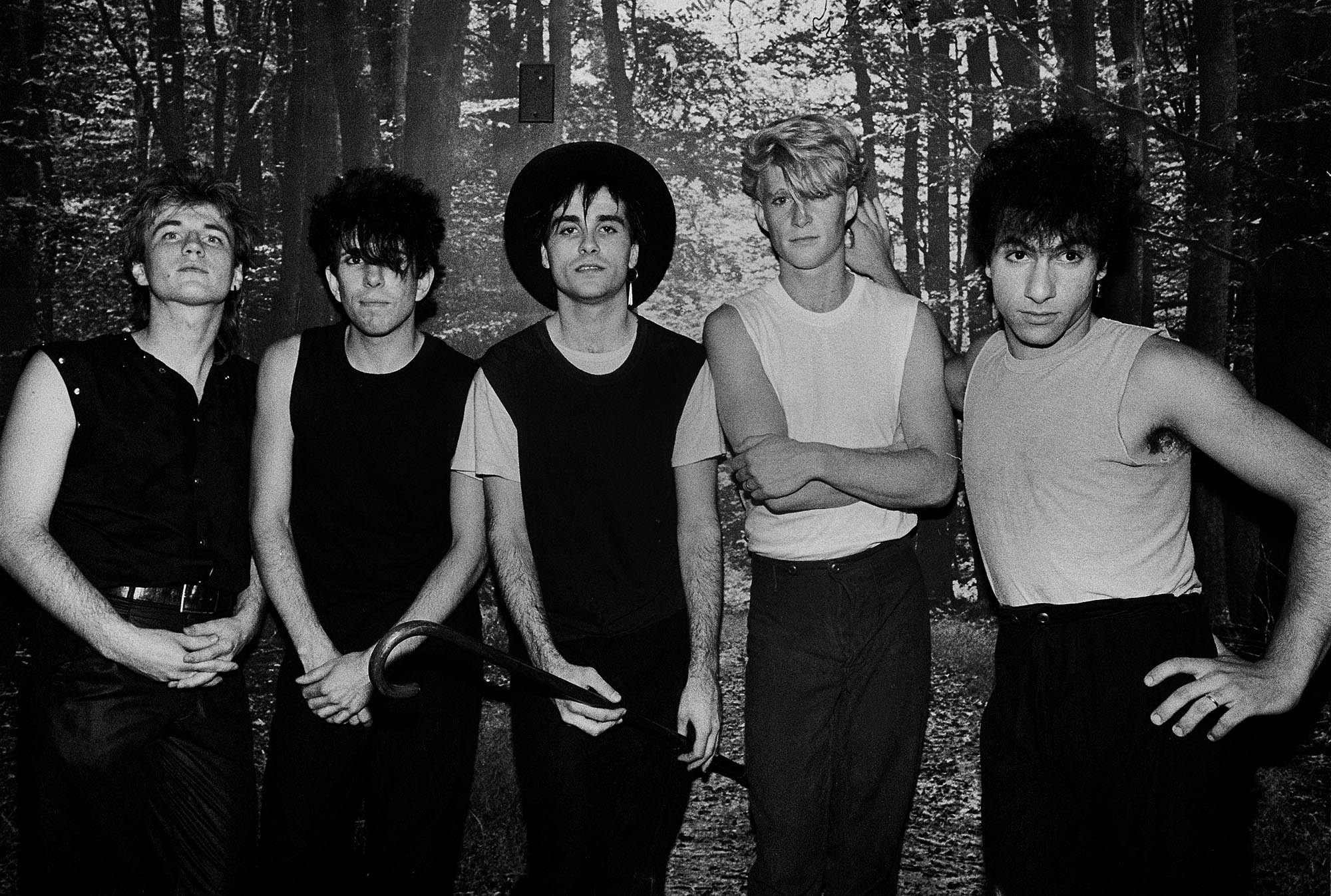 Ministry band portrait, Chicago, 1982
Ministry band portrait, Chicago, 1982
Image Credit: Paul Natkin/Getty Images
Al Jourgensen, the notorious figurehead of industrial metal sludge, has spent four decades expressing his intense dislike for his debut album, With Sympathy, where he dabbled in New Romantic synths and a questionable faux-British accent. (“You did it agaaain! And agaaain! And agaaain!”) Ironically for Jourgensen, this early material is excellent, ensuring fans won’t let him forget it. “Revenge” is a perfectly concise teen-psycho breakup complaint. Surprisingly, Ministry recently performed “Revenge” live for the first time in forty years. “Revenge” is a fascinating piece of great 80s songs history, showing the unexpected New Wave roots of a band that would later become synonymous with industrial metal.
The Rolling Stones, ‘Undercover of the Night’
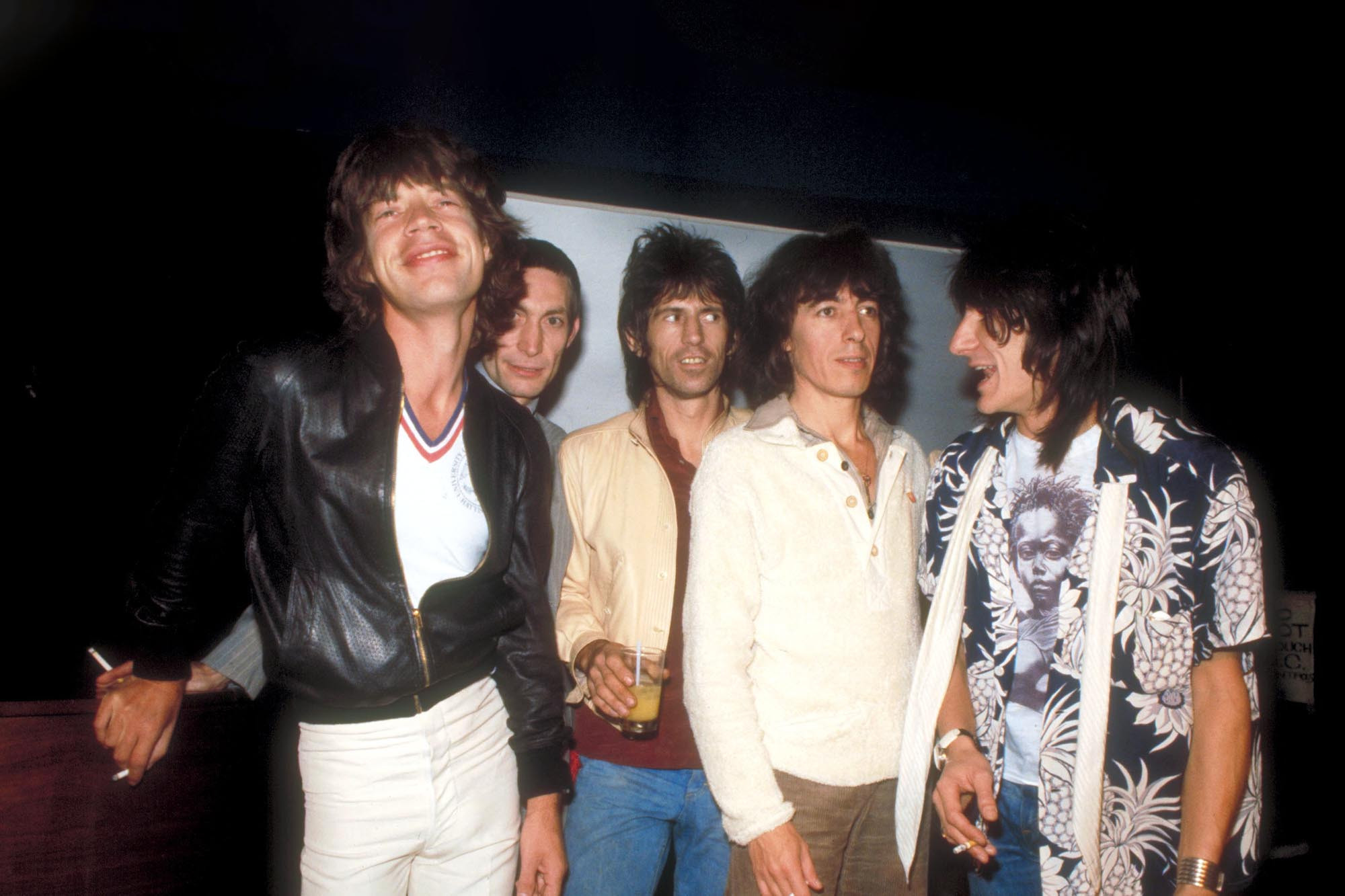 The Rolling Stones group photo, 1980s
The Rolling Stones group photo, 1980s
Image Credit: Robin Platzer/Getty Images
An often-overlooked gem from the Stones’ underrated era. Regardless of their overall direction, the Stones always had the powerhouse rhythm section of Bill Wyman and Charlie Watts, who truly excel here. “Undercover of the Night” marks the only time the Stones intentionally created an explicitly Eighties record, blending influences from the Clash, Grandmaster Flash, Lee Perry, and Duran Duran into a scathing critique of U.S. imperialism in Latin America. “Undercover of the Night” is a politically charged and sonically adventurous example of great 80s songs, proving the Stones’ ability to adapt and innovate even late in their career.
The Jim Carroll Band, ‘People Who Died’
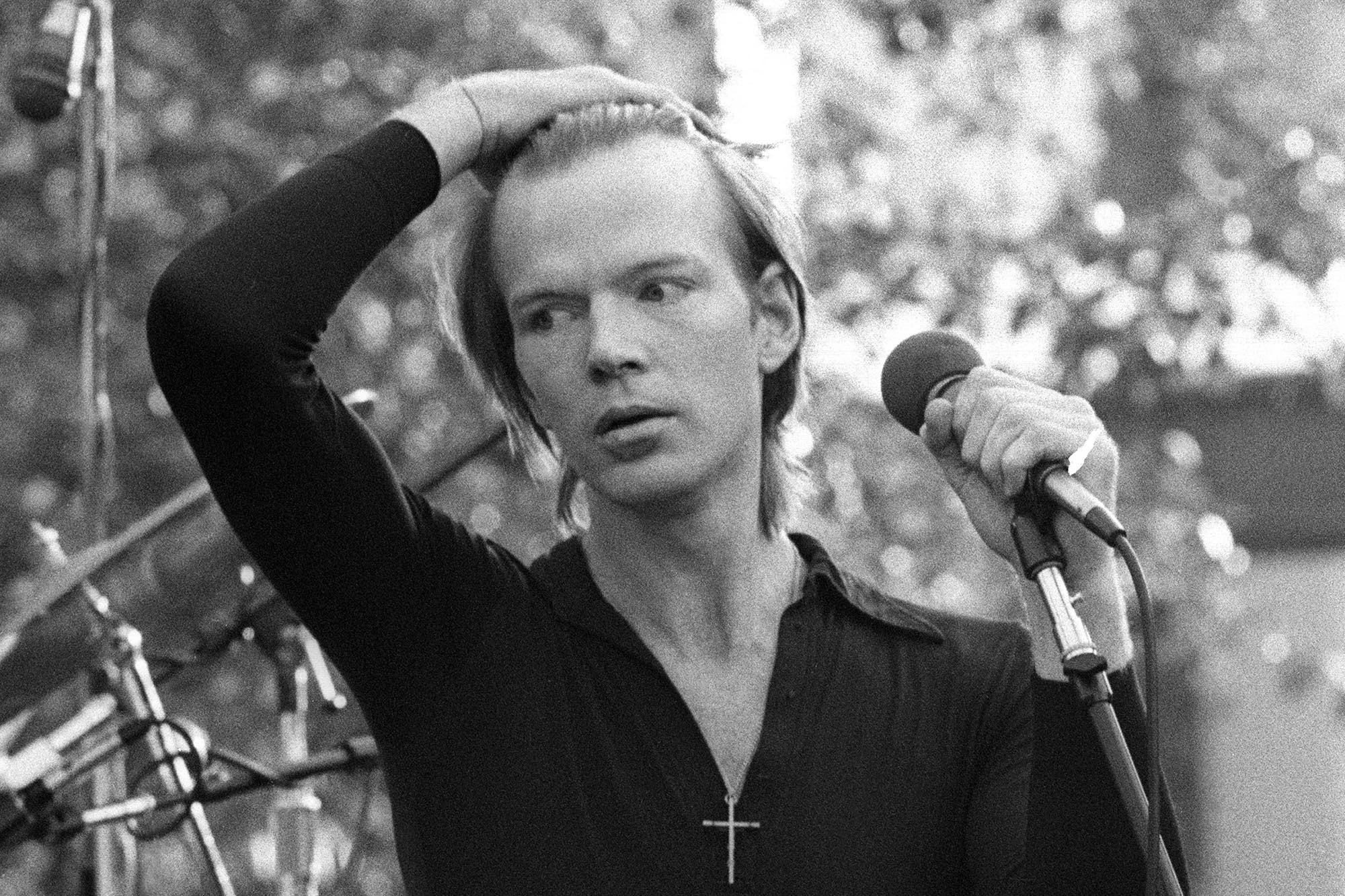 Jim Carroll performing in Berkeley, 1980
Jim Carroll performing in Berkeley, 1980
Image Credit: Clayton Call/Redferns/Getty Images
Has any rock star mourned so many friends in a single song? Jim Carroll, NYC poet and punk figure, channeled his tough street life into his book The Basketball Diaries. (You can even hear him in the background on the Velvet Underground’s Live at Max’s Kansas City, asking for Tuinols.) “People Who Died,” the hit from his debut Catholic Boy, is a high-velocity rock & roll eulogy for friends lost to drugs, alcohol, disease, war, subway accidents, and violent bikers. Shout-out to Bobby, who tragically dies three times. “People Who Died” is a raw and unflinching track among great 80s songs, reflecting the darker realities of street life and loss with punk energy.
Samantha Fox, ‘I Wanna Have Some Fun’
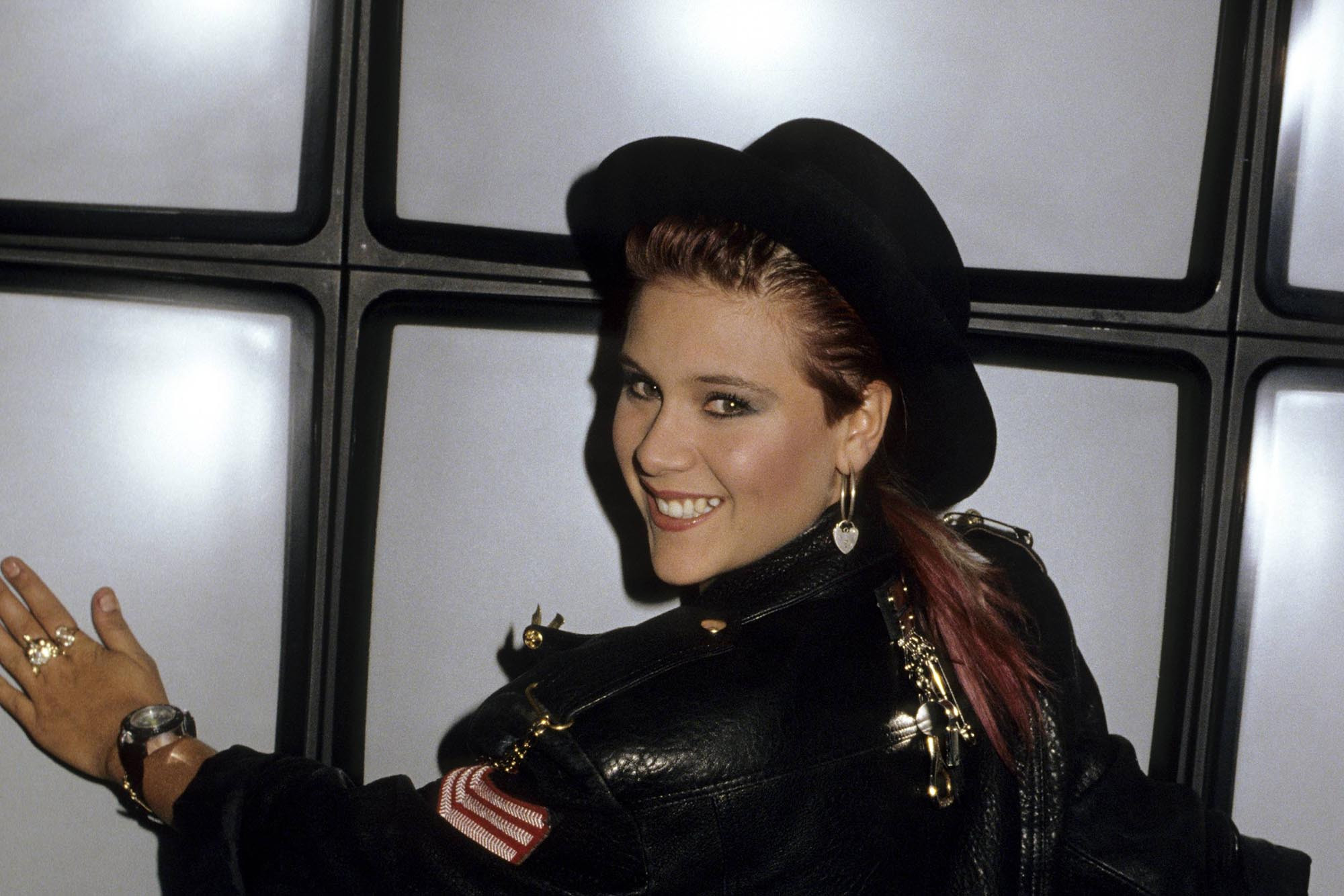 Samantha Fox portrait, UK, 1980s
Samantha Fox portrait, UK, 1980s
Image Credit: Suzie Gibbons/Redferns/Getty Images
Oh, Samantha Fox — the quintessential trash-disco starlet with her charming London accent, a future lesbian icon, returning from her hit “Naughty Girls Need Love Too” with a pro-fun anthem, complete with acid-house strings and a hired B-boy chanting “Sa-Sa-Sa-mantha Fox!” She opens with a playful drunk dial: “Helloooo — it’s me again! Don’t you know it’s hard to keep a good woman down? But then again [naughty yet love-needing giggle] maybe that could be fun!” “I Wanna Have Some Fun” is pure, unadulterated great 80s songs pop, embracing fun, camp, and the burgeoning sounds of house music.
Queen and David Bowie, ‘Under Pressure’
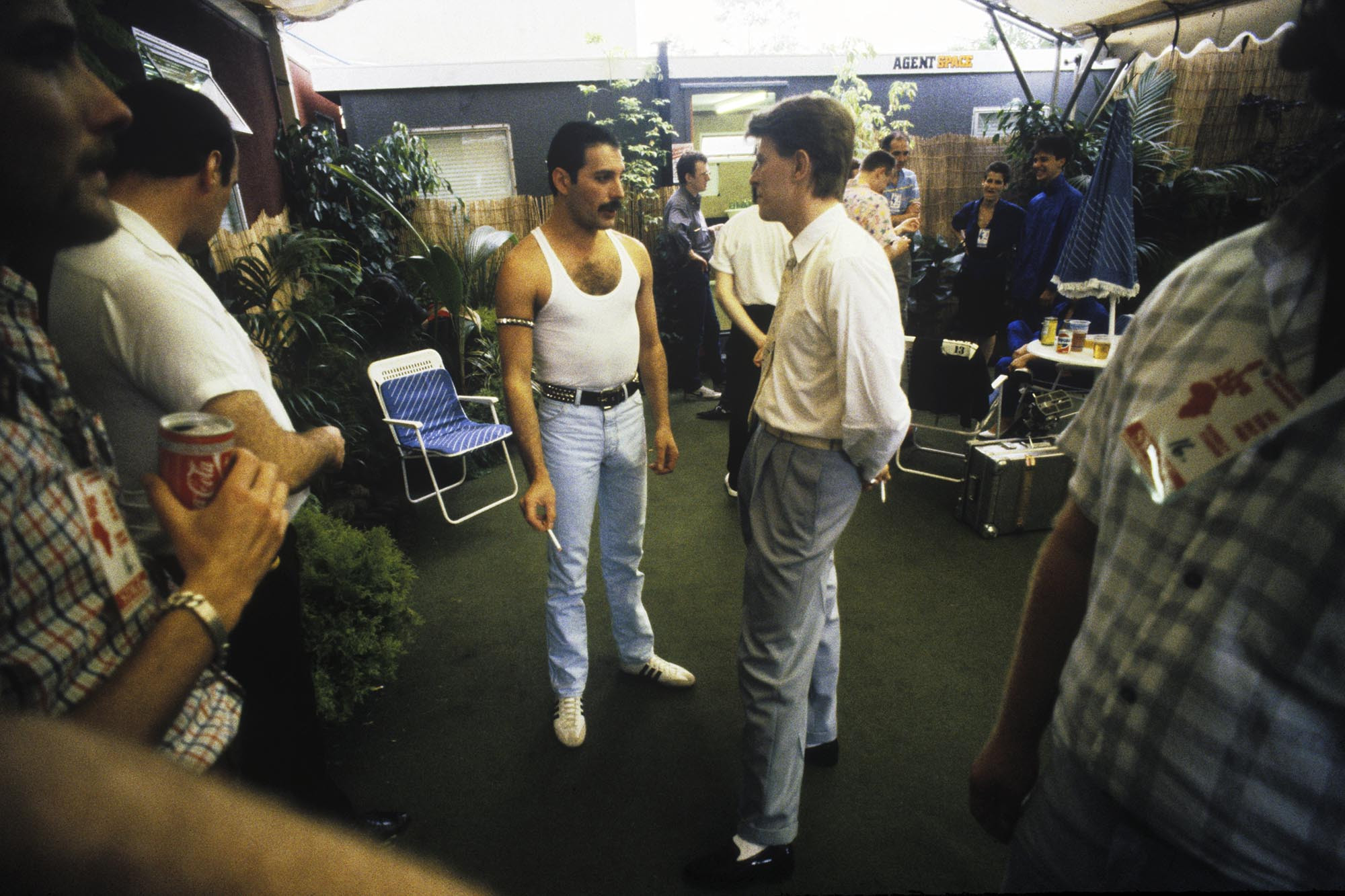 Freddie Mercury and David Bowie backstage at Live Aid, 1985
Freddie Mercury and David Bowie backstage at Live Aid, 1985
Image Credit: Denis O’Regan/Getty Images
Freddie Mercury packed more Galileo-esque vocal peaks into “Under Pressure” than perhaps any other song. Unsurprisingly, Mercury would reach such heights in a duet, showcasing his talent alongside another iconic figure. David Bowie, however, doesn’t try to outshine the prima donna; instead of competition, they collaborate, creating something unique. “Under Pressure” is truly singular for both artists, unlike anything else in their respective catalogs. Neither artist often used flutes, for instance. A heartwarming, though absurdly omitted detail from the Mercury biopic: Bowie had his hair styled at Live Aid by Freddie’s boyfriend. “Under Pressure” stands as a monumental collaboration and one of the most powerful great 80s songs, blending the iconic styles of two musical titans.
Dexys Midnight Runners, ‘Come On Eileen’
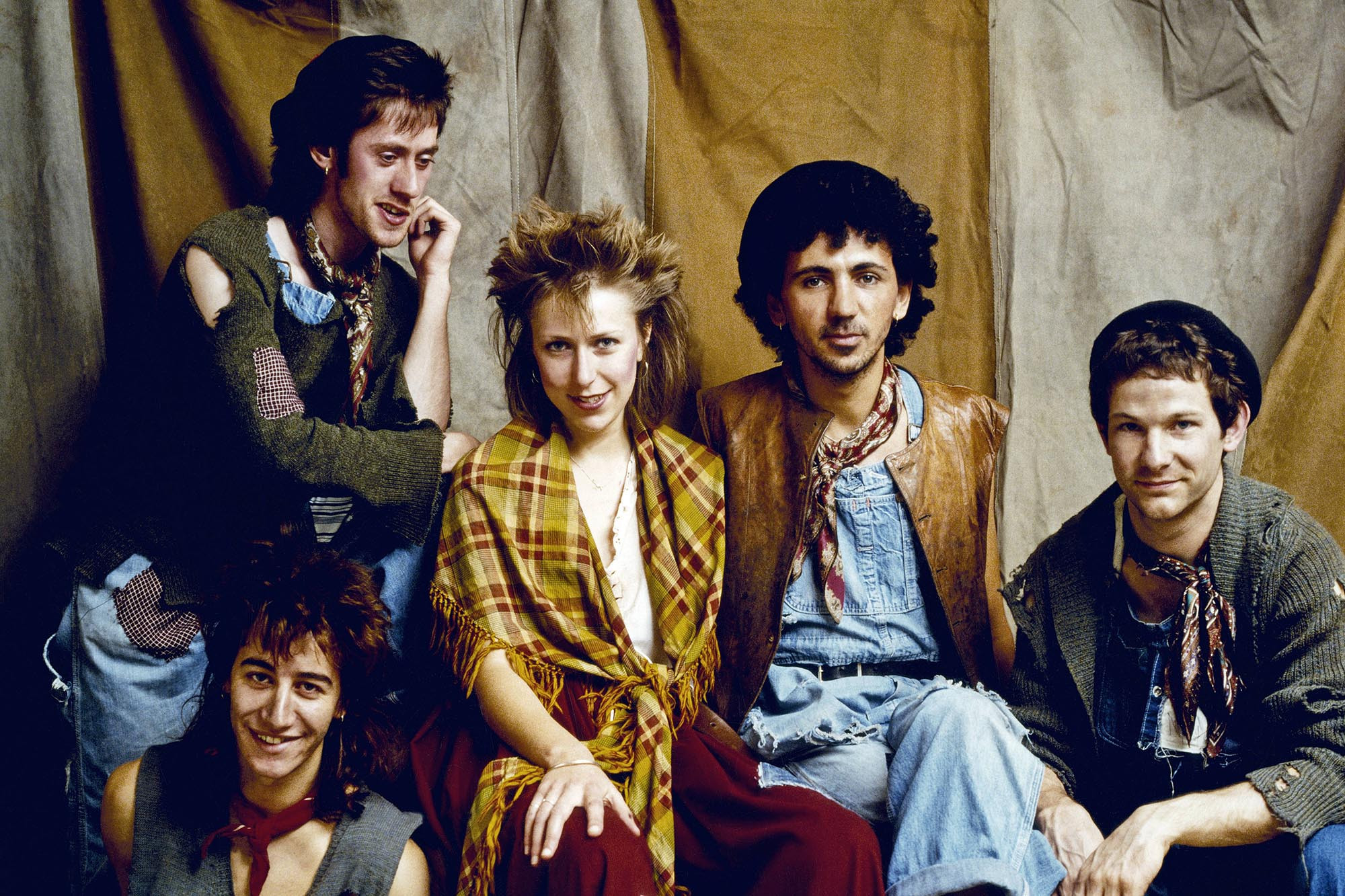 Dexys Midnight Runners group photo, Birmingham, 1982
Dexys Midnight Runners group photo, Birmingham, 1982
Image Credit: Brian Cooke/Redferns/Getty Images
Kevin Rowland and his crew from the UK delivered this Celtsploitation banger, with fiery Irish fiddles and “too-rye-aye” chants. They ascended straight to one-hit-wonder heaven in the U.S. Memorable line: “At this moment, you mean everything.” “Come On Eileen” is a classic one-hit-wonder and a fun, energetic entry among great 80s songs, blending pop with Celtic folk influences for a unique sound.
Lionel Richie, ‘All Night Long (All Night)’
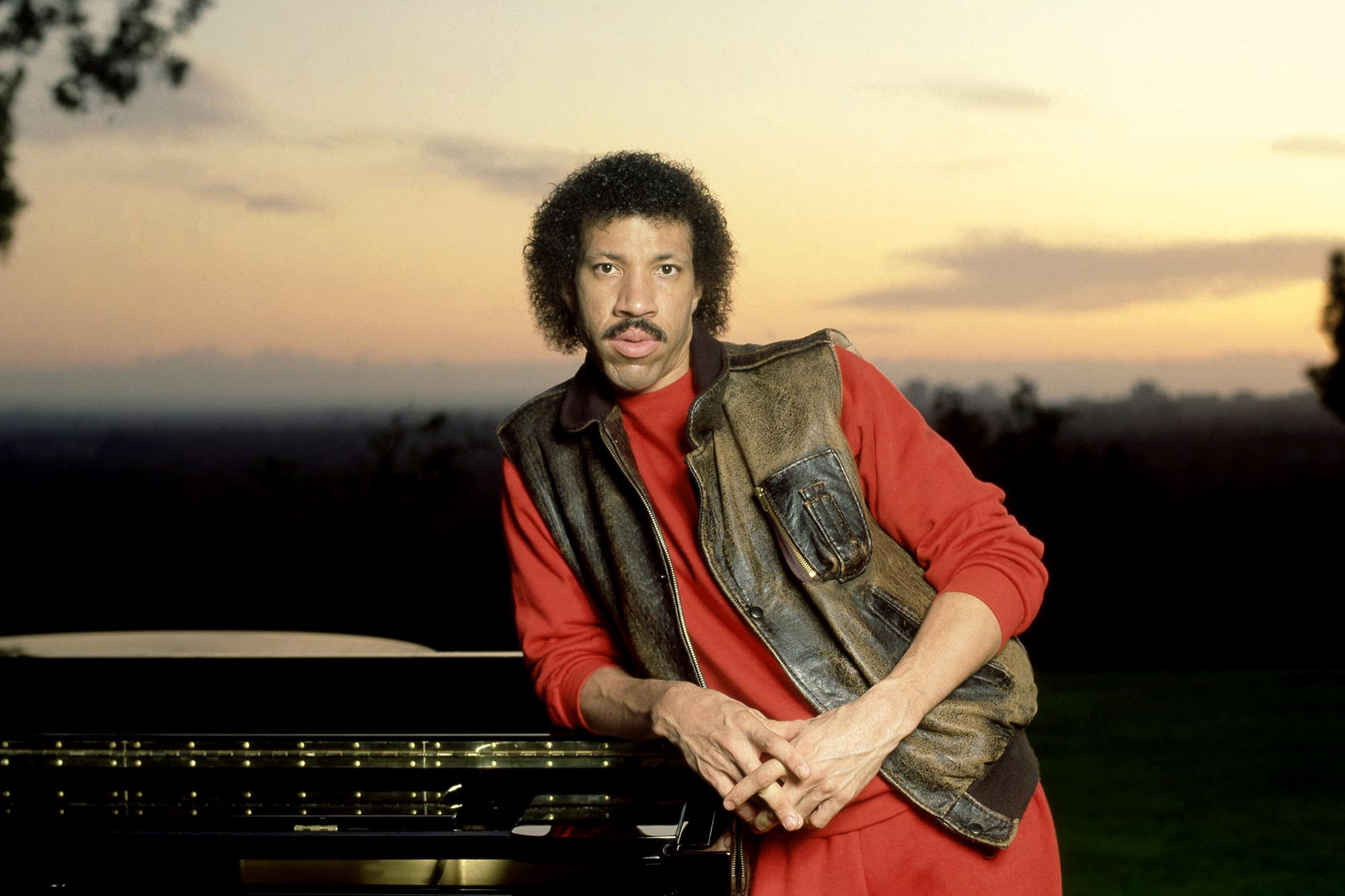 Lionel Richie portrait with piano, Los Angeles, 1983
Lionel Richie portrait with piano, Los Angeles, 1983
Image Credit: Bonnie Schiffman/Getty Images
“That song has created more babies after the song,” Lionel Richie joked. “We have populated the world.” “All Night Long (All Night)” perfectly encapsulates Lionel in his pastel-suited era, dancing on the ceiling in a calypso-inspired hit filled with a Trinidad-via-Tennessee rhythm. He adopts a Jamaican accent so exaggerated, it’s as if Phil Collins sent him a fruit basket in acknowledgment. (“Life is goood, wiiild, and sweeeet!”) As for the African chant, don’t bother translating, it’s pure gibberish — Richie simply invented it, but it works. Bonus points for one of the most unnecessary subtitles in the history of parentheses. “All Night Long (All Night)” is pure feel-good pop and one of the most globally recognized great 80s songs, embodying the decade’s upbeat and sometimes over-the-top spirit.
The Stone Roses, ‘I Wanna Be Adored’
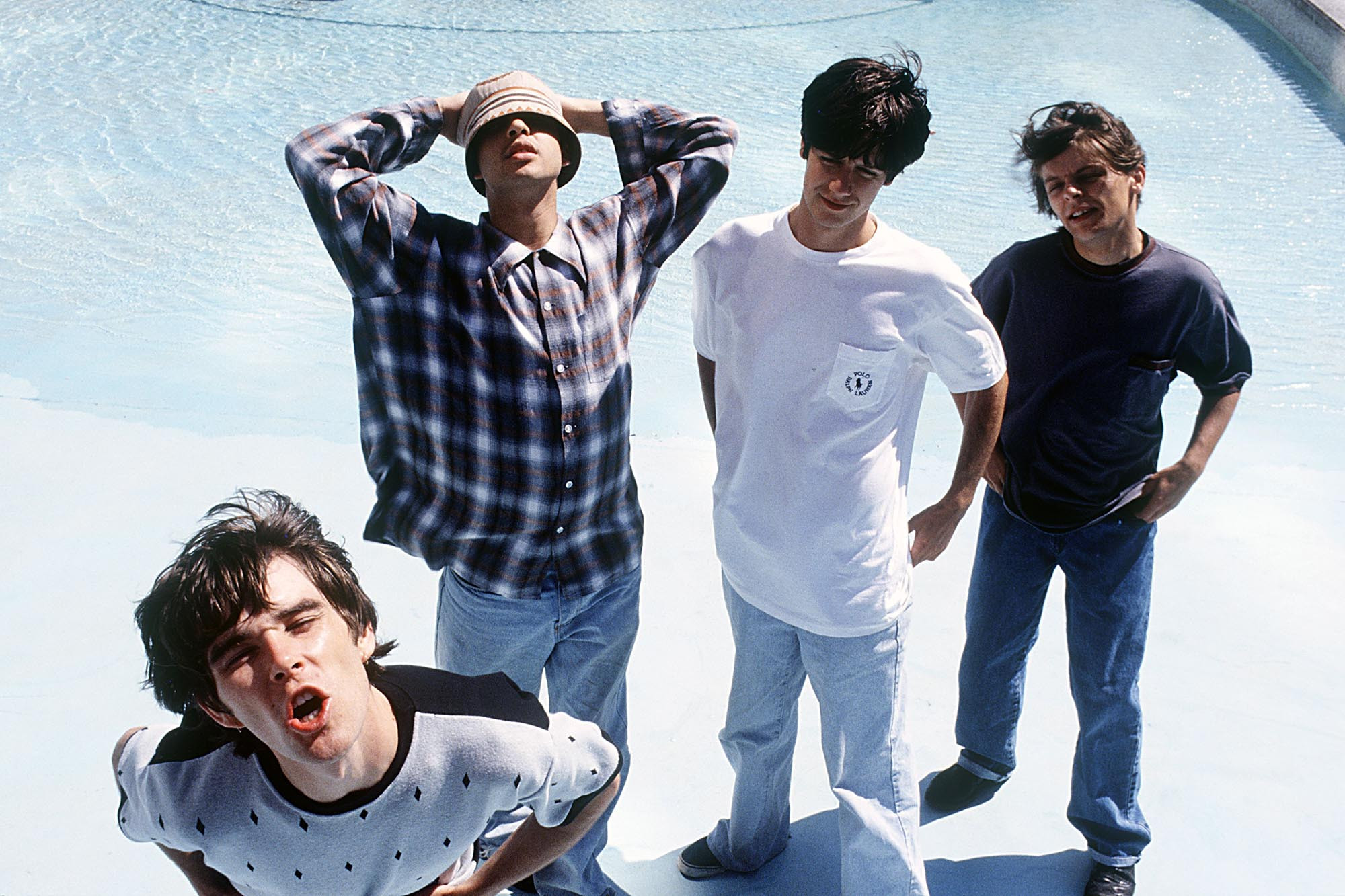 The Stone Roses band photo, 1989
The Stone Roses band photo, 1989
Image Credit: Brian Rasic/Getty Images
Manchester guitar-slingers embark on a glorious ego trip. Drugs are overrated, adoration is underrated. “I Wanna Be Adored” is a defining track of the Madchester scene and a key example of great 80s songs that blended indie rock with danceable rhythms and introspective lyrics.
New Kids on the Block, ‘Hangin’ Tough’
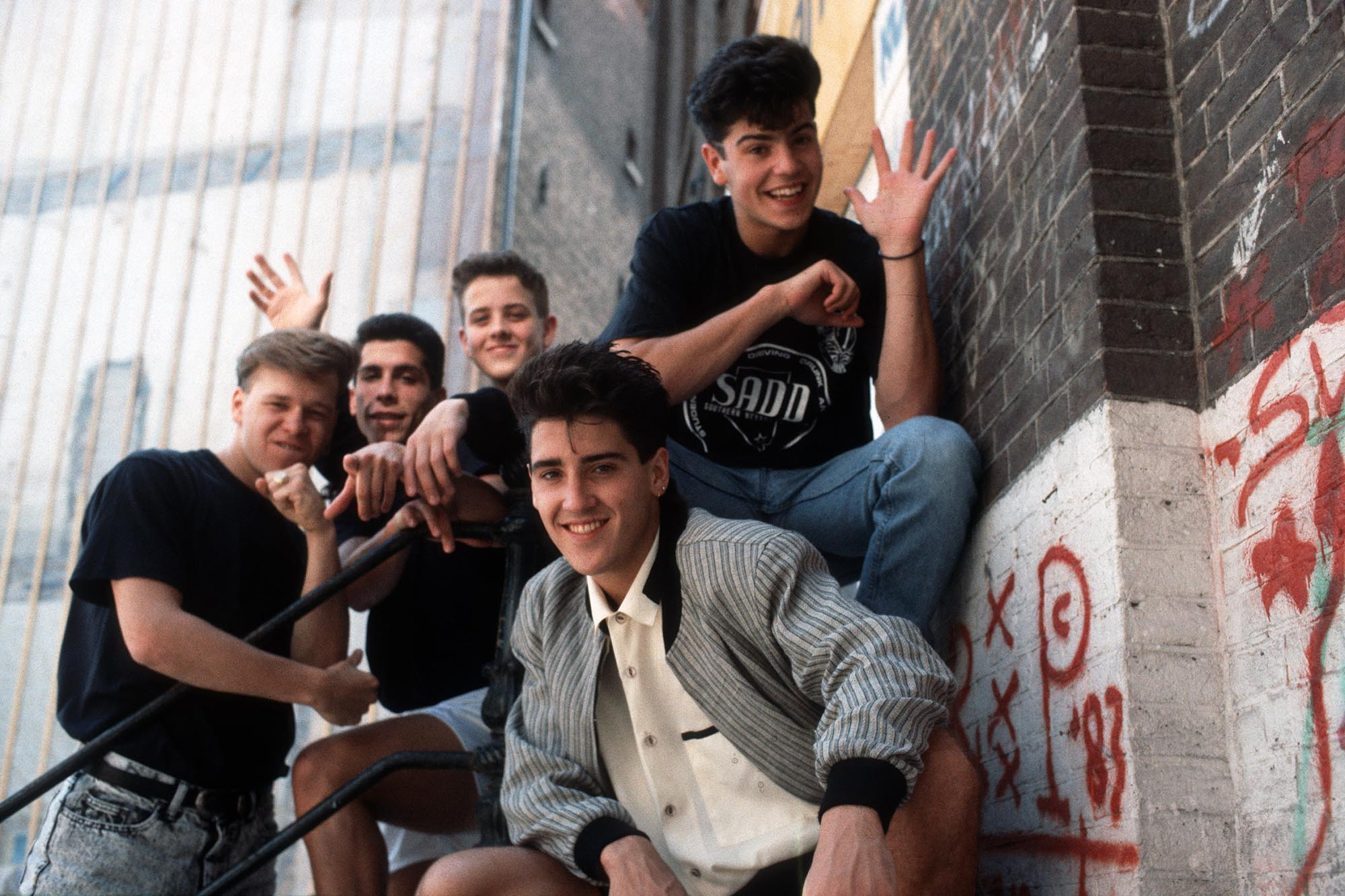 New Kids on the Block group portrait, 1980s
New Kids on the Block group portrait, 1980s
Image Credit: Michel Linssen/Redferns/Getty Images
Listen up everybody, if you wanna take a chance. Just get on the floor and do the New Kids dance. Here’s to Joey, Jordan, Donnie, Jon, and Danny, the quintessential boy band, as they entrance you with their funky song. Chuck D famously declared himself a New Kids fan — “they sincerely love hip-hop” — highlighting the wonderfully strange nature of the late-Eighties. “Hangin’ Tough” is a landmark boy band anthem and one of the great 80s songs that bridged the gap between pop and hip-hop influences, paving the way for future boy band phenomena.
Missing Persons, ‘Words’
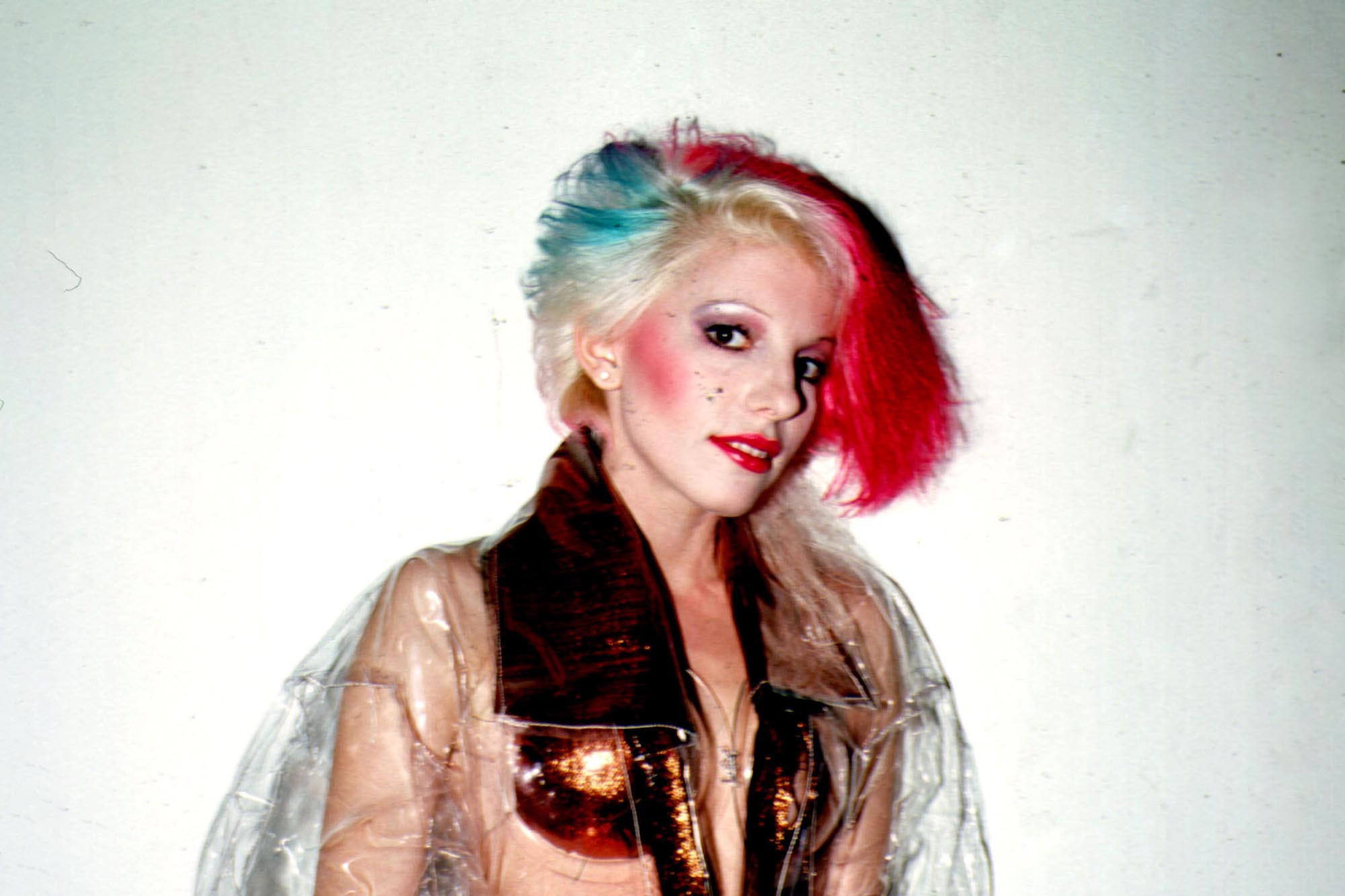 Dale Bozzio of Missing Persons performing on TV
Dale Bozzio of Missing Persons performing on TV
Image Credit: Ron Wolfson/WireImage
Teen angst, personified. When Dale Bozzio sang “No one notices/I think I’ll dye my hair blue,” we all felt it. “Words” by Missing Persons perfectly captures the feeling of teenage alienation and is a memorable track among great 80s songs for its New Wave sound and relatable lyrics.
Ratt, ‘Round and Round’
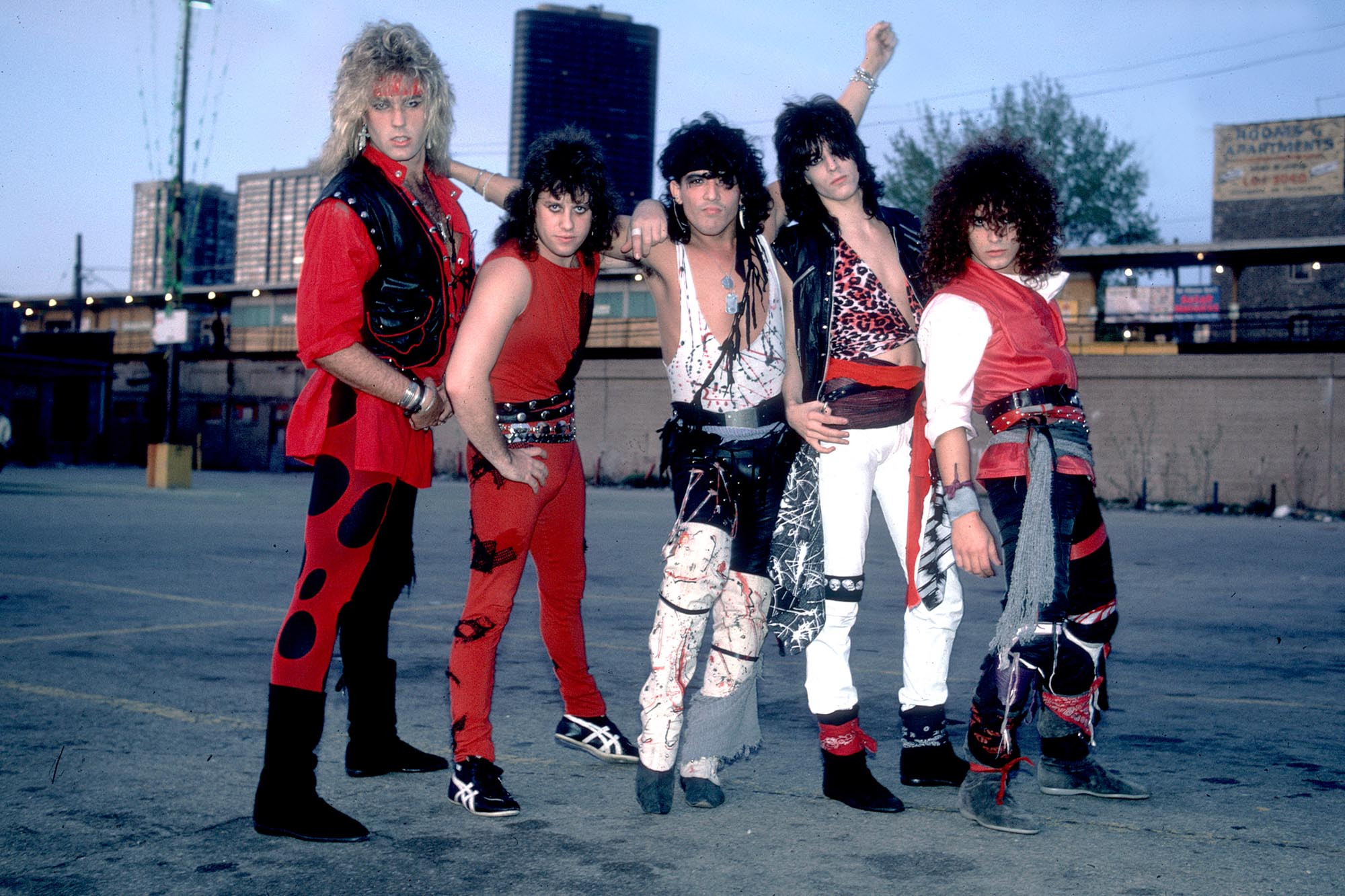 Ratt band portrait, Chicago, 1984
Ratt band portrait, Chicago, 1984
Image Credit: Paul Natkin/Getty Images
Ratt emerged from the Sunset Strip glam metal scene and immediately dominated with their summer-of-’84 smash “Round and Round.” Stephen Pearcy’s vocals had a street-tough edge, paired with seductive neon-lit lyrics (“looking at you, looking at me” was considered deep romance in ‘84 metal). The chorus’s echoing vocals added a mysterious allure. The music video was fantastic, starring comedy legend Milton Berle in drag, and a dinner party guest who, upon hearing Ratt rocking in the attic, naturally sheds her clothes (who hasn’t?). Also, perhaps the best Shakespearean reference in any Ratt song: “Like Romeo to Juliet, time and time, I’m gonna make you mine.” Shakespearean accuracy aside, it’s a love song — baby, just say yes. “Round and Round” is a quintessential glam metal anthem and one of the great 80s songs that defined the Sunset Strip sound and MTV era.
The English Beat, ‘Twist and Crawl’
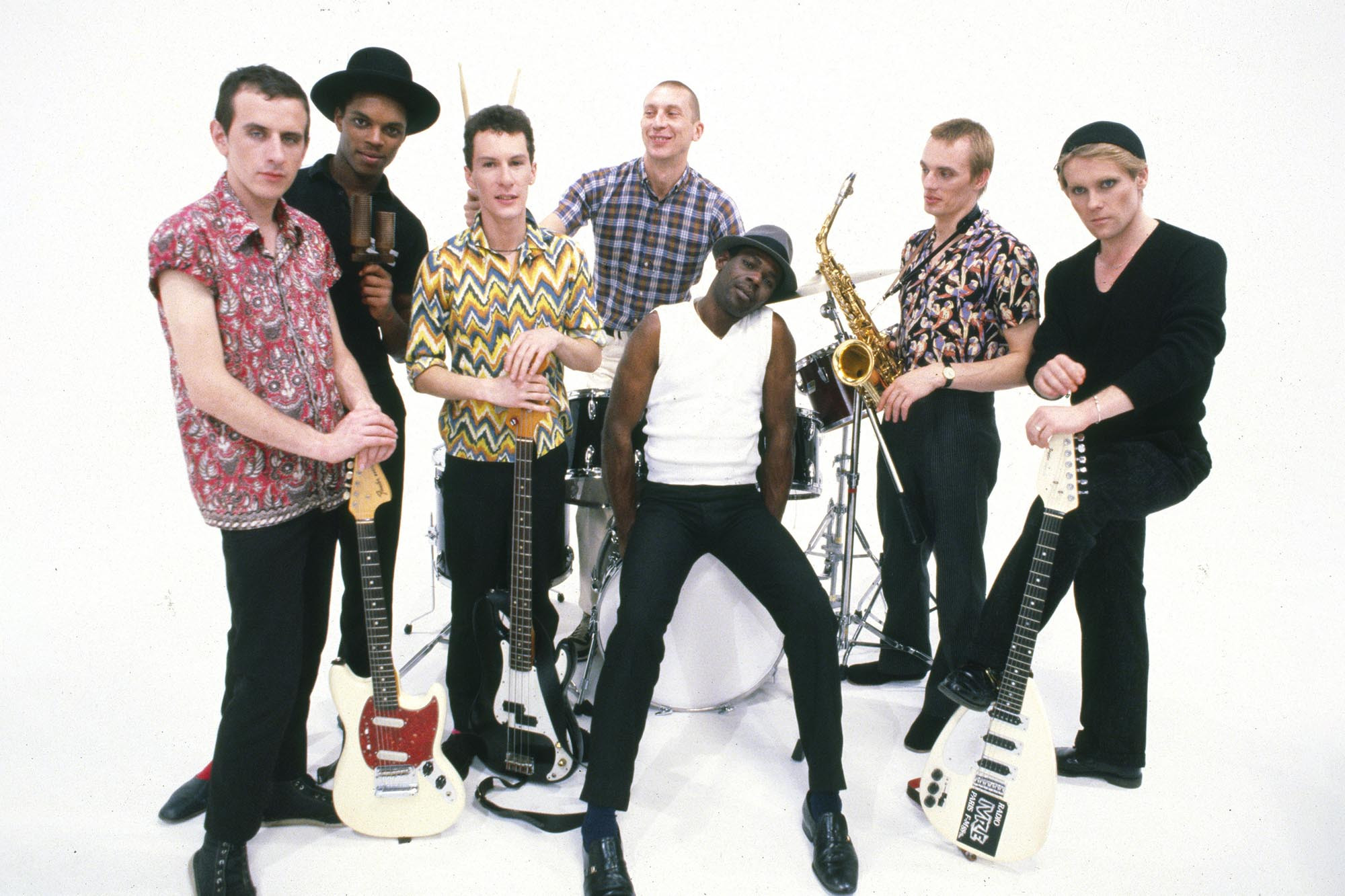 The English Beat band photo, 1982
The English Beat band photo, 1982
Image Credit: Chris Walter/WireImage
One of the decade’s most irresistibly slinky bass lines. The Beat, a multiracial ska band from Birmingham, England, defied racism with their jerky, infectious rhythms. Bonus points for their Go Feet record label graphics, which invited girls to the ska party in a pointedly anti-misogynistic statement. (Gwen Stefani has often said she got into ska wanting to be the Go Feet girl.) “We thought it would be nice to be a dance band,” Dave Wakeling told Rolling Stone in 1980. “We just want to survive World War III by trying to find a place where the bombs might miss.” “Twist and Crawl” is a prime example of great 80s songs that combined ska rhythms with socially conscious lyrics, creating a vibrant and danceable sound.
L’Trimm, ‘Cars With the Boom’
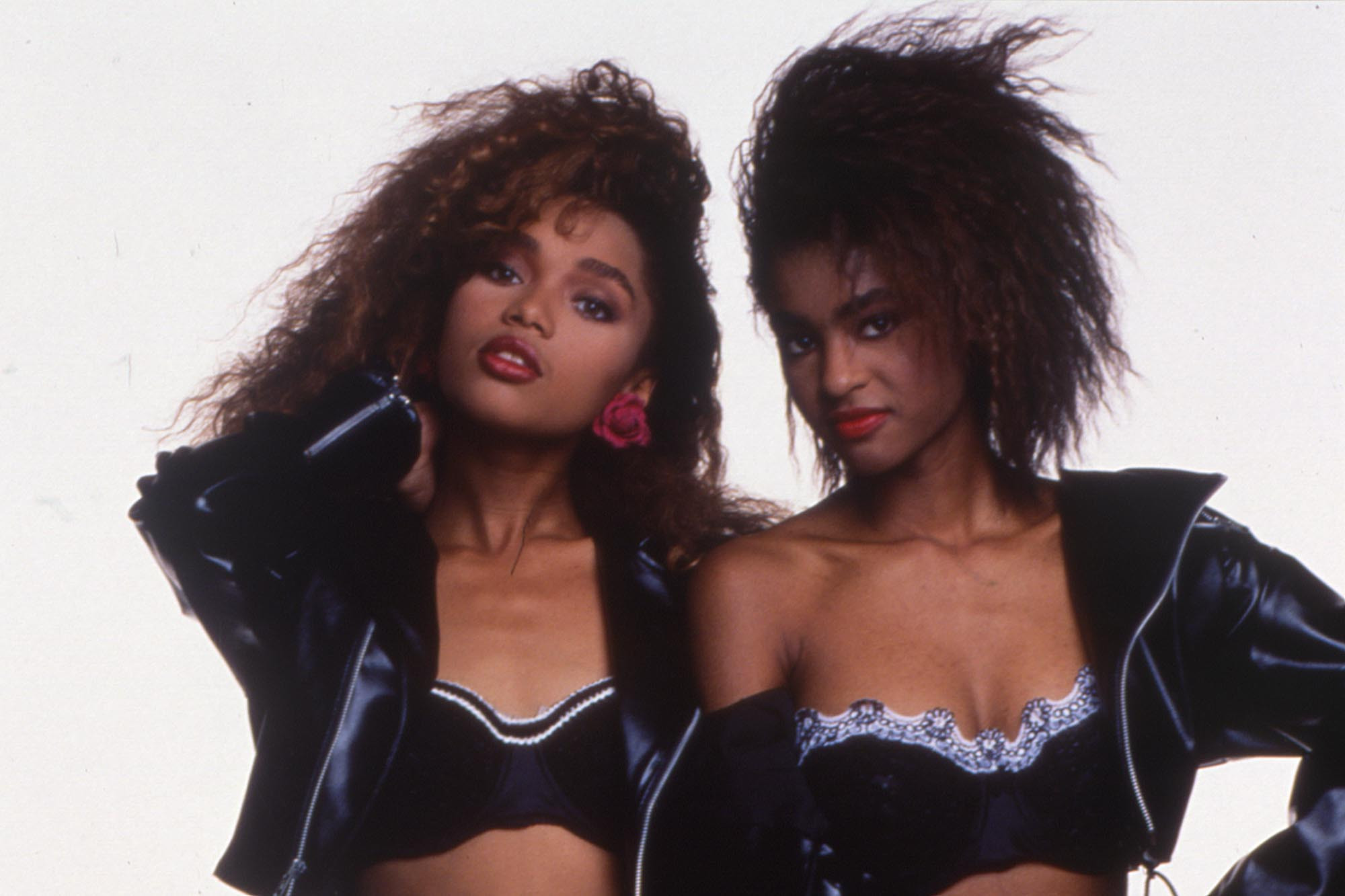 L'Trimm group photo, 1991
L'Trimm group photo, 1991
Image Credit: © Roy Volkmann/Courtesy Warner Music Group
Psych — you thought you were driving a car, but it’s actually a guerilla boombox for teenage duo Tigra and Bunny to unleash Miami bass mayhem on the highways. “Everybody beep your horns if you hear us! Beep louder!” “Cars With the Boom” is a foundational track of Miami bass and one of the great 80s songs that pushed bass-heavy sounds into the mainstream, influencing hip-hop and dance music for years to come.
Modern English, ‘I Melt With You’
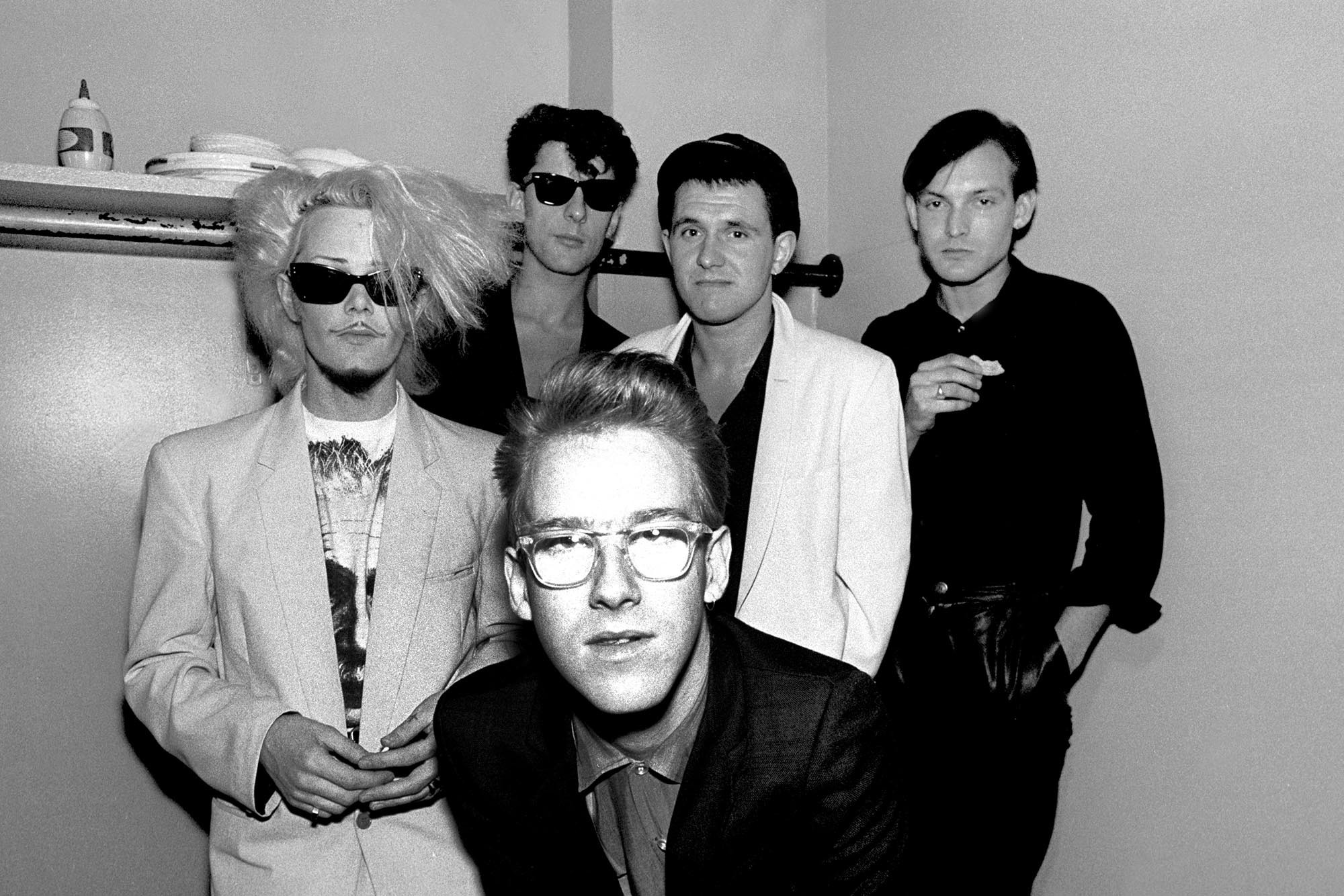 Modern English band portrait, Chicago, 1983
Modern English band portrait, Chicago, 1983
Image Credit: Paul Natkin/Getty Images
The greatest humming solo ever recorded. As Modern English singer Robbie Grey explained, “It was about a couple making love as the bomb dropped.” But when the music abruptly cuts out for that hmm-hmm-hmm climax, the future is wide open. When Robbie sings “Making love to you was never second best,” it was likely intended as a profound compliment. “I Melt With You” is a New Wave classic and one of the great 80s songs that combined romantic lyrics with a post-apocalyptic undertone, becoming an enduring anthem of the era.
Billy Idol, ‘White Wedding’
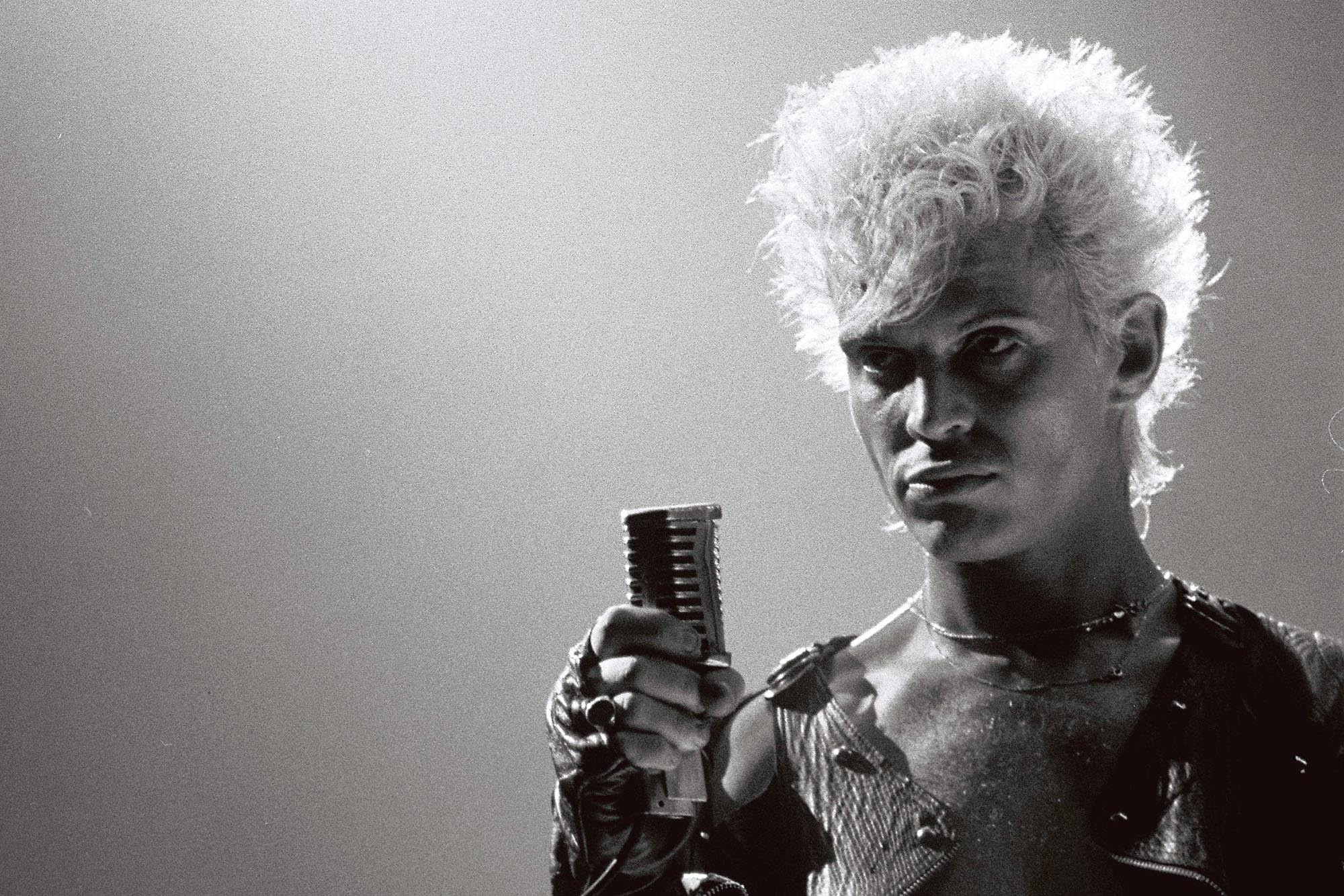 Billy Idol portrait, London, 1982
Billy Idol portrait, London, 1982
Image Credit: Clare Muller/Redfern/Getty Images
Billy Idol unleashes his raw energy in “White Wedding,” rebel-yelling about sex, religion, and shotguns. This summer-of-’82 hit cemented Idol as one of the Eighties’ premier rock & roll fame seekers, in a decade brimming with stiff competition. “White Wedding” is a signature Billy Idol track and a powerful example of great 80s songs that merged punk energy with pop hooks, creating a rebellious yet commercially successful sound.
Peech Boys, ‘Don’t Make Me Wait’
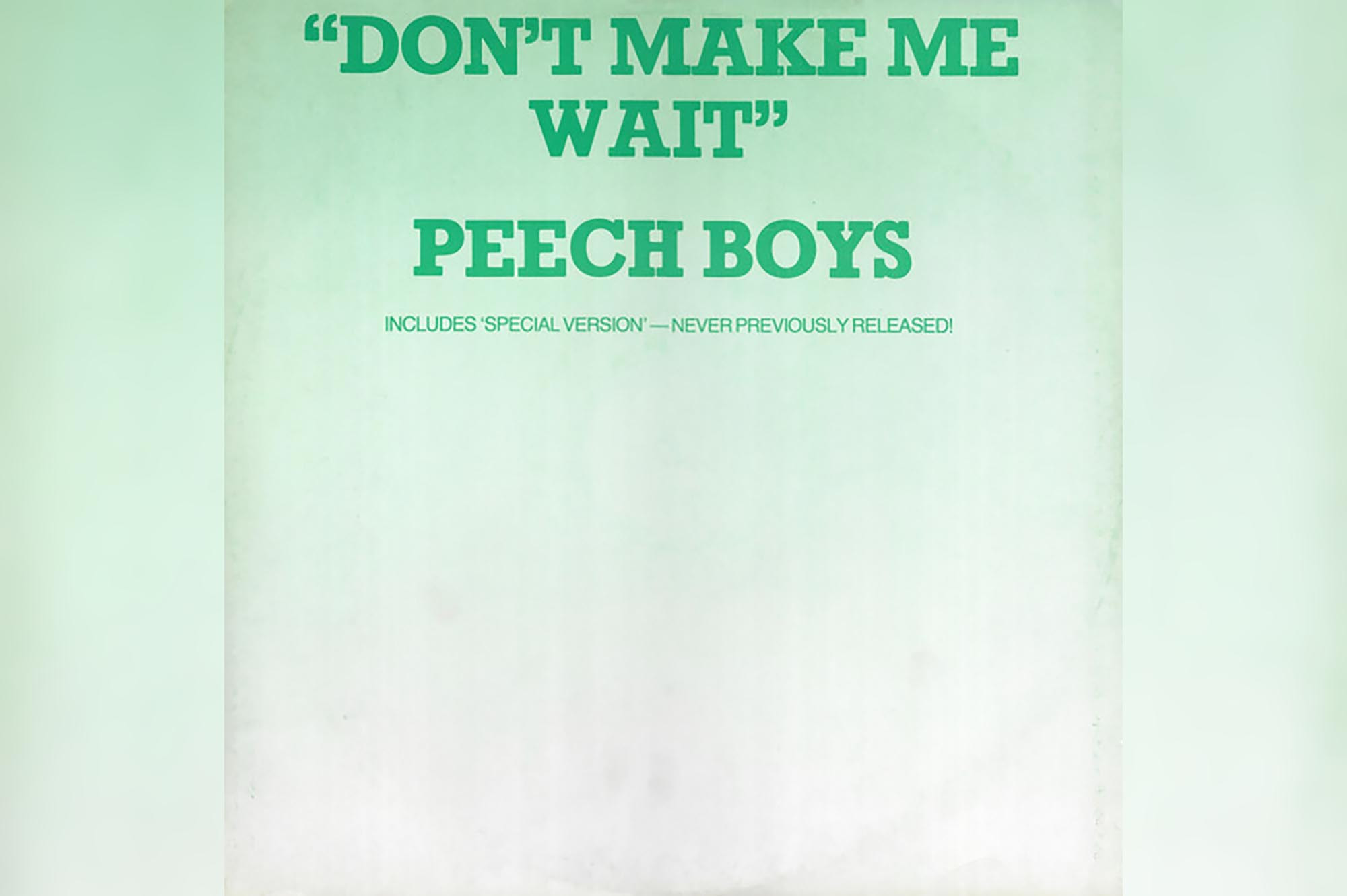 Peech Boys album art for Don't Make Me Wait
Peech Boys album art for Don't Make Me Wait
Image Credit: Unattributed
Larry Levan, the legendary DJ guru of the Paradise Garage, has profoundly influenced dance music ever since. (Famously, NYC had record stores that opened early Sunday morning, right after Garage closing time, so rival DJs could grab whatever Levan had just played.) The Garage lacked a liquor license, so their signature drink was fruit punch spiked with acid — hence the Peech Boys’ name. Levan poured his entire musical vision into “Don’t Make Me Wait,” evoking a bustling city of partygoers ready to emerge at sundown and take over. “Don’t Make Me Wait” is a foundational track of house music and one of the great 80s songs that emerged from the underground club scene, shaping the future of dance music.
The Dream Syndicate, ‘Open Hour’
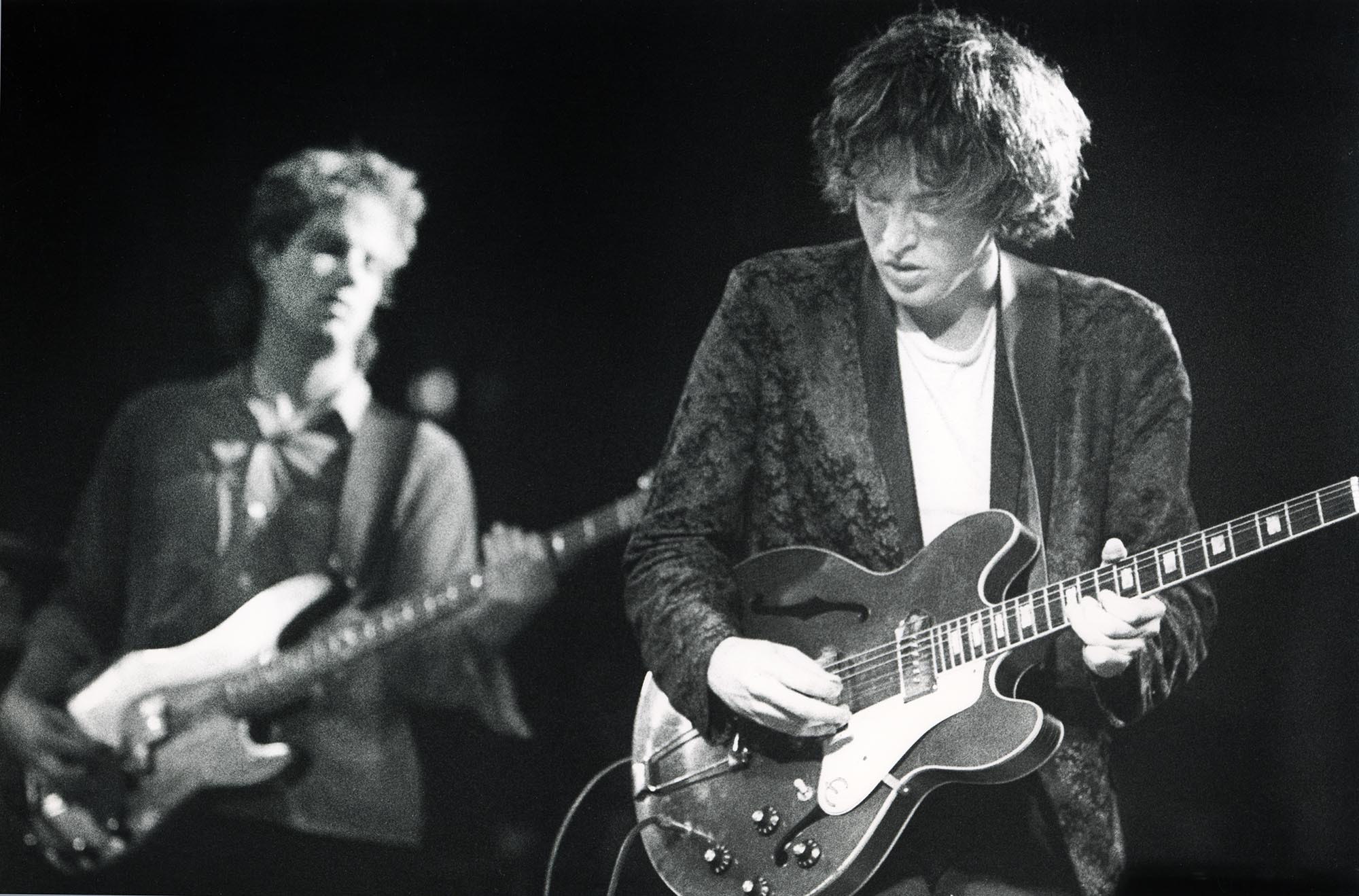 The Dream Syndicate performing live in the 1980s
The Dream Syndicate performing live in the 1980s
Image Credit: Gie Knaeps/Getty Images
This L.A. post-punk garage band specialized in guitar pyrotechnics, unapologetically embracing a psychedelic vibe. The Dream Syndicate emerged from L.A.’s Paisley Underground scene with The Days of Wine and Roses, a landmark six-string album of the Eighties, inspiring bands from Dinosaur Jr. to Japandroids. “Open Hour” was their “Sister Ray” or “Dark Star” or “Marquee Moon,” a jam they constantly expanded live, later recorded as “John Coltrane Stereo Blues,” but best heard in this KPFK radio jam reissued on the compilation History Kinda Pales When It and You Are Aligned. Karl Precoda and Steve Wynn ride feedback waves over a Creedence-esque groove — eight minutes of guitars doing exactly what guitars were invented to do. “Open Hour” is a sprawling, improvisational track and a standout example of great 80s songs that pushed guitar-based rock into psychedelic and experimental territories.
Linton Kwesi Johnson, ‘Inglan Is a Bitch’
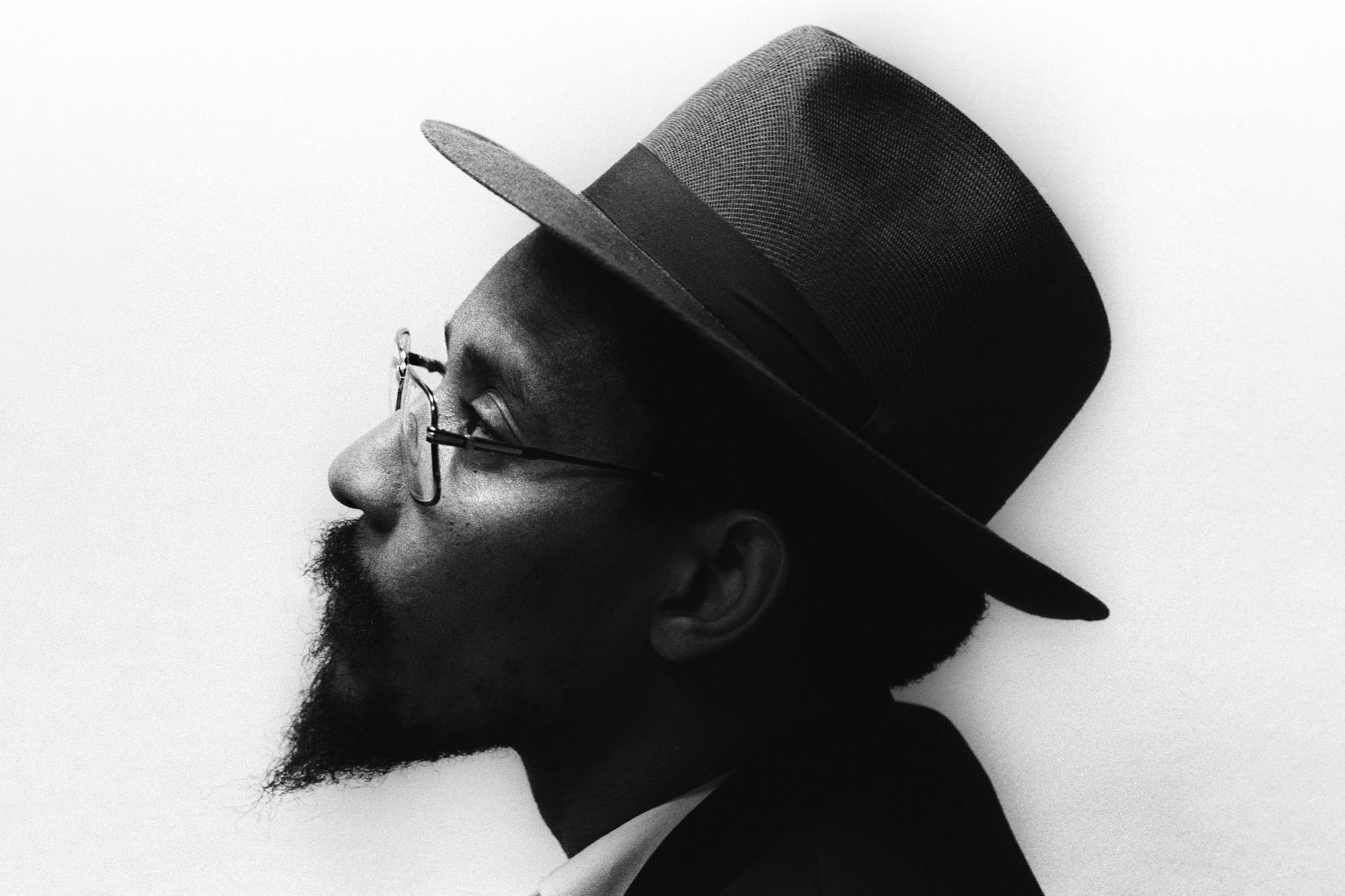 Linton Kwesi Johnson portrait, Netherlands, 1980s
Linton Kwesi Johnson portrait, Netherlands, 1980s
Image Credit: Lex van Rossen/MAI/Redferns/Getty Images
Jamaican-born English dub poet Linton Kwesi Johnson released a series of politically charged reggae albums, reciting his protest poetry in patois. In “Inglan Is a Bitch,” LKJ reports on the oppression faced by Afro-Caribbean immigrants in London, from his powerful 1980 LP Bass Culture. “Inglan Is a Bitch” is a politically charged and socially relevant track, demonstrating the power of great 80s songs to address issues of racism and inequality through reggae and dub poetry.
Dominatrix, ‘The Dominatrix Sleeps Tonight’
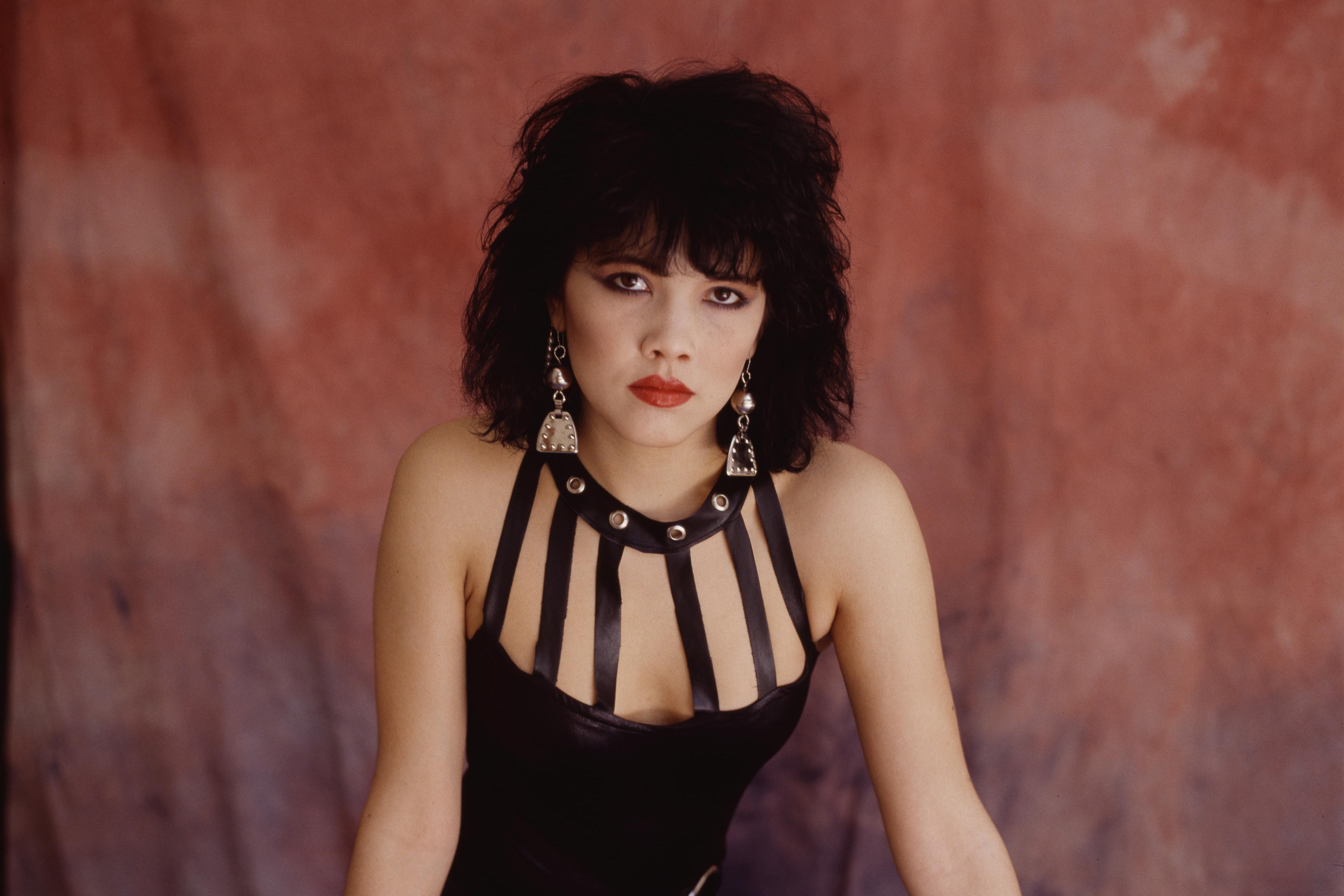 Dominique Davalos of Dominatrix, New York, 1984
Dominique Davalos of Dominatrix, New York, 1984
Image Credit: Michael Putland/Getty Images
“The Dominatrix Sleeps Tonight” was a mysterious, kinky NYC club hit: a soundscape of whip cracks, pounding drum machines, and bubbling synth flourishes. The narrator is a robotic sex priestess with a deliciously bored vocal delivery. “That night, a wild party/Women beat their men/Animals watch beyond the fire/The dominatrix … sleeps … tonight!” “The Dominatrix Sleeps Tonight” is a dark, electronic track and a unique inclusion among great 80s songs, showcasing the decade’s exploration of electronic music, fetish culture, and underground club scenes.
